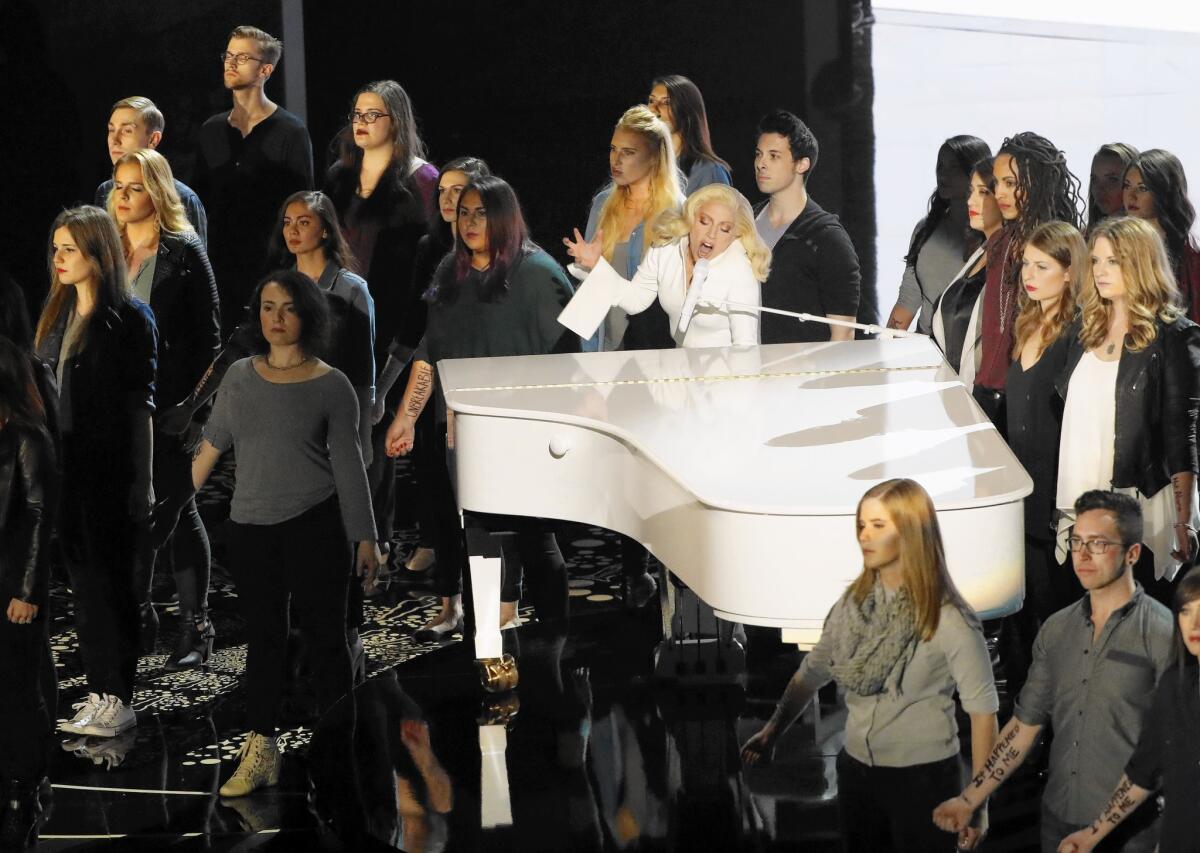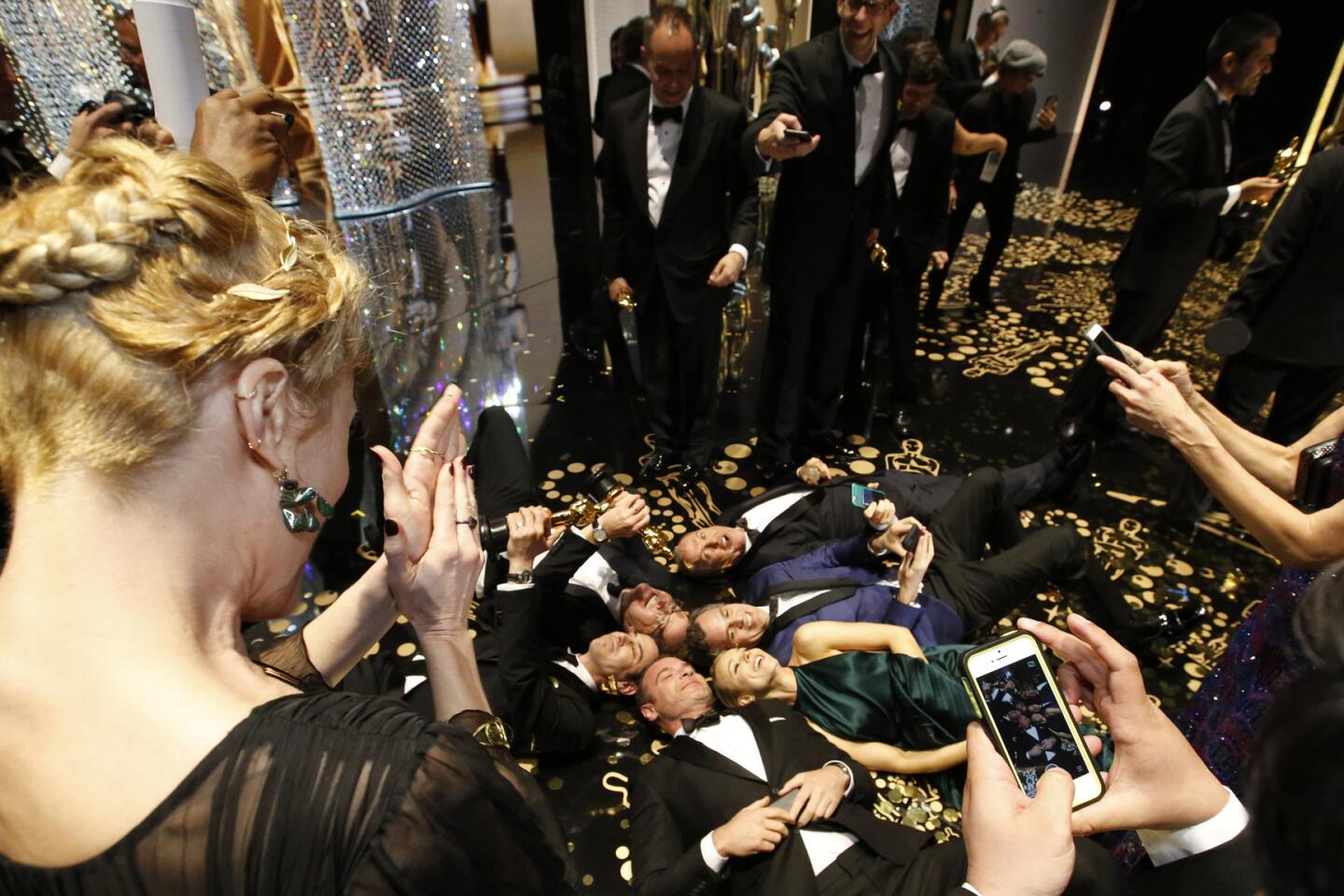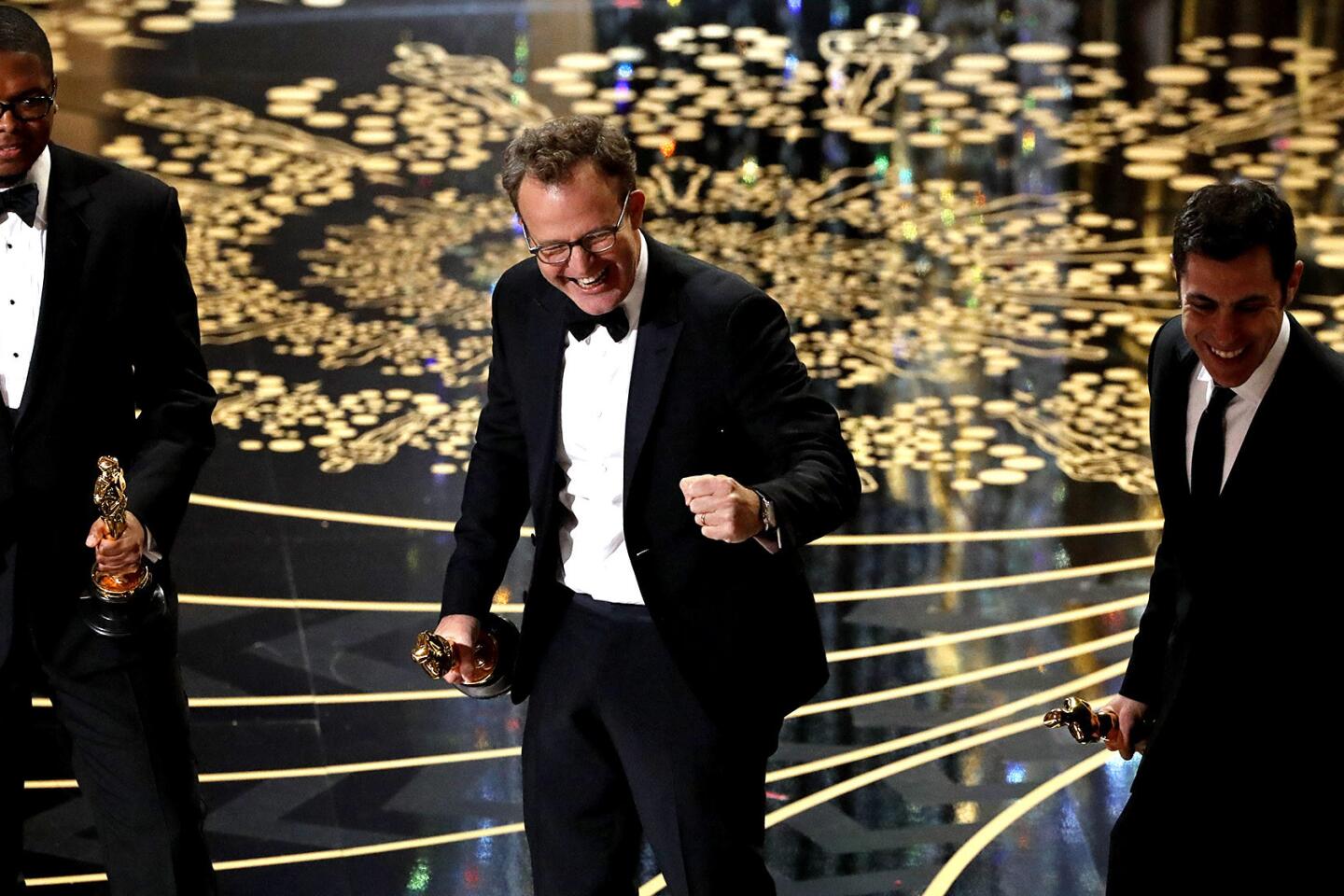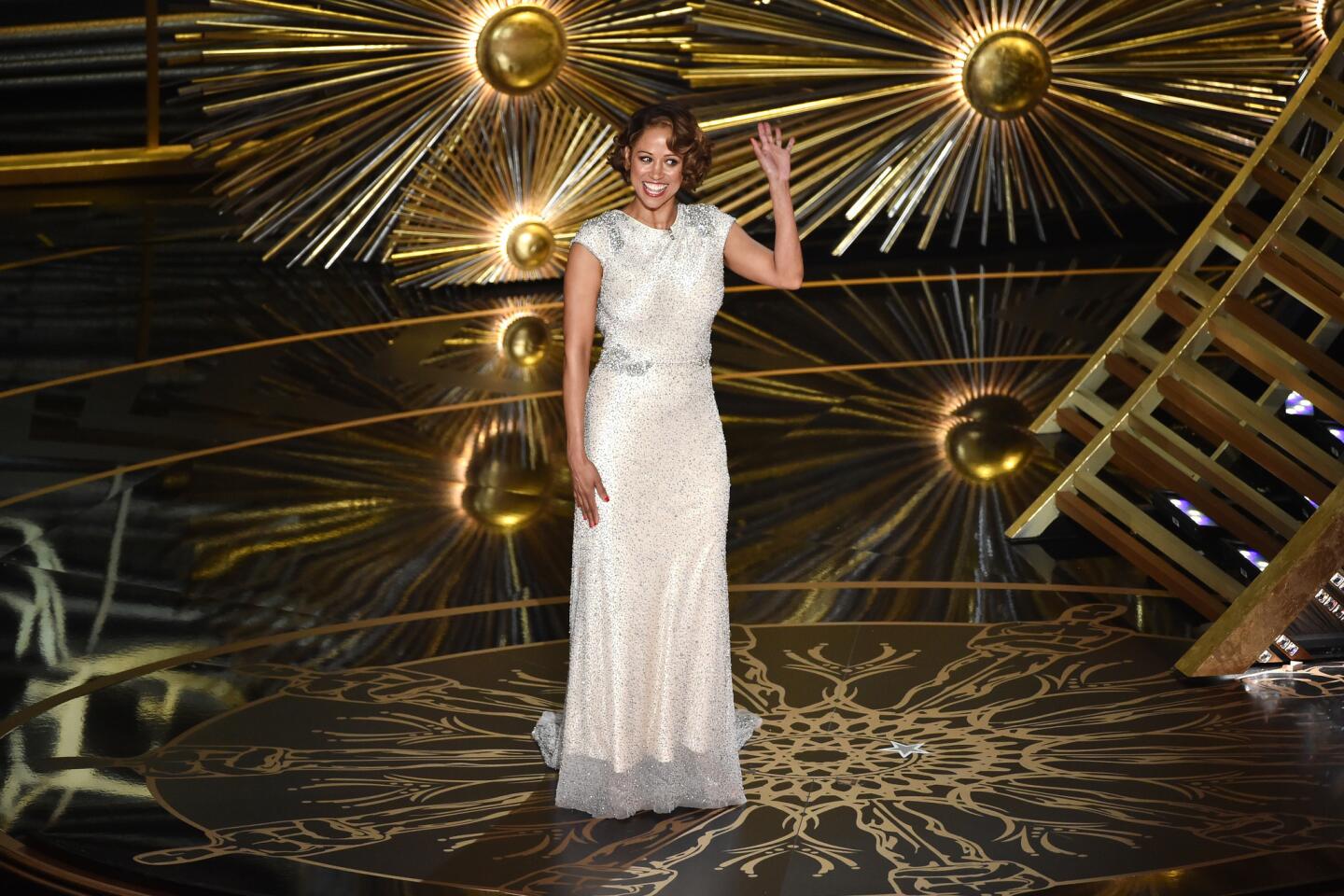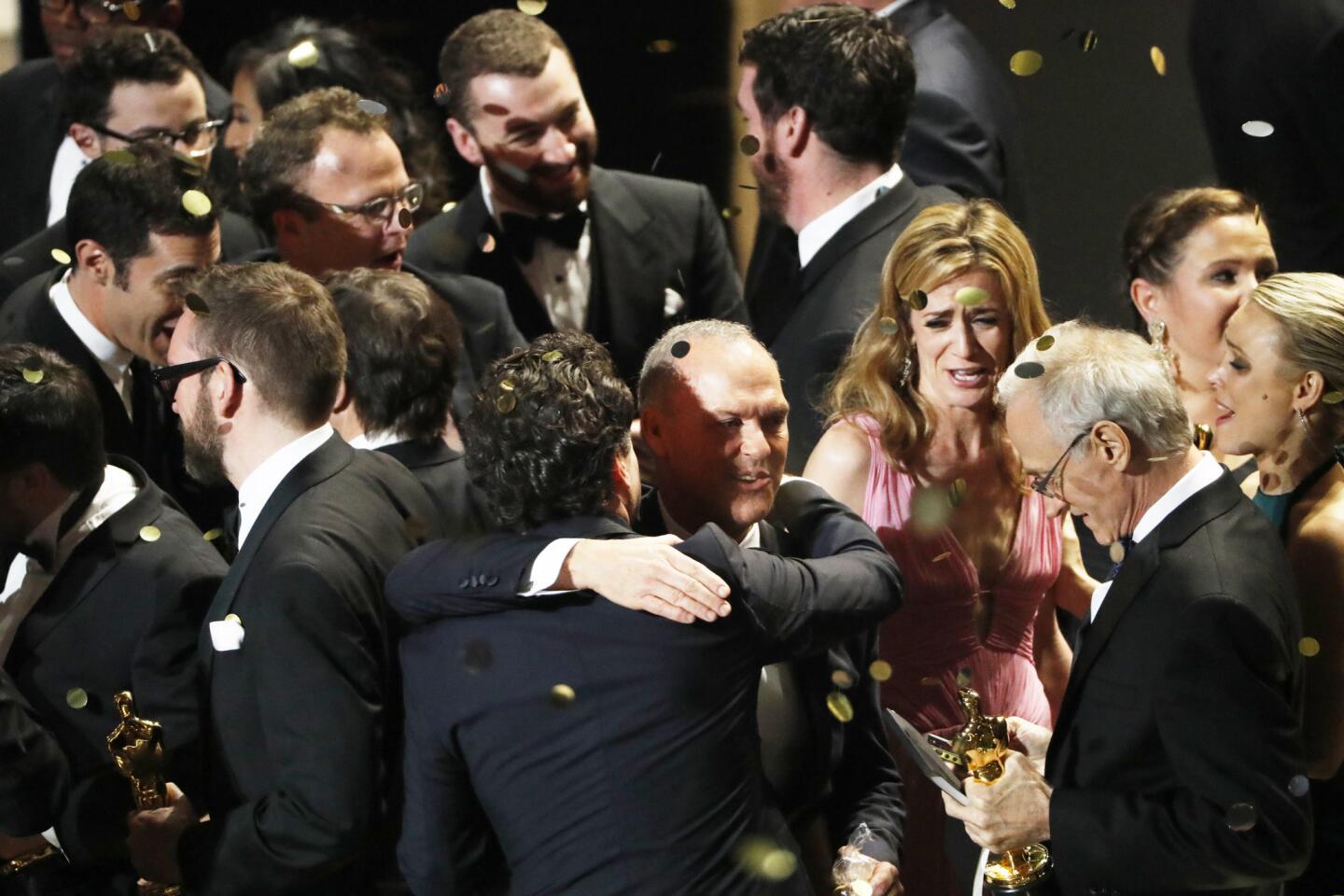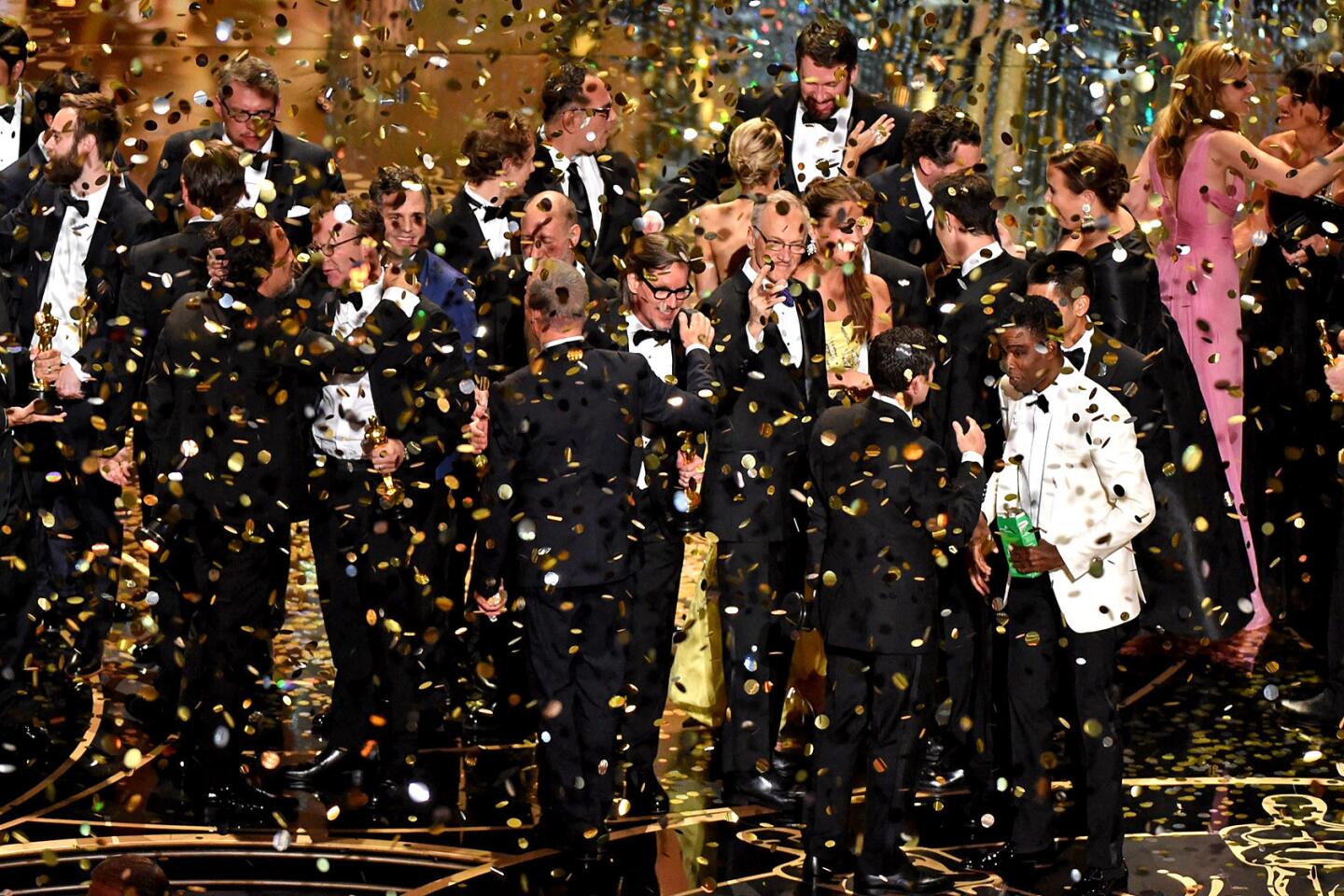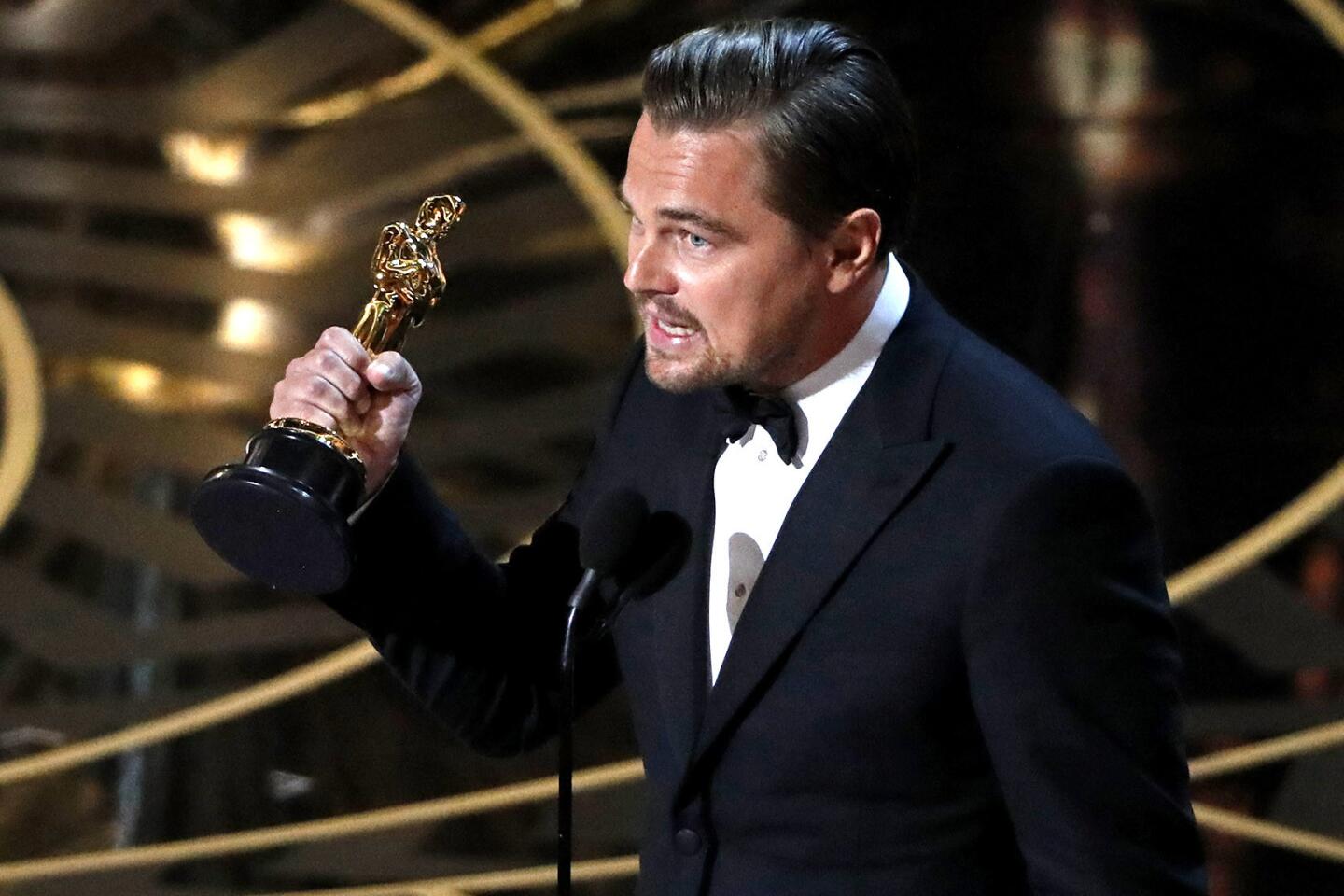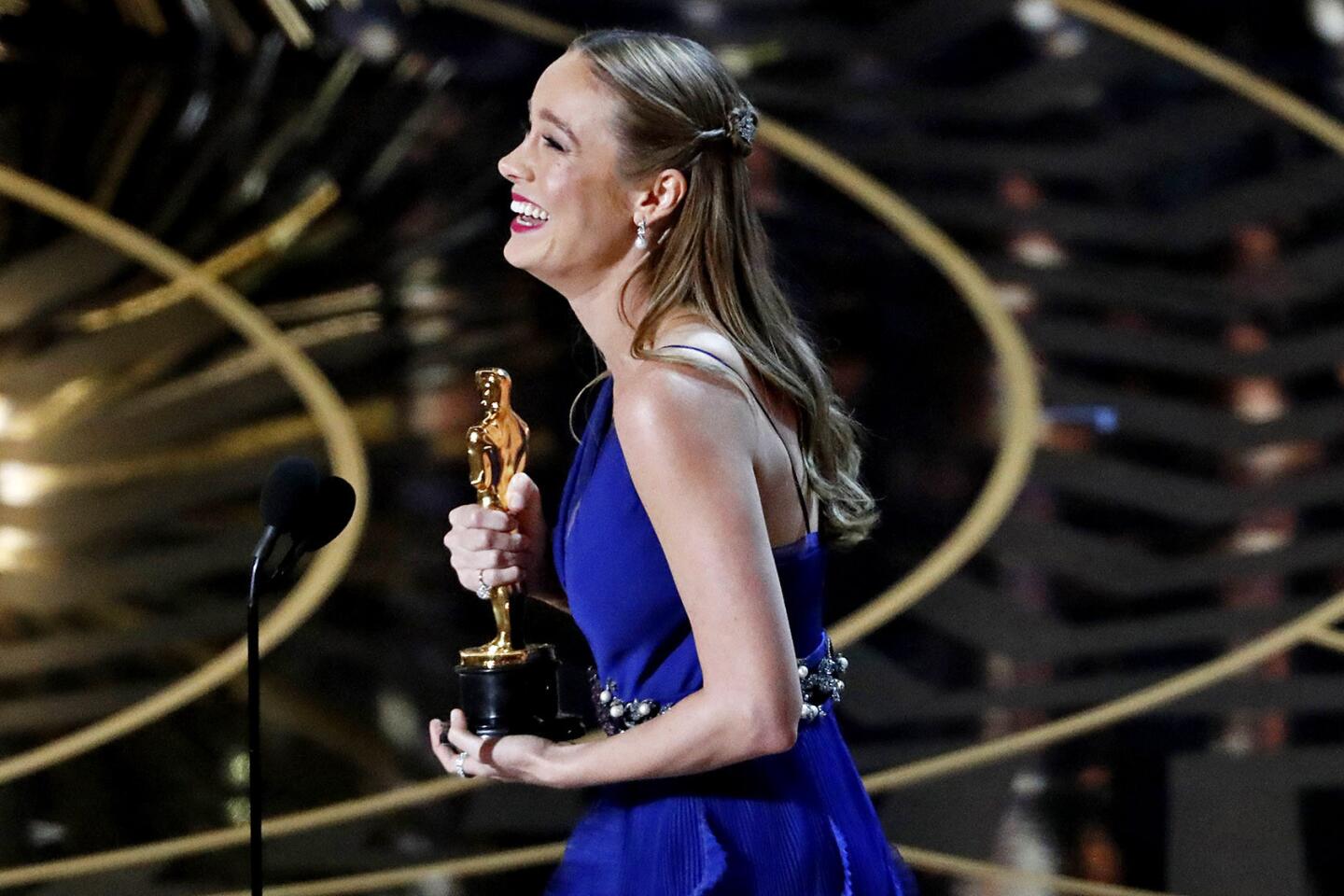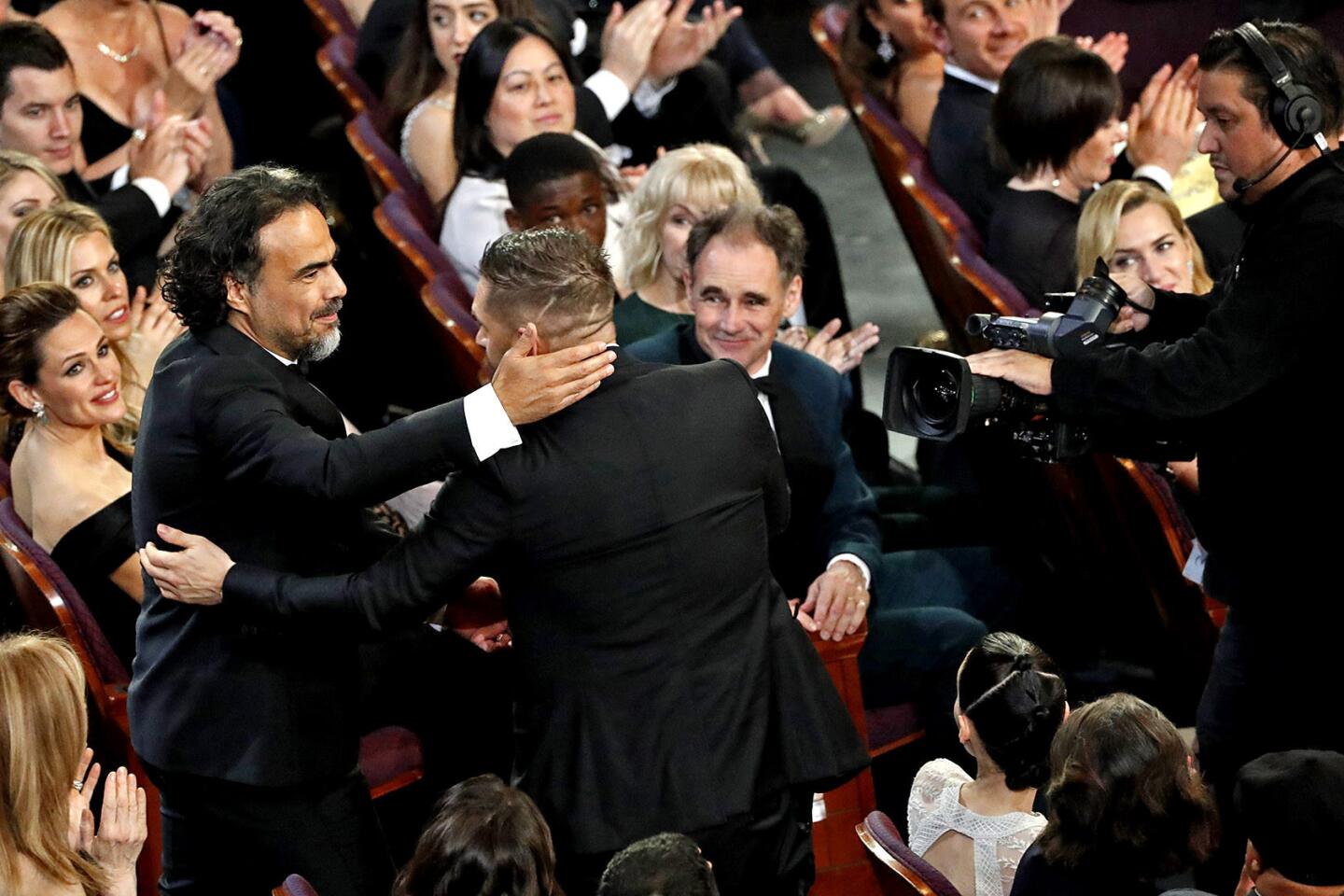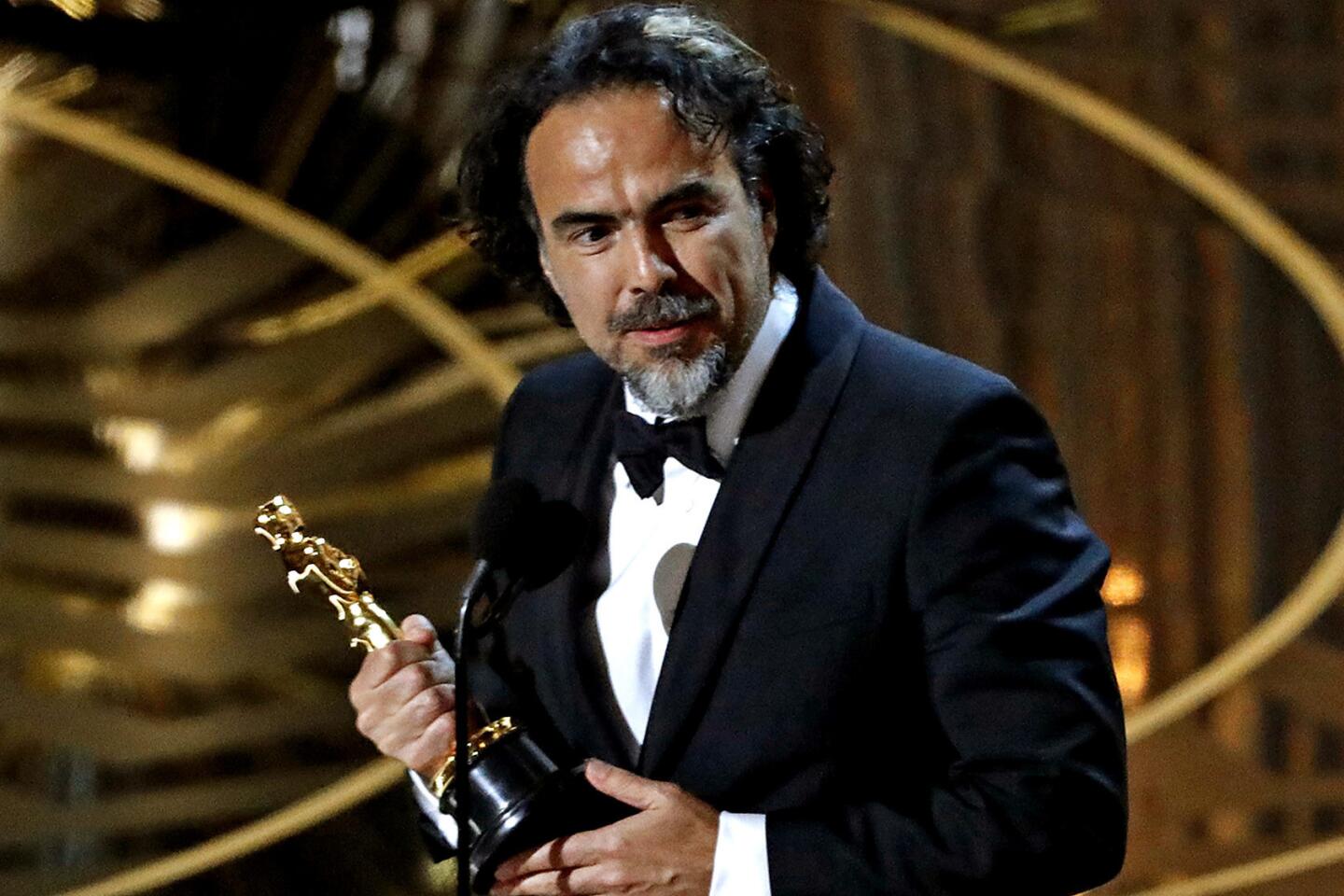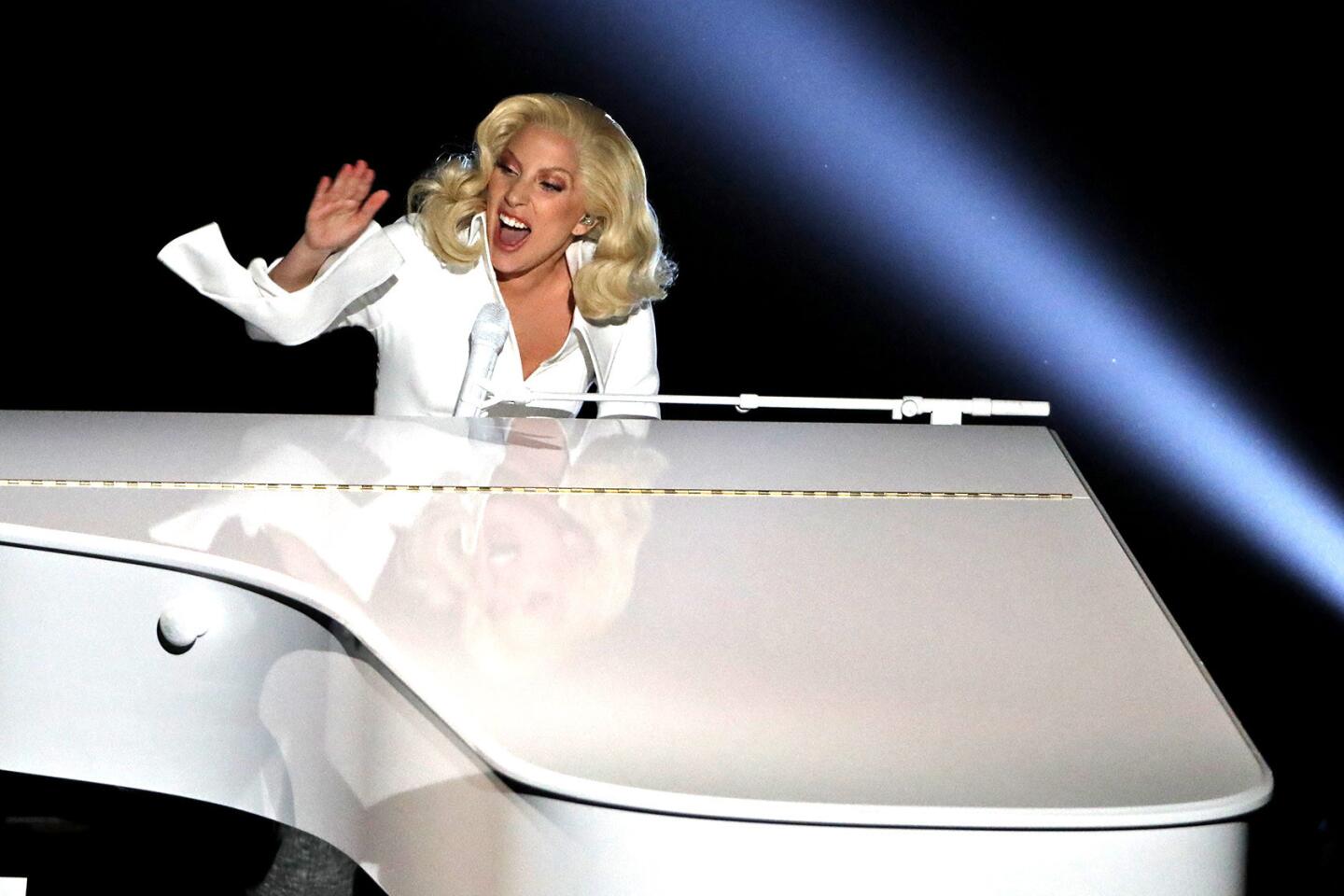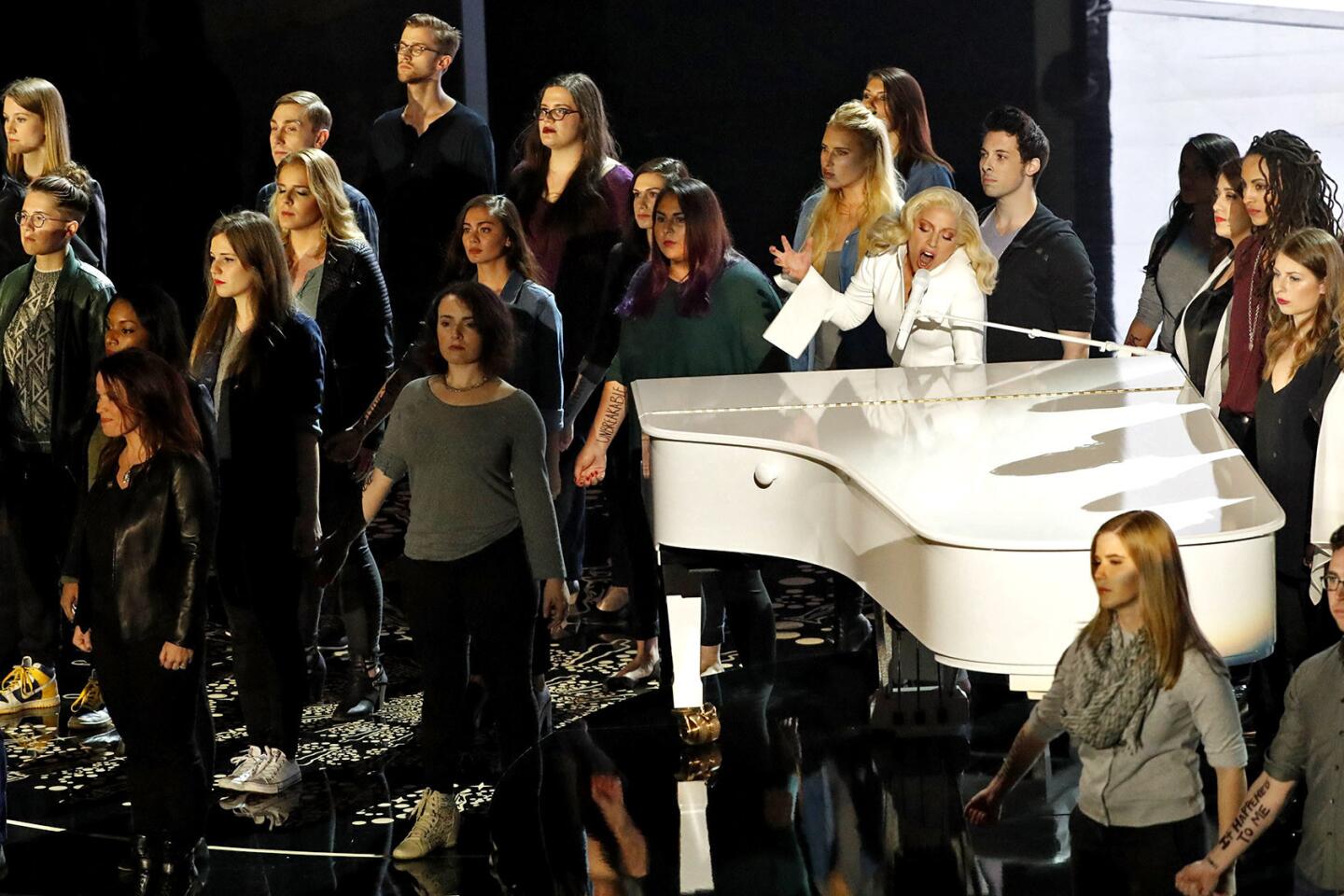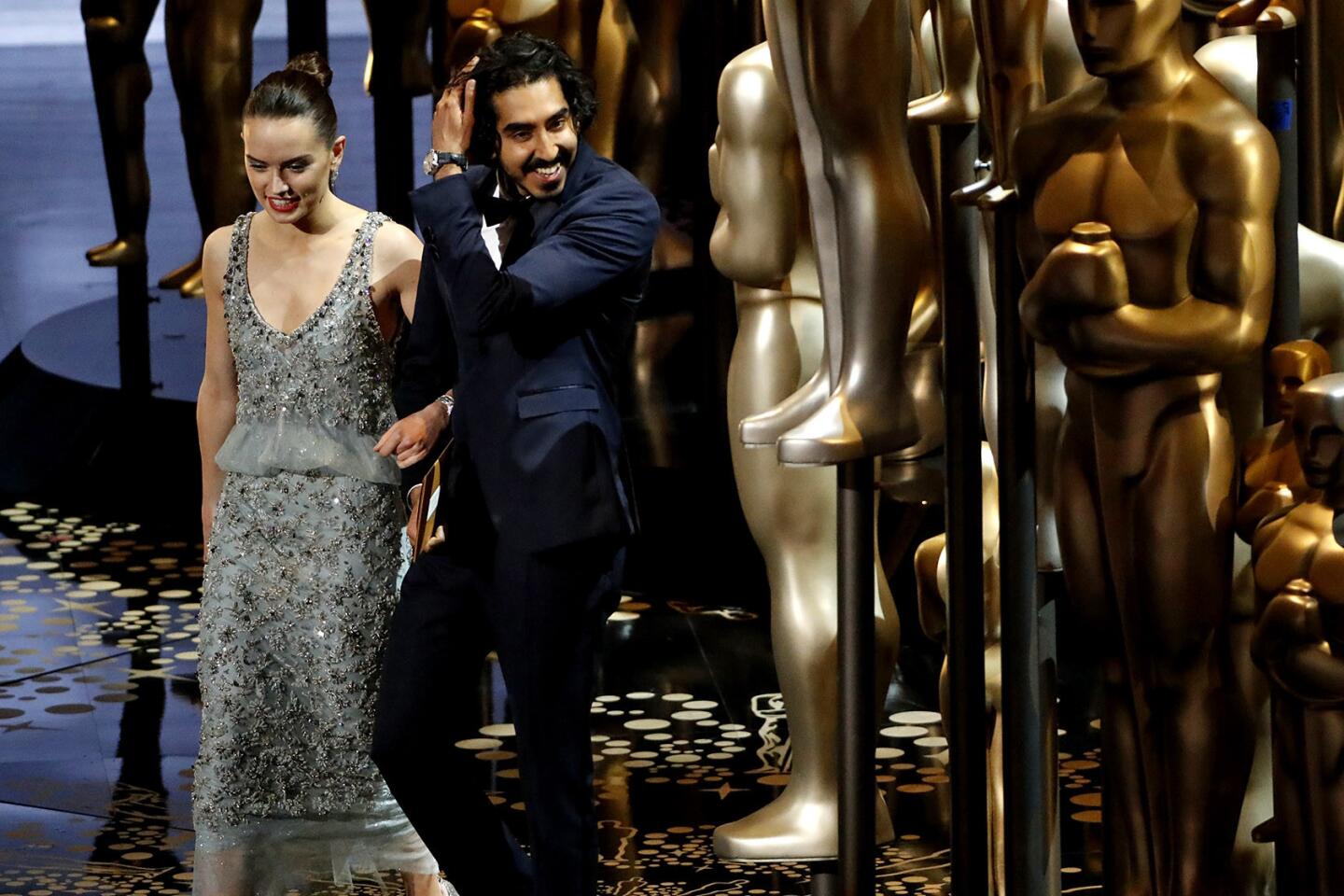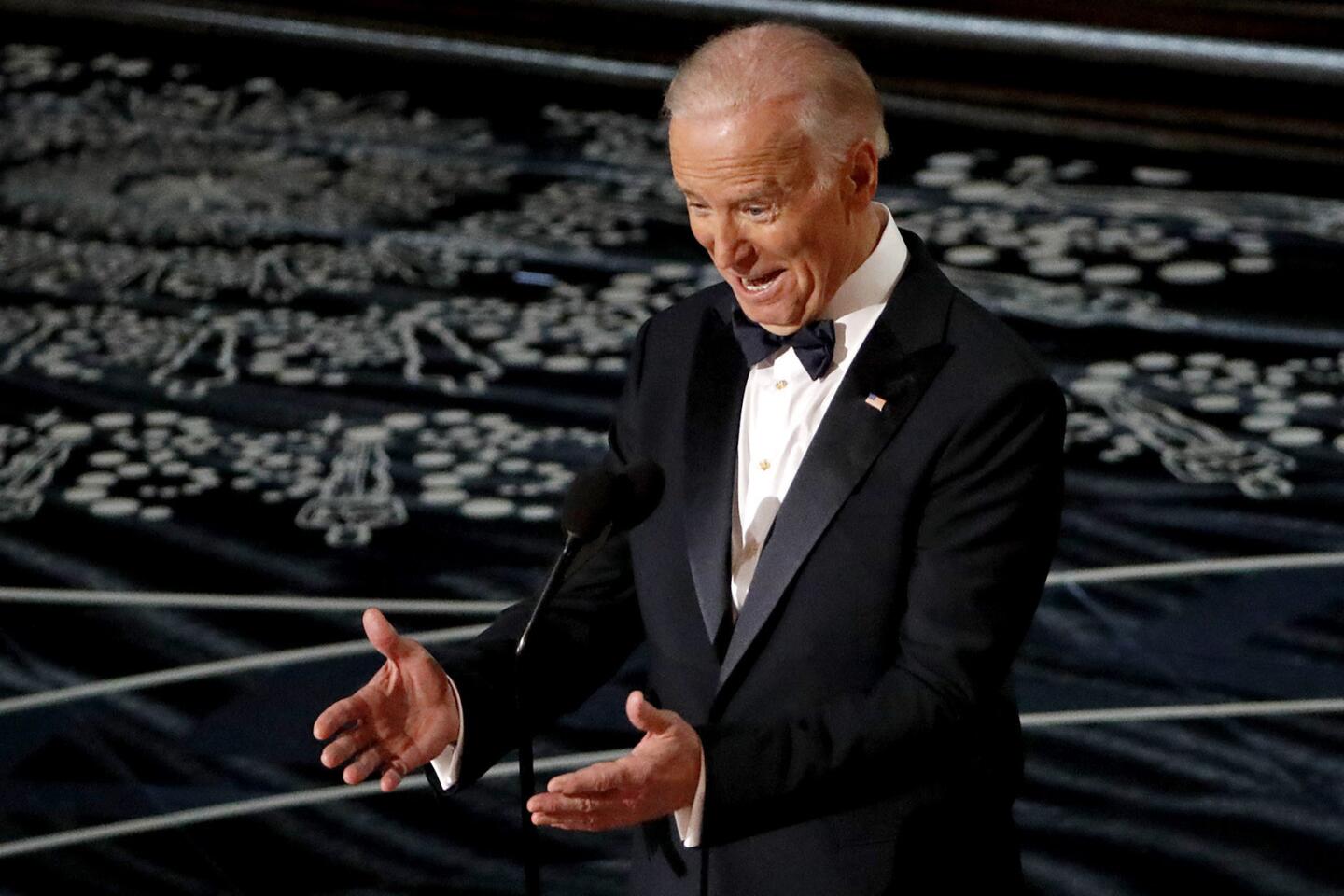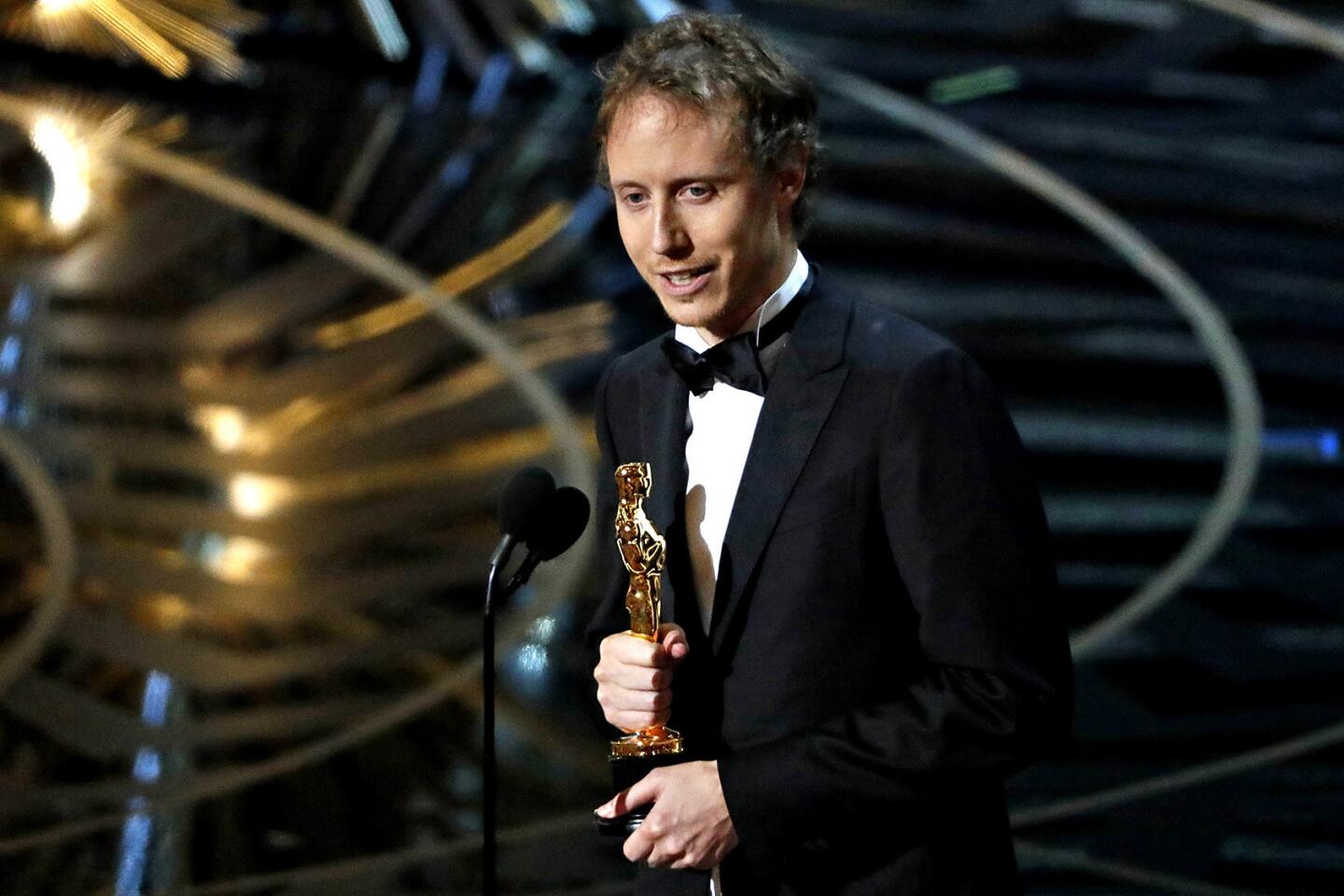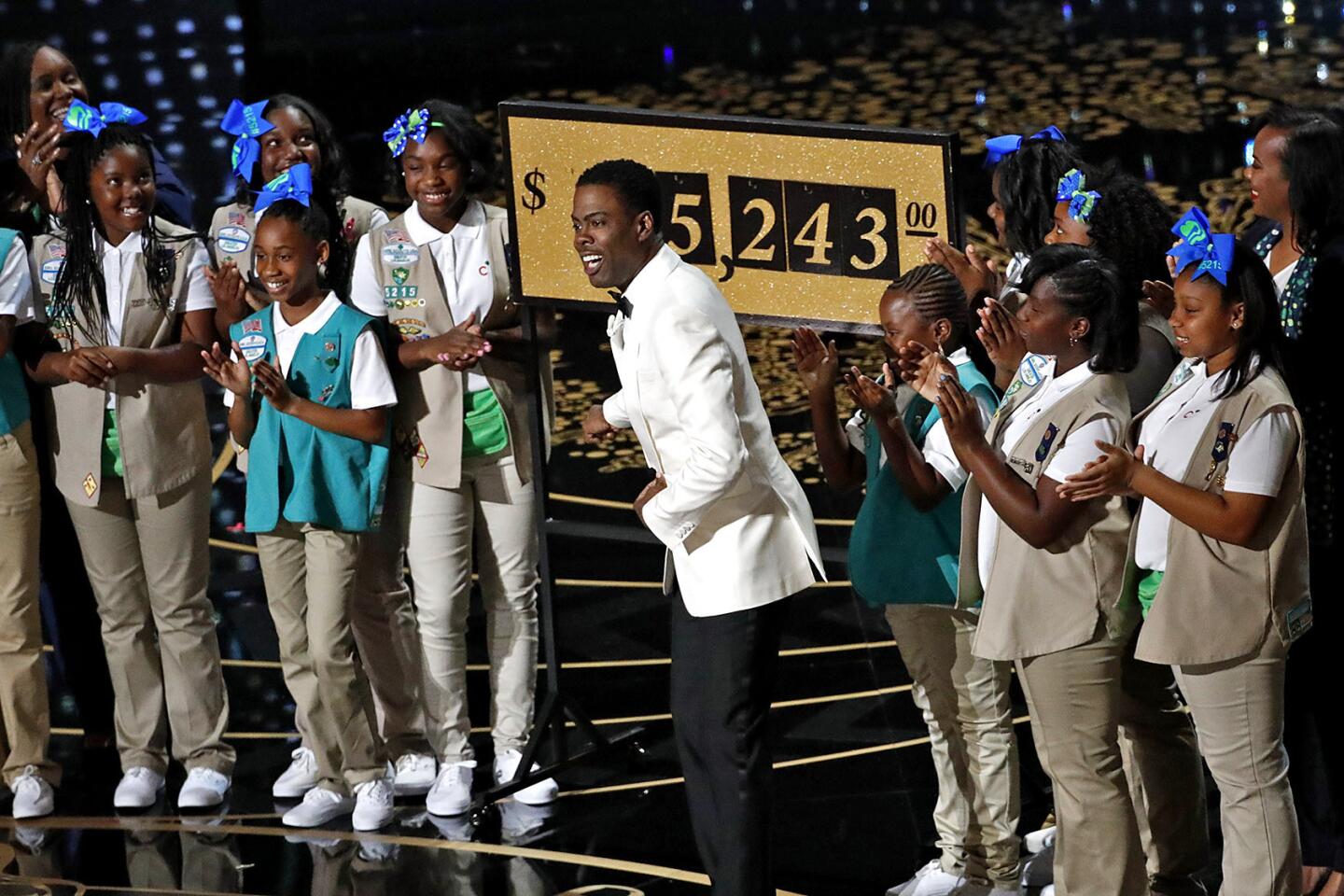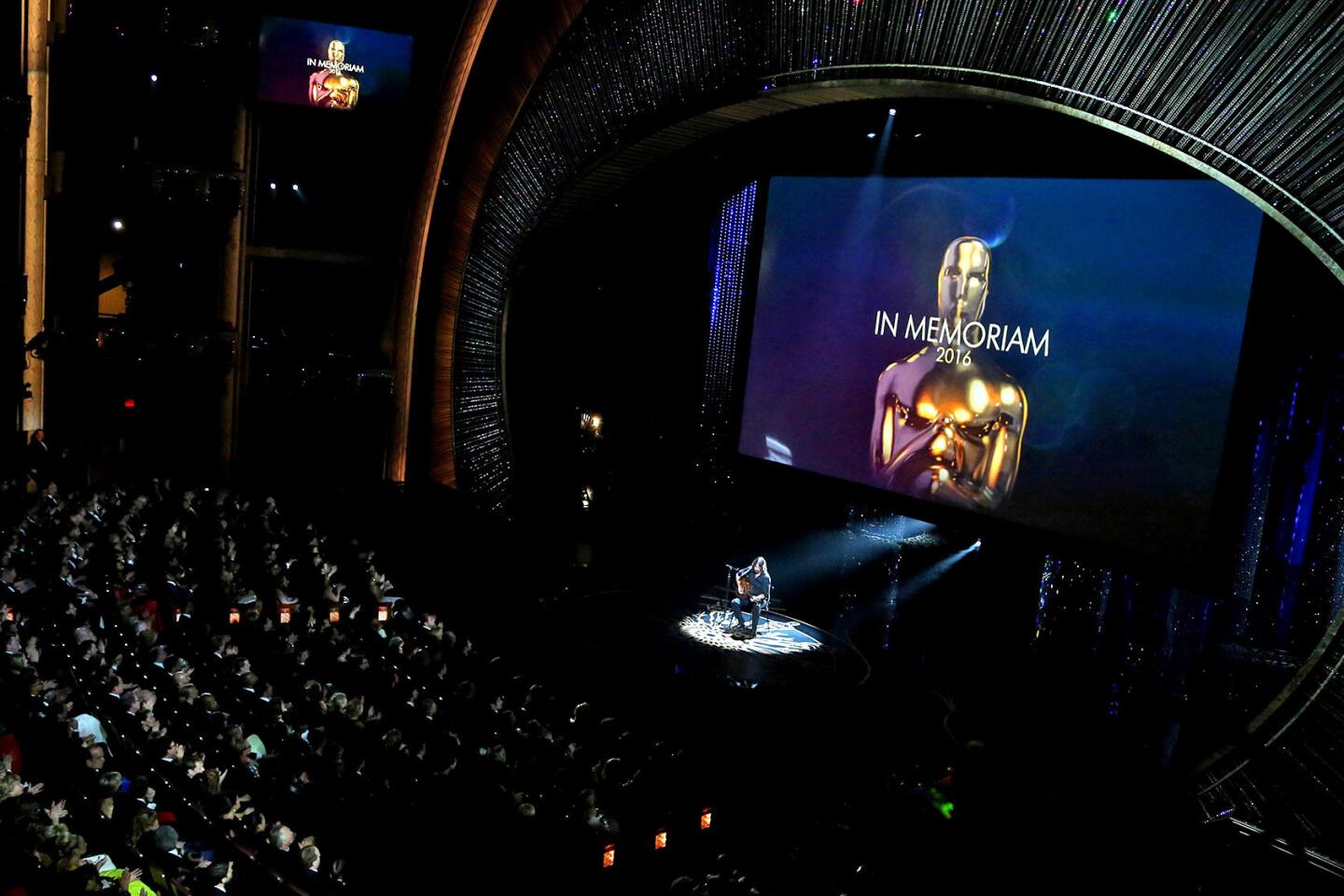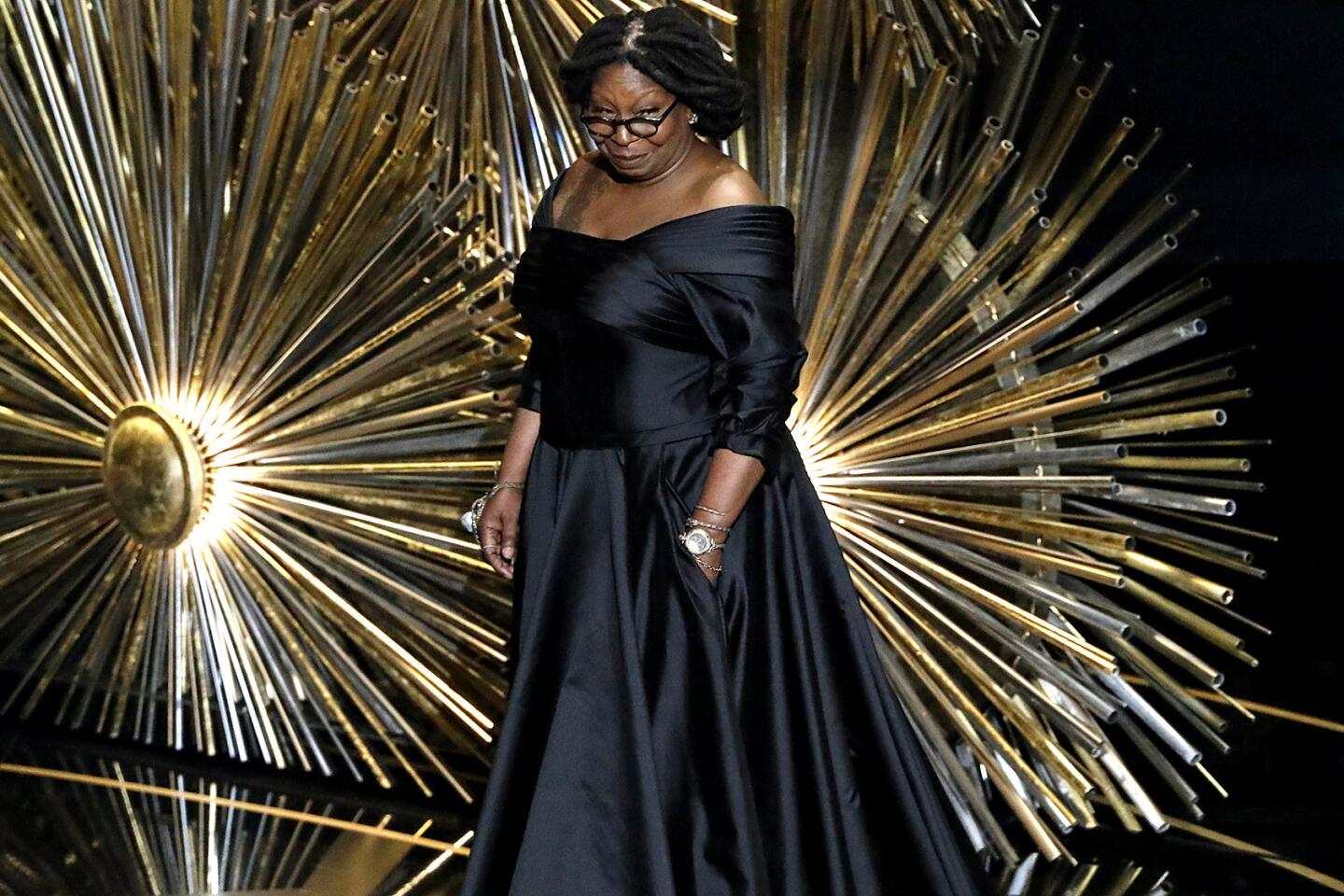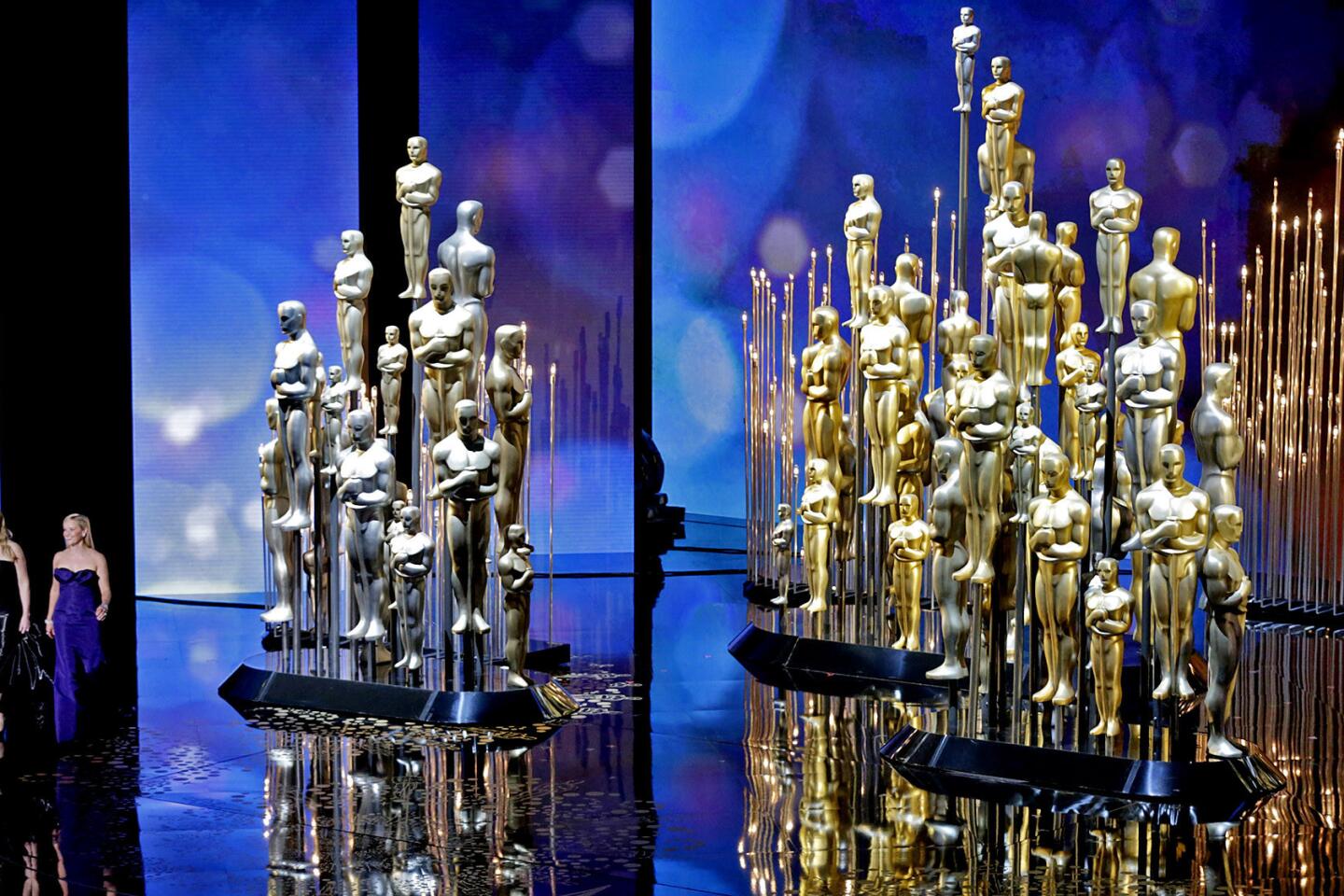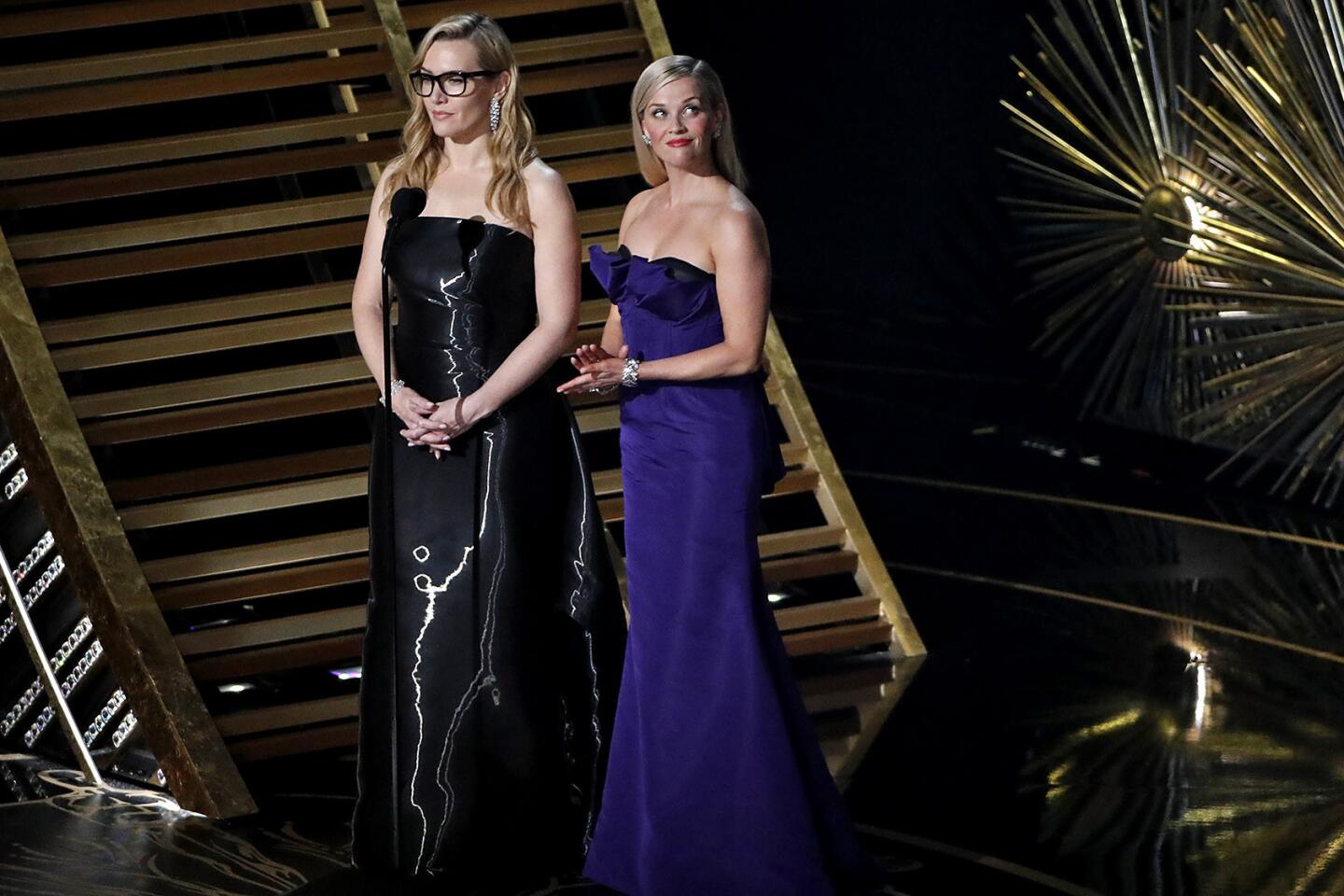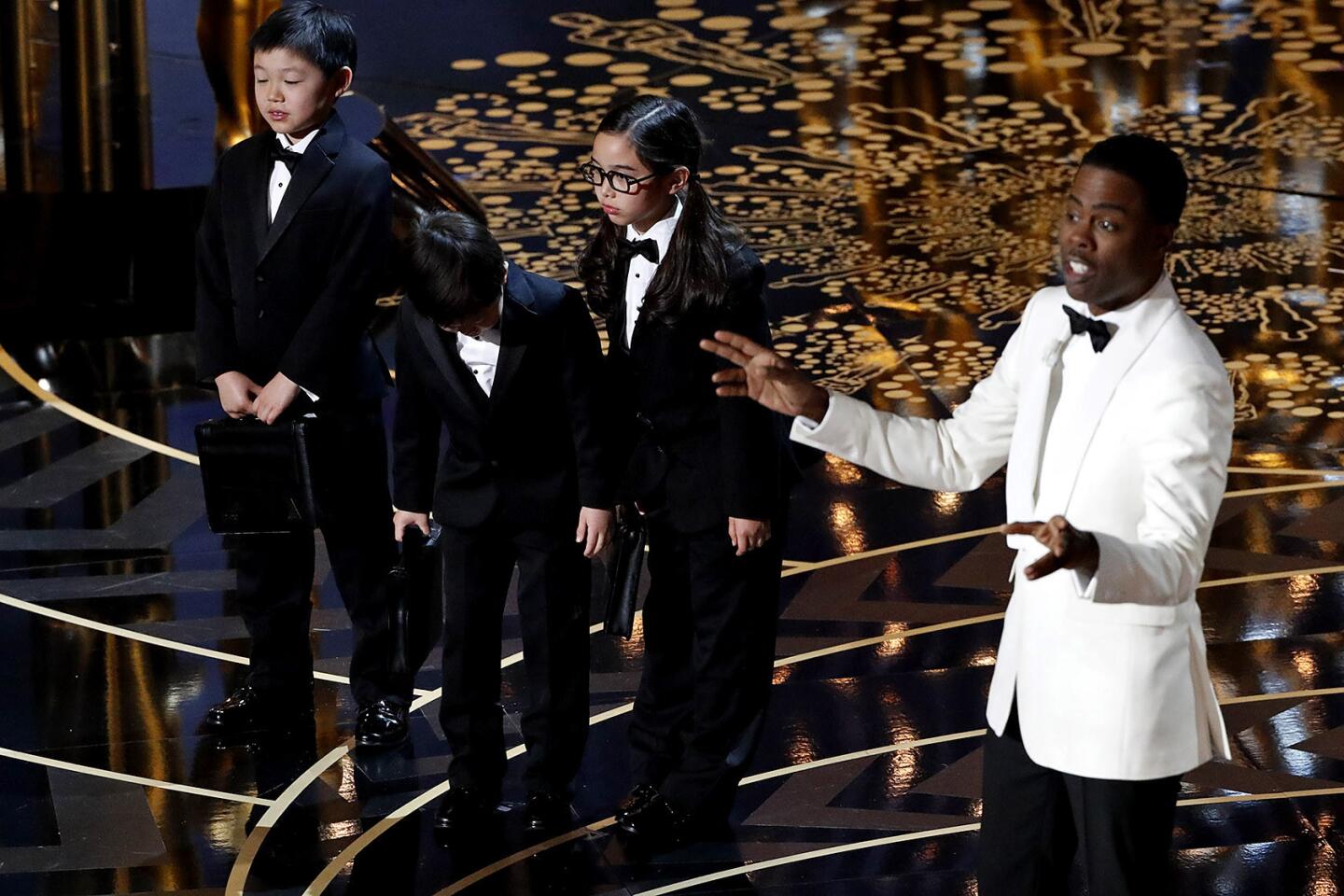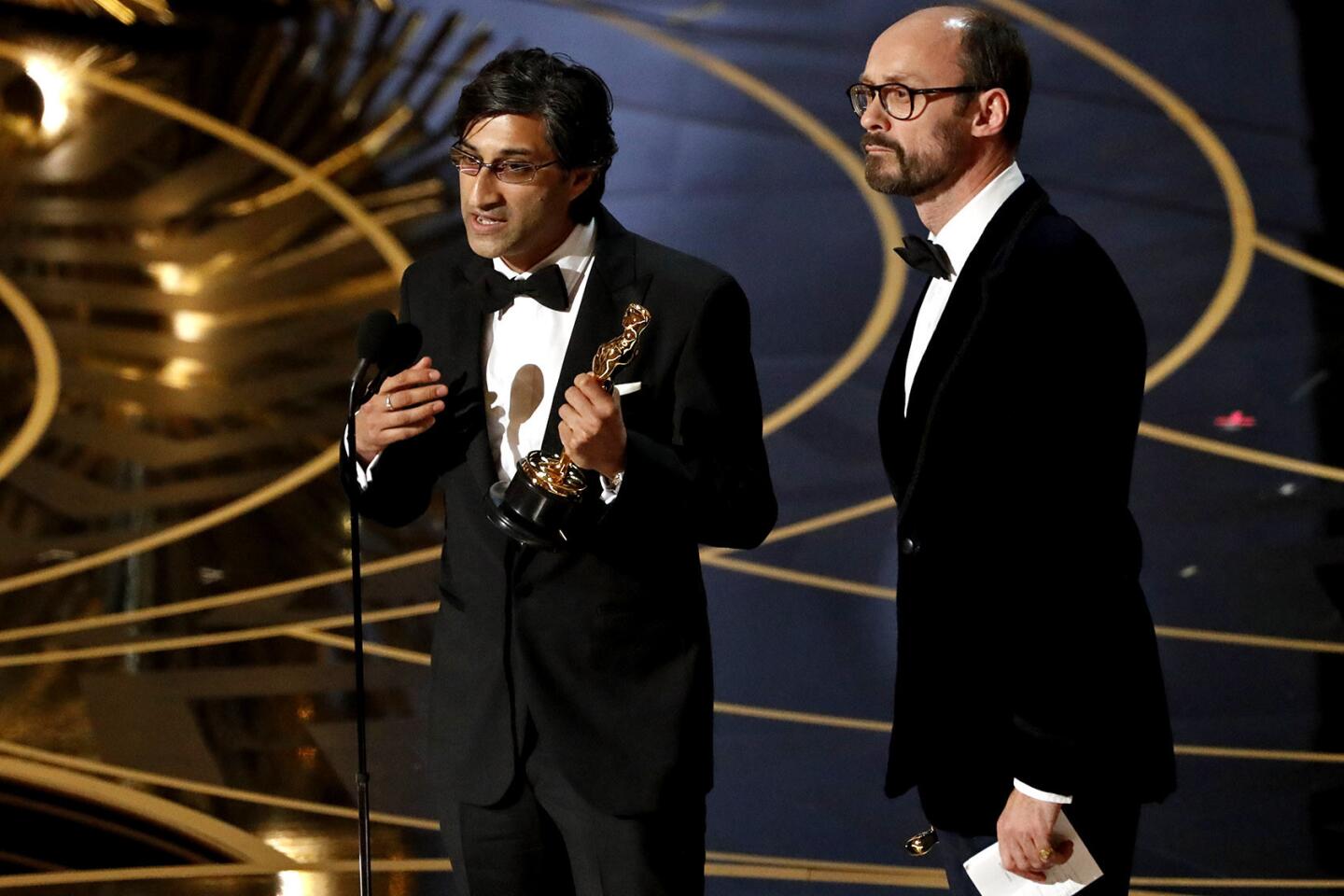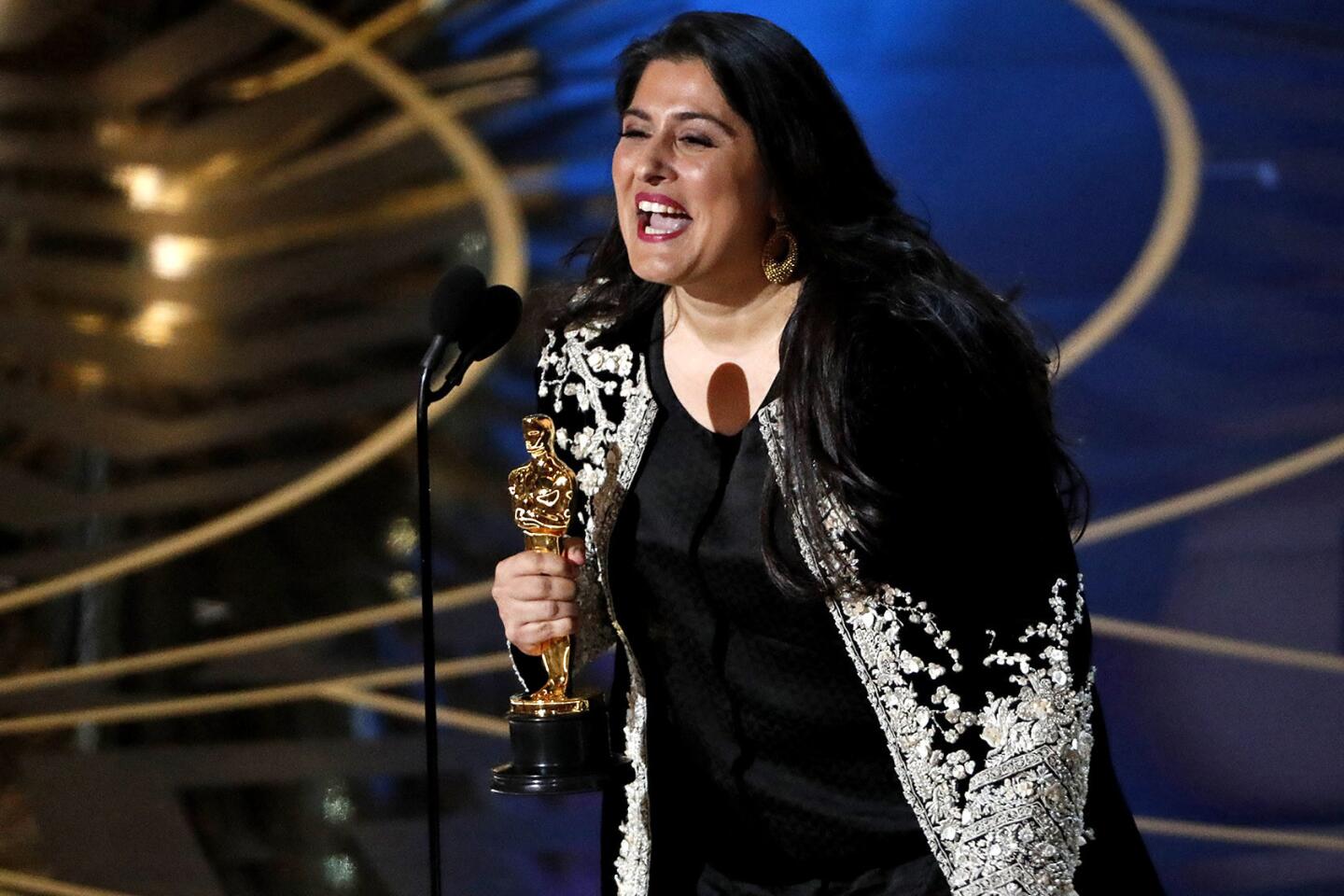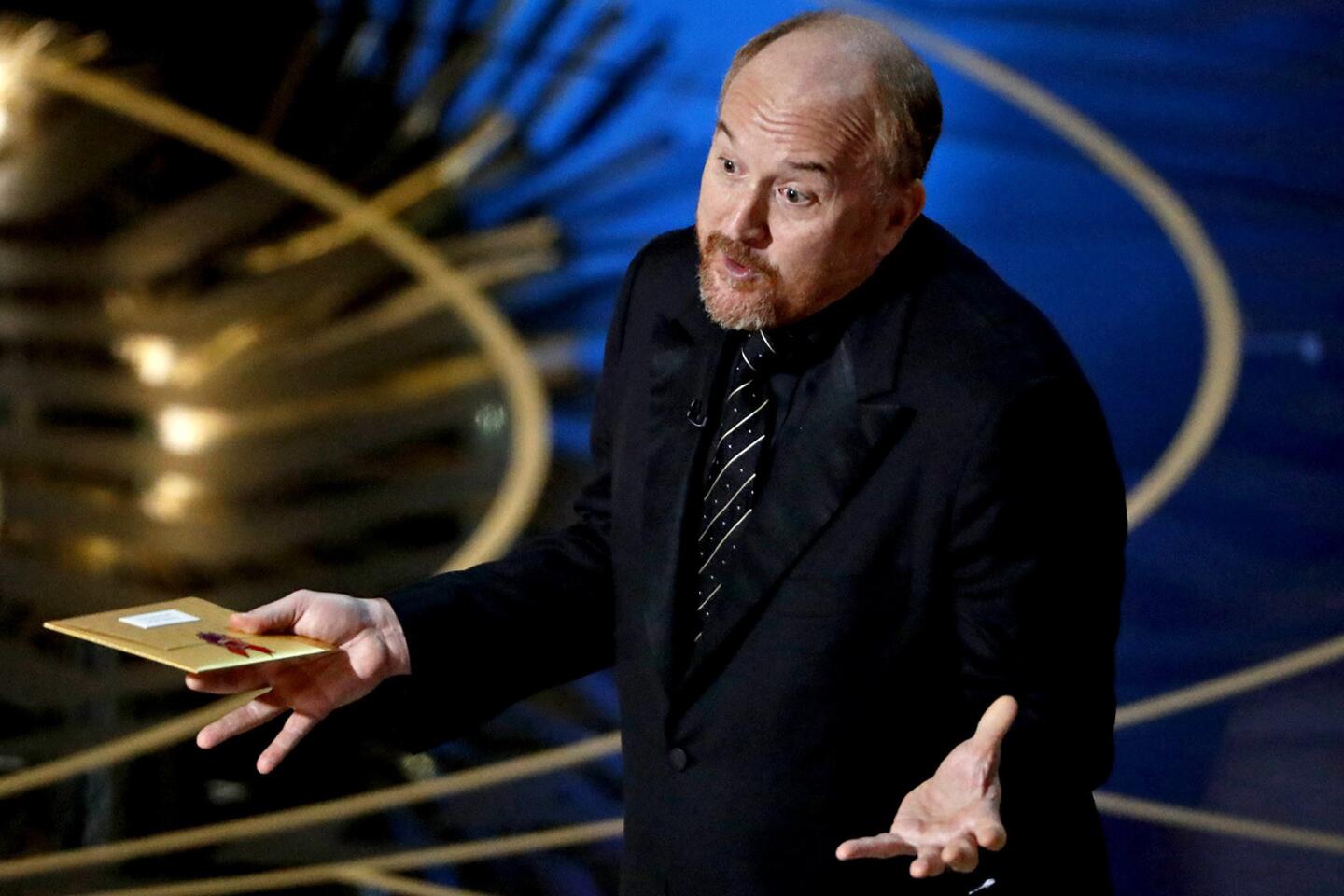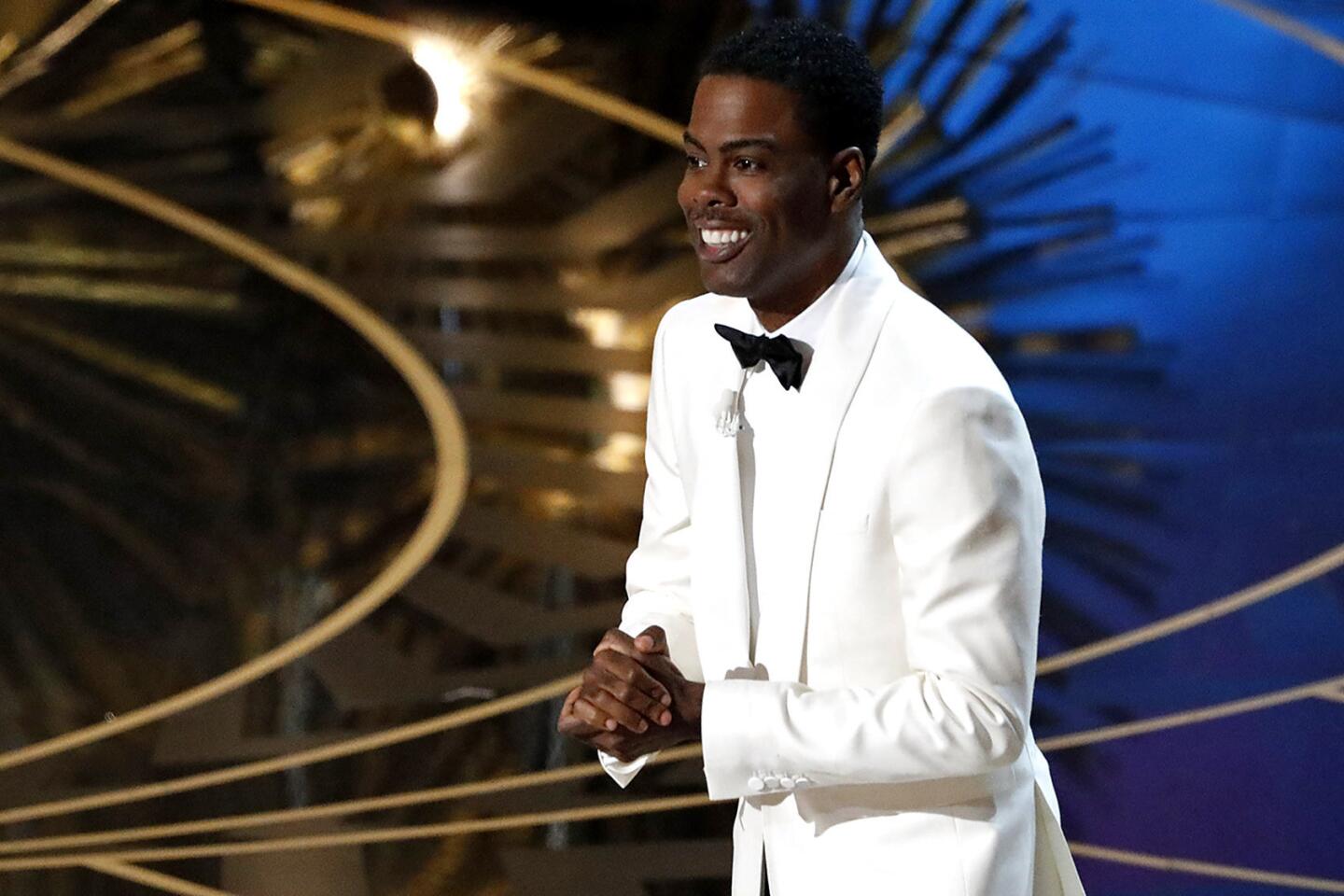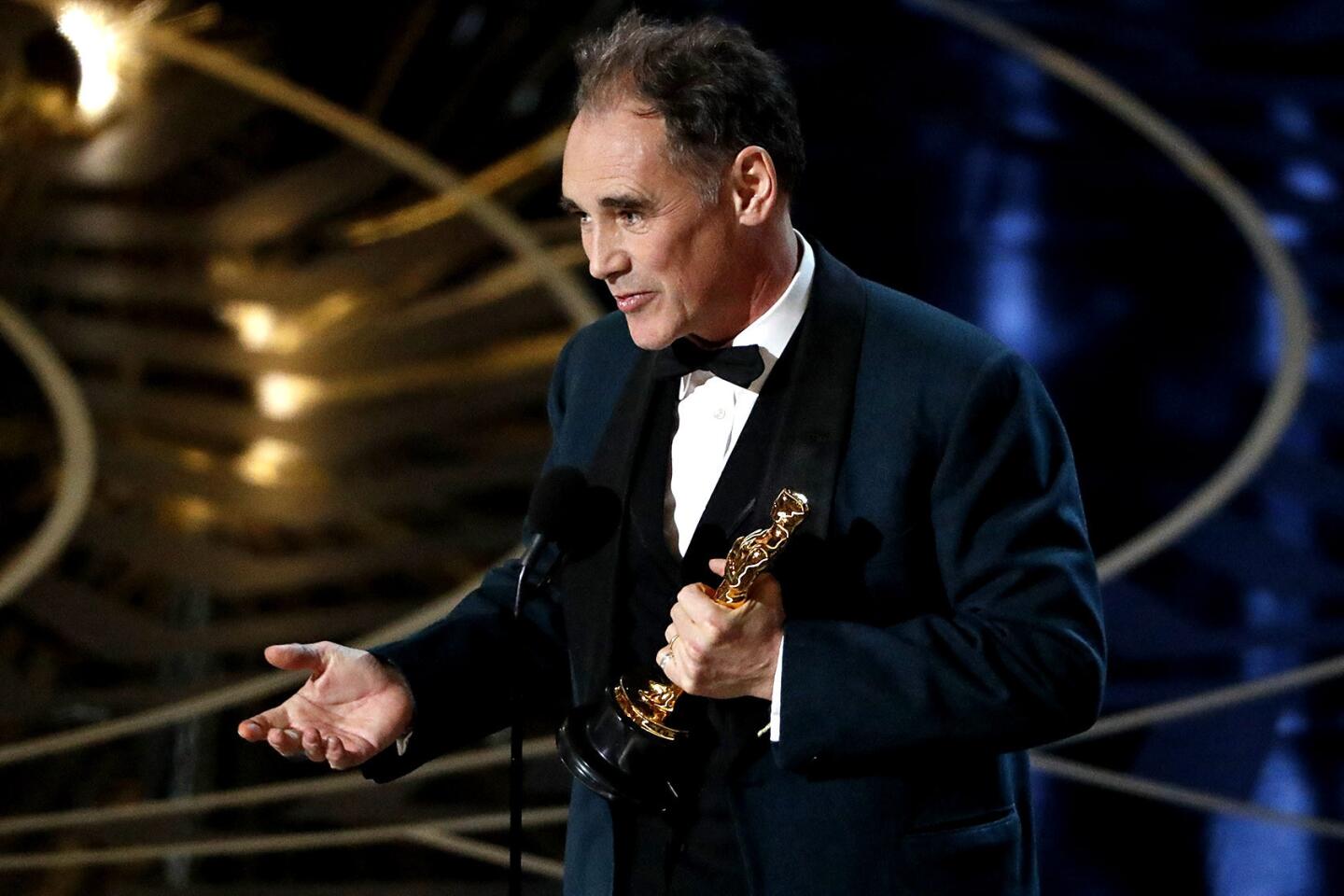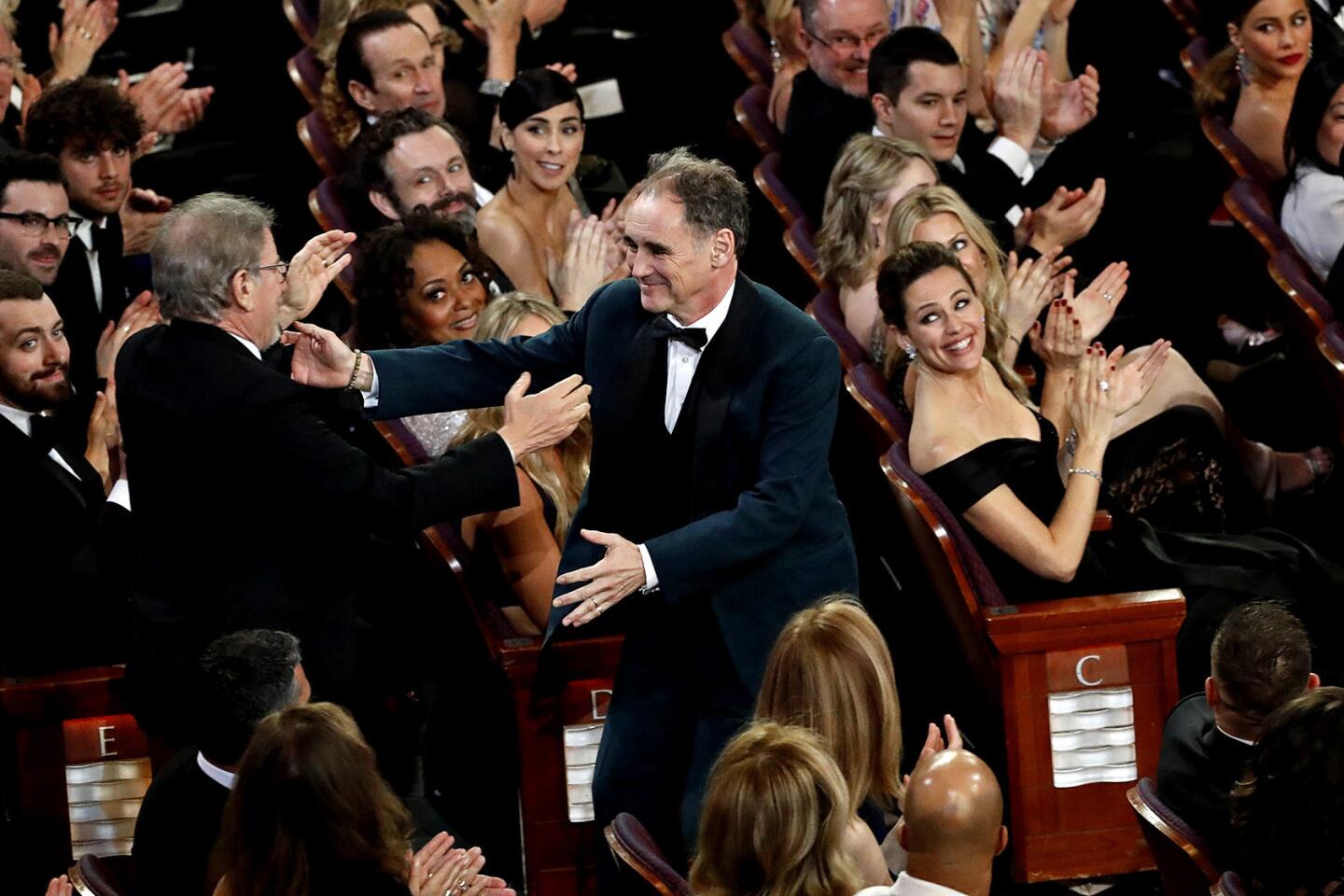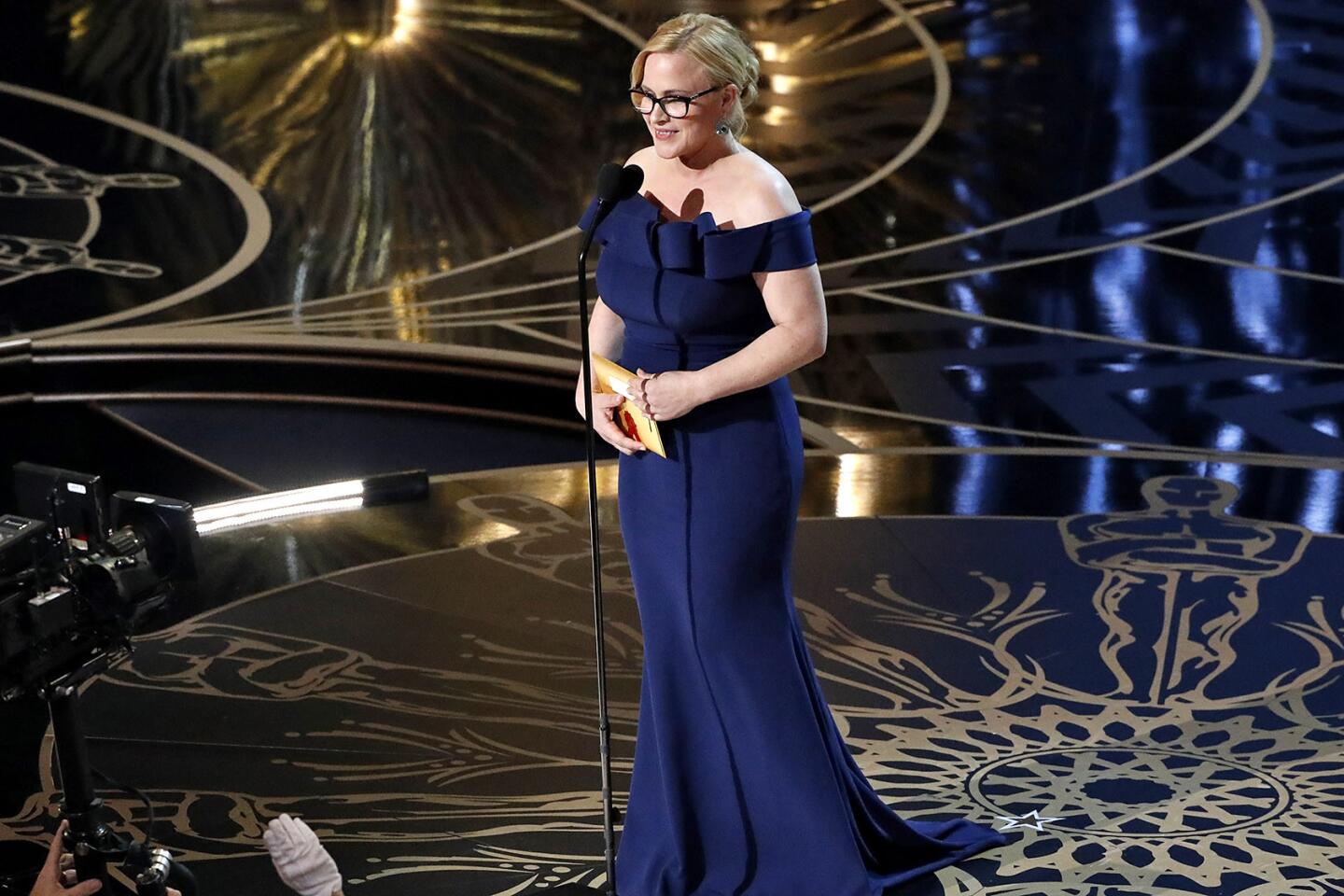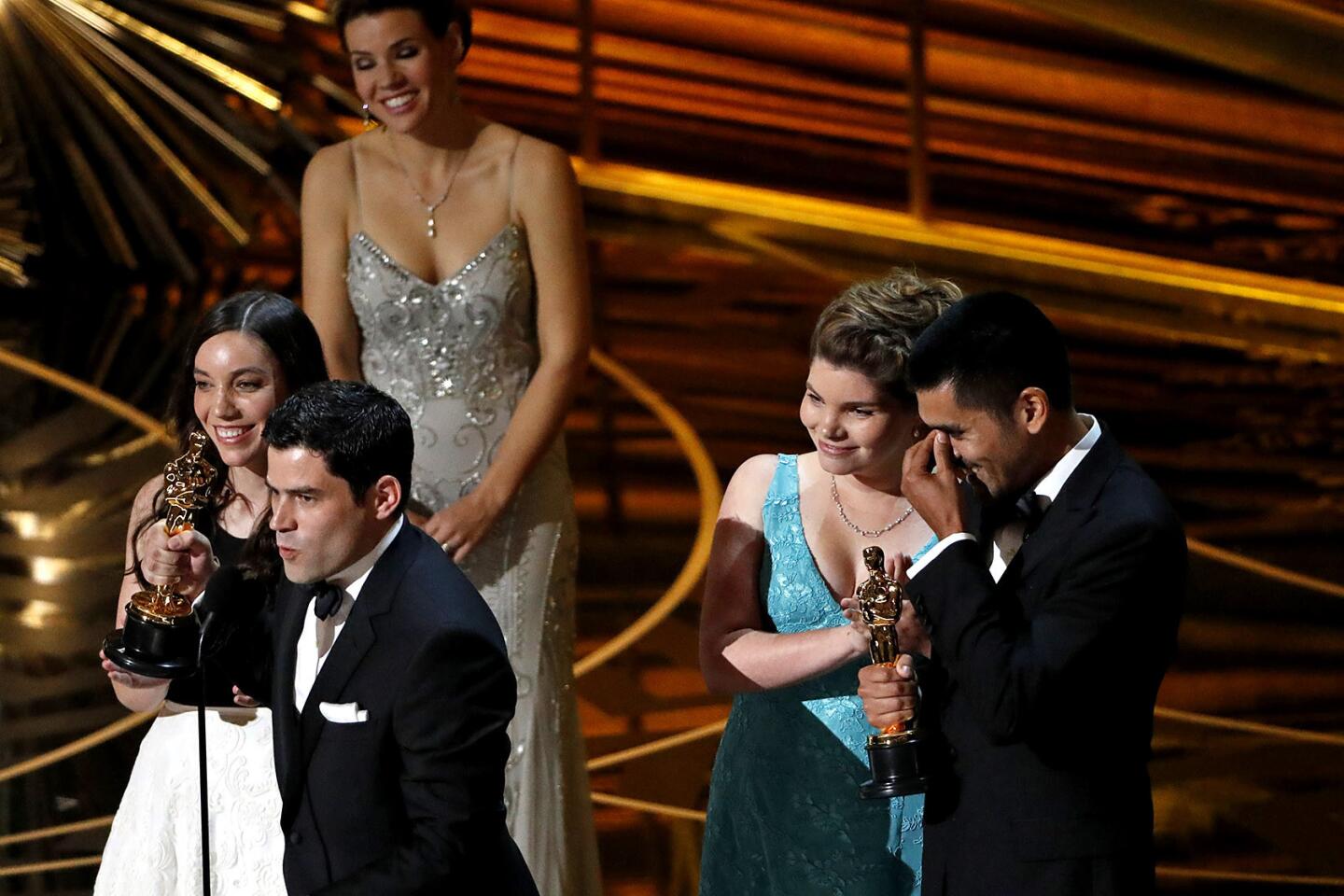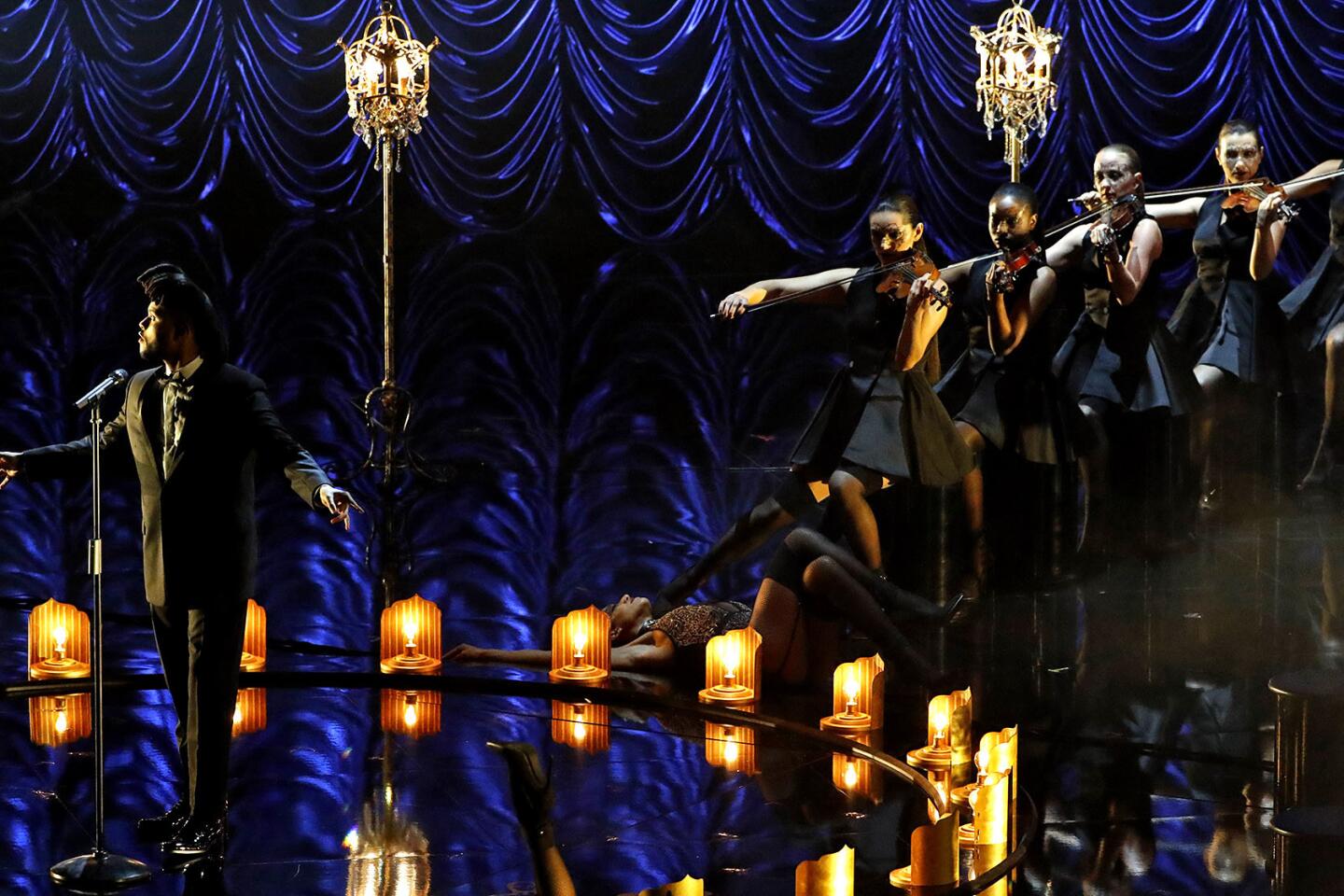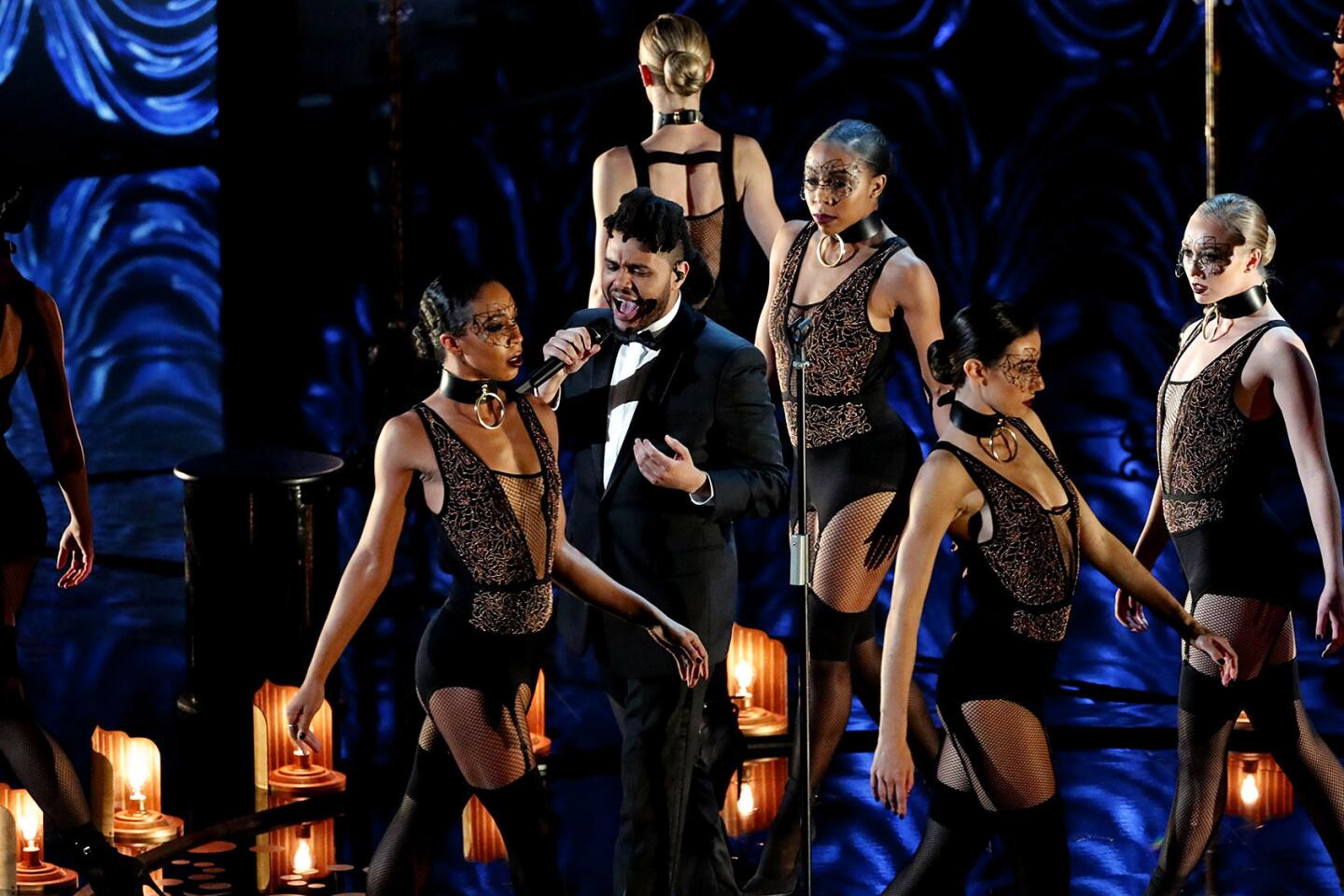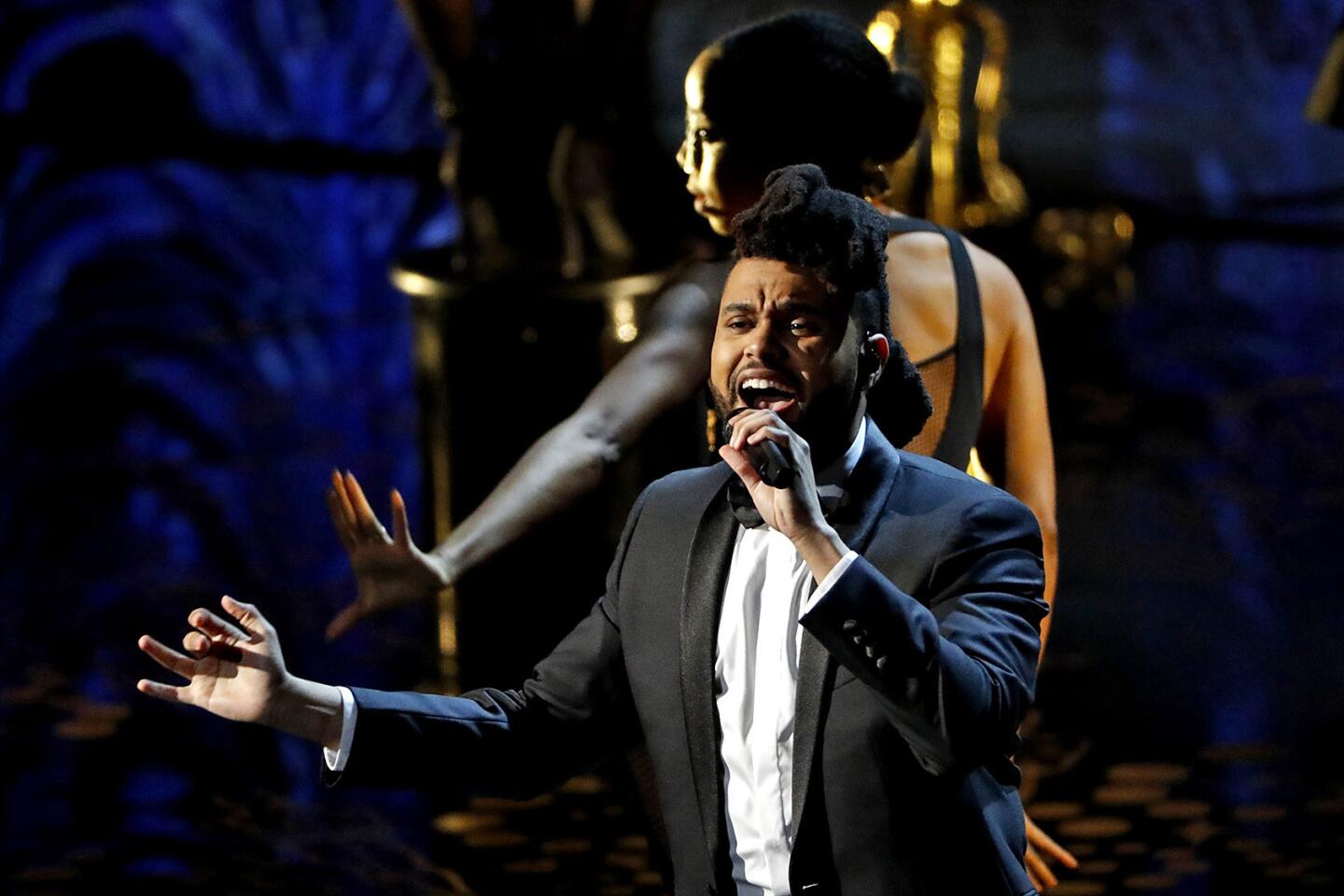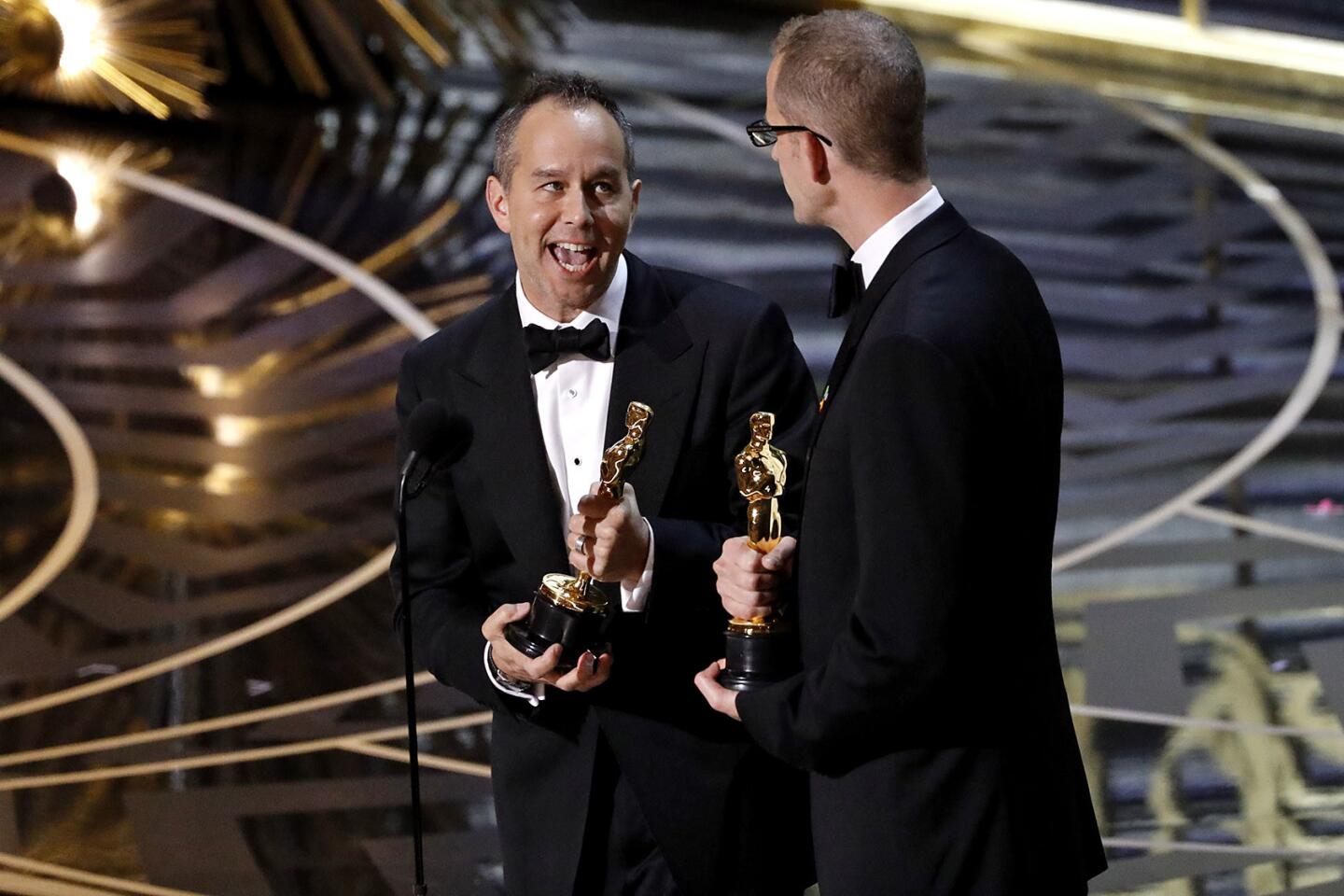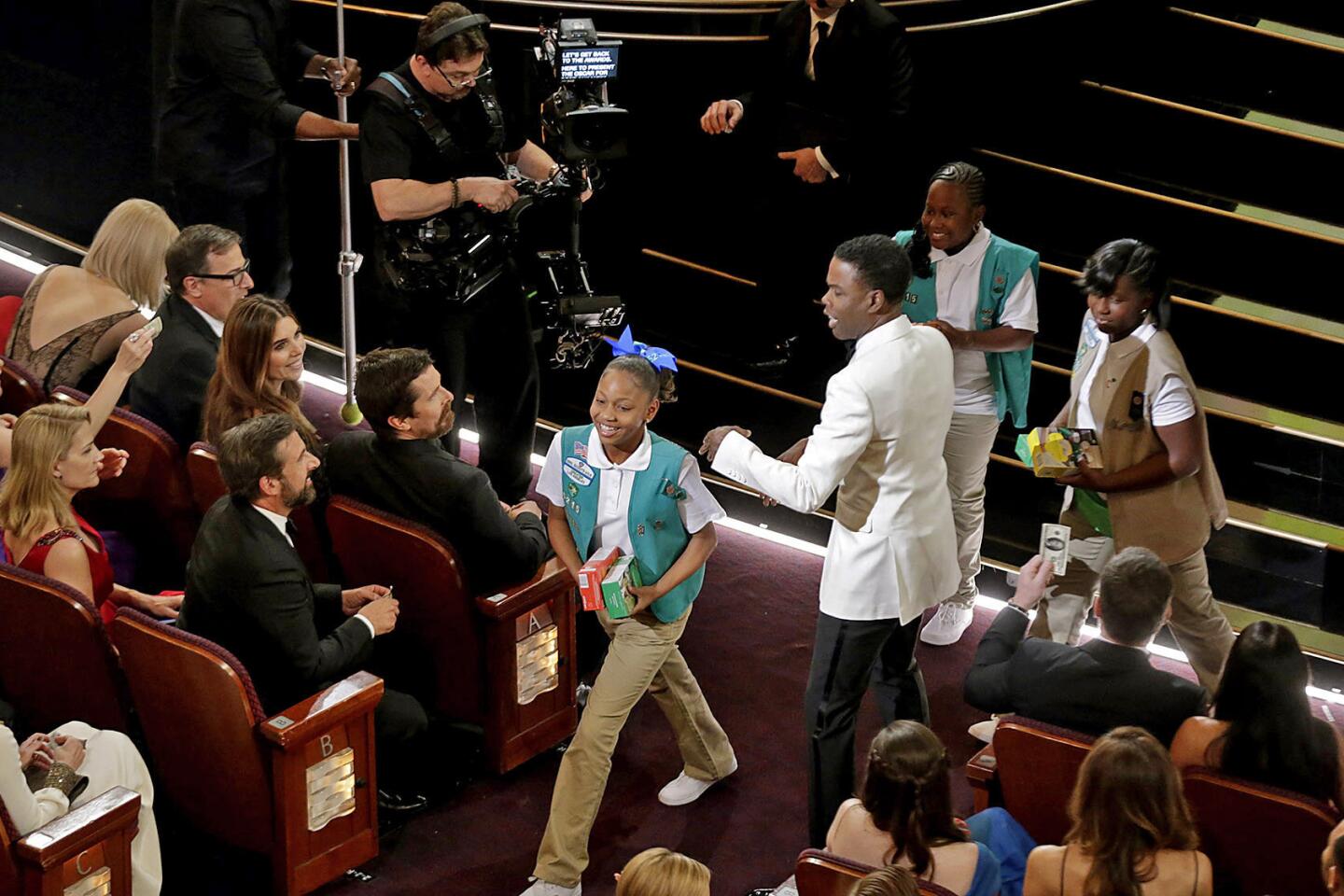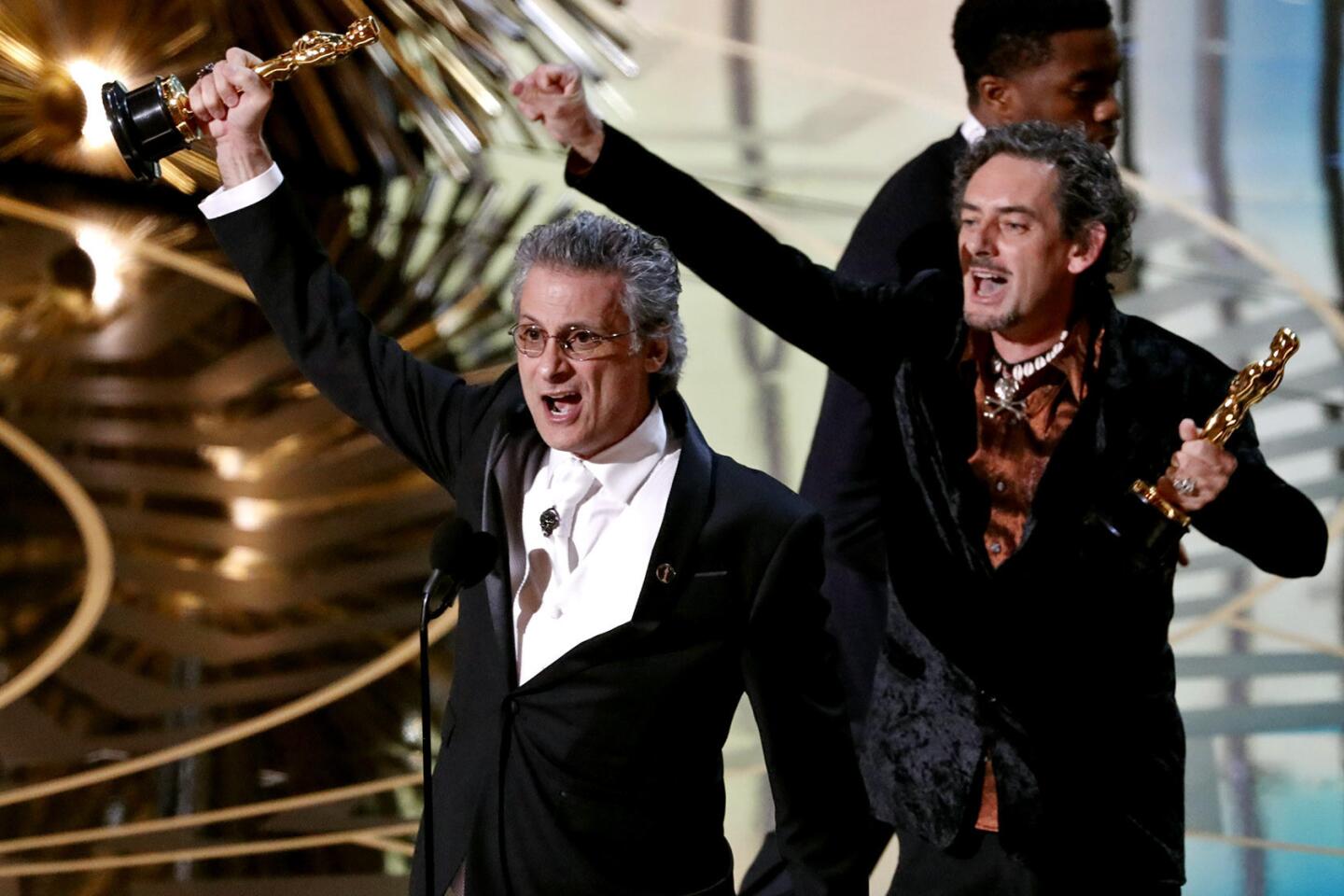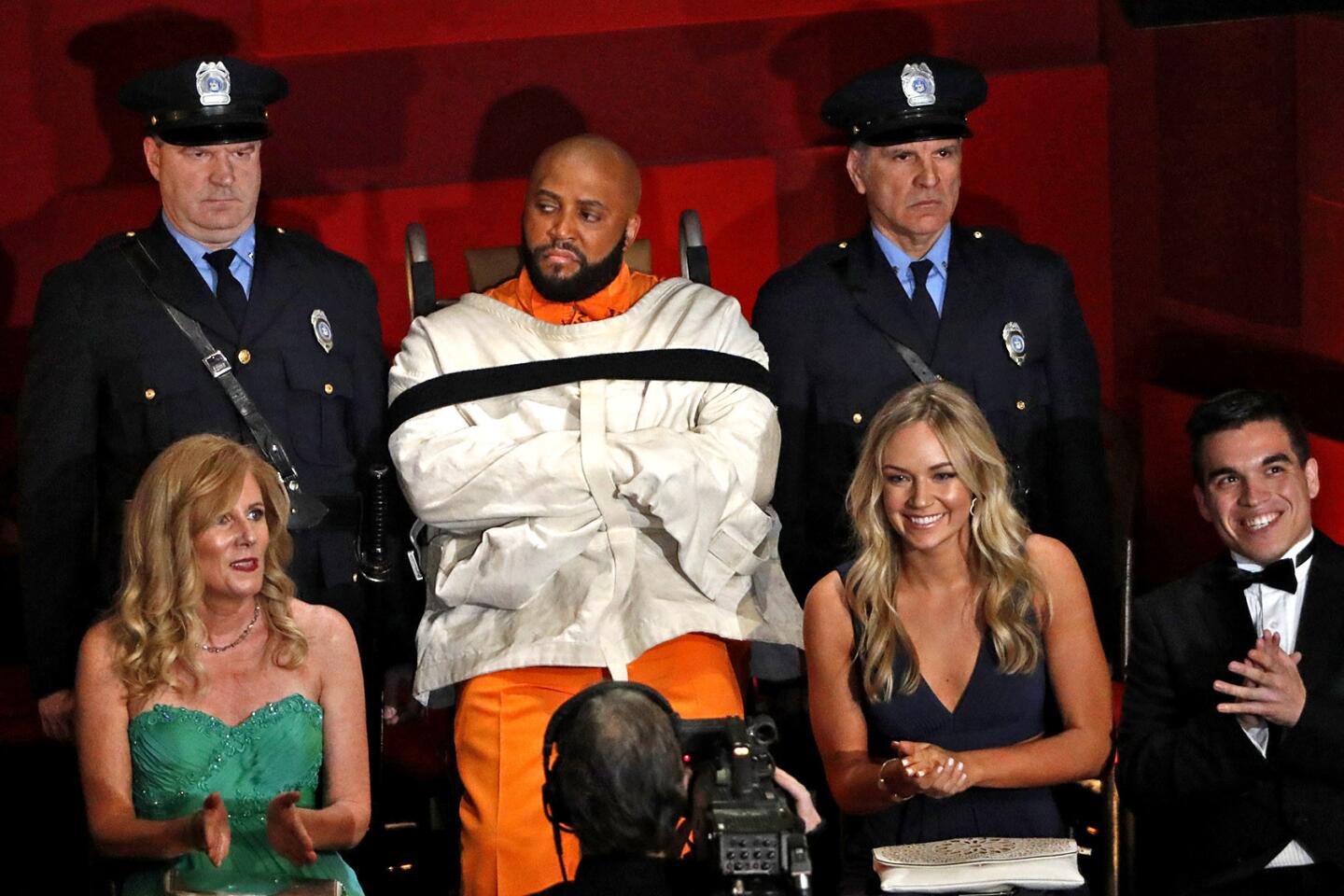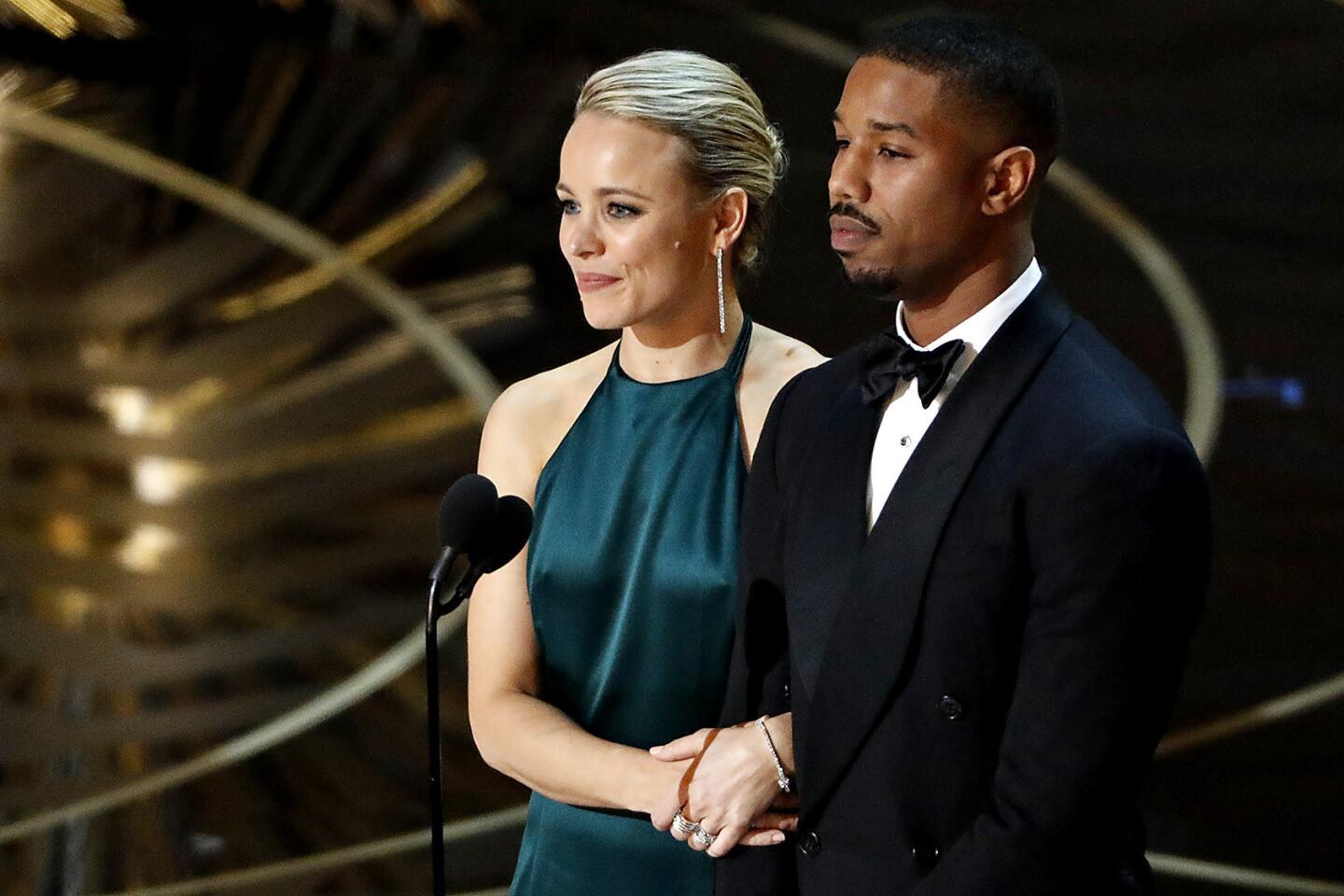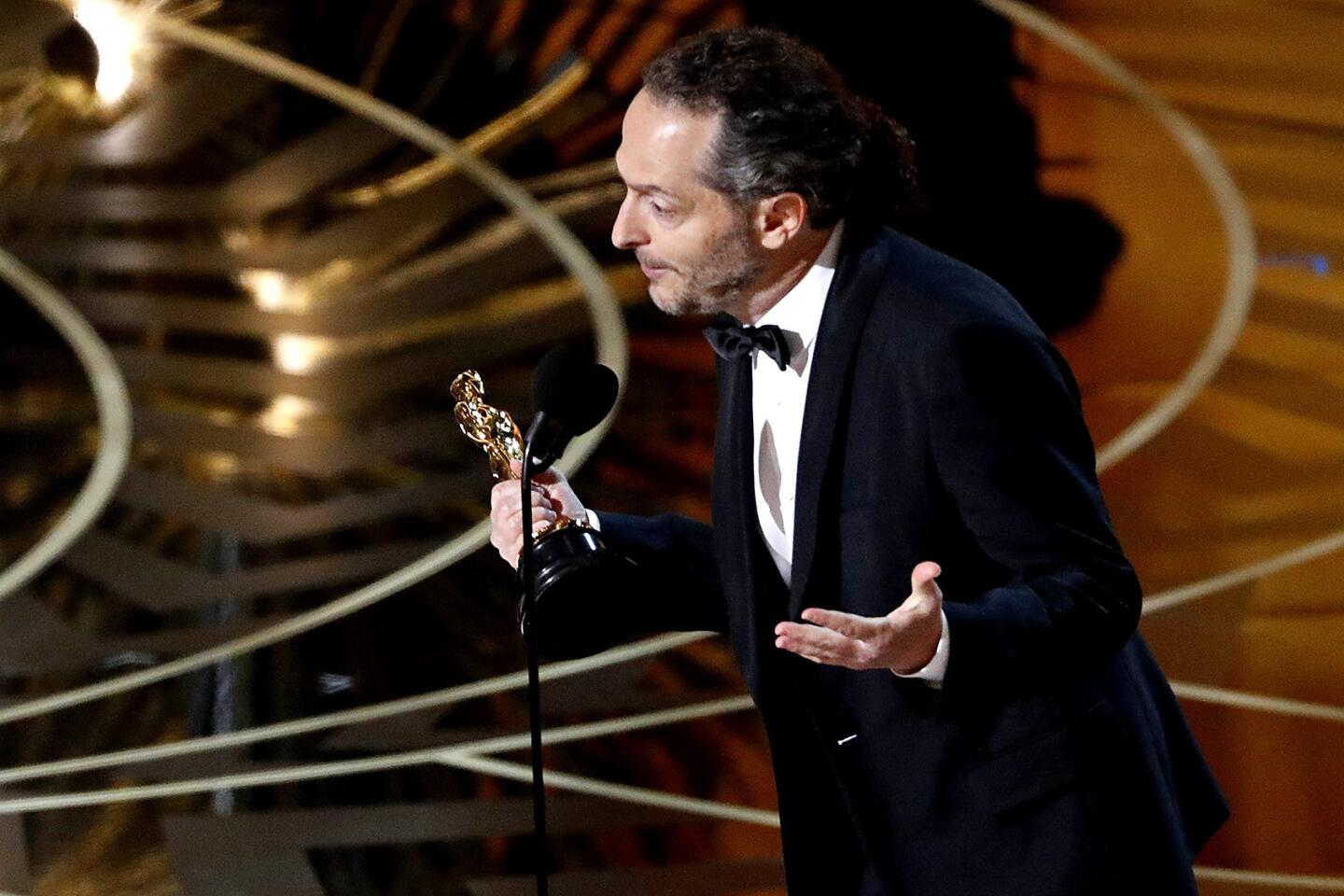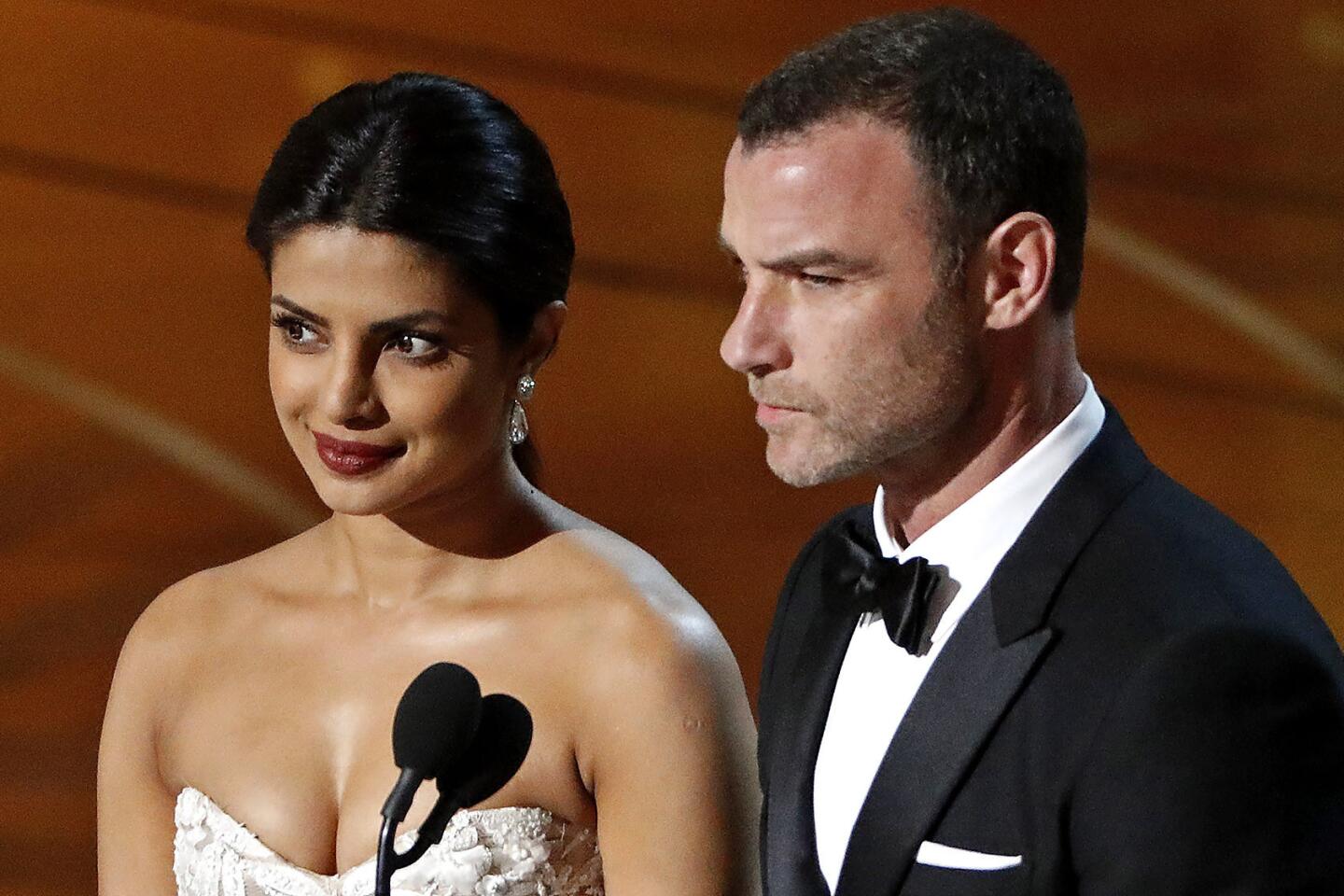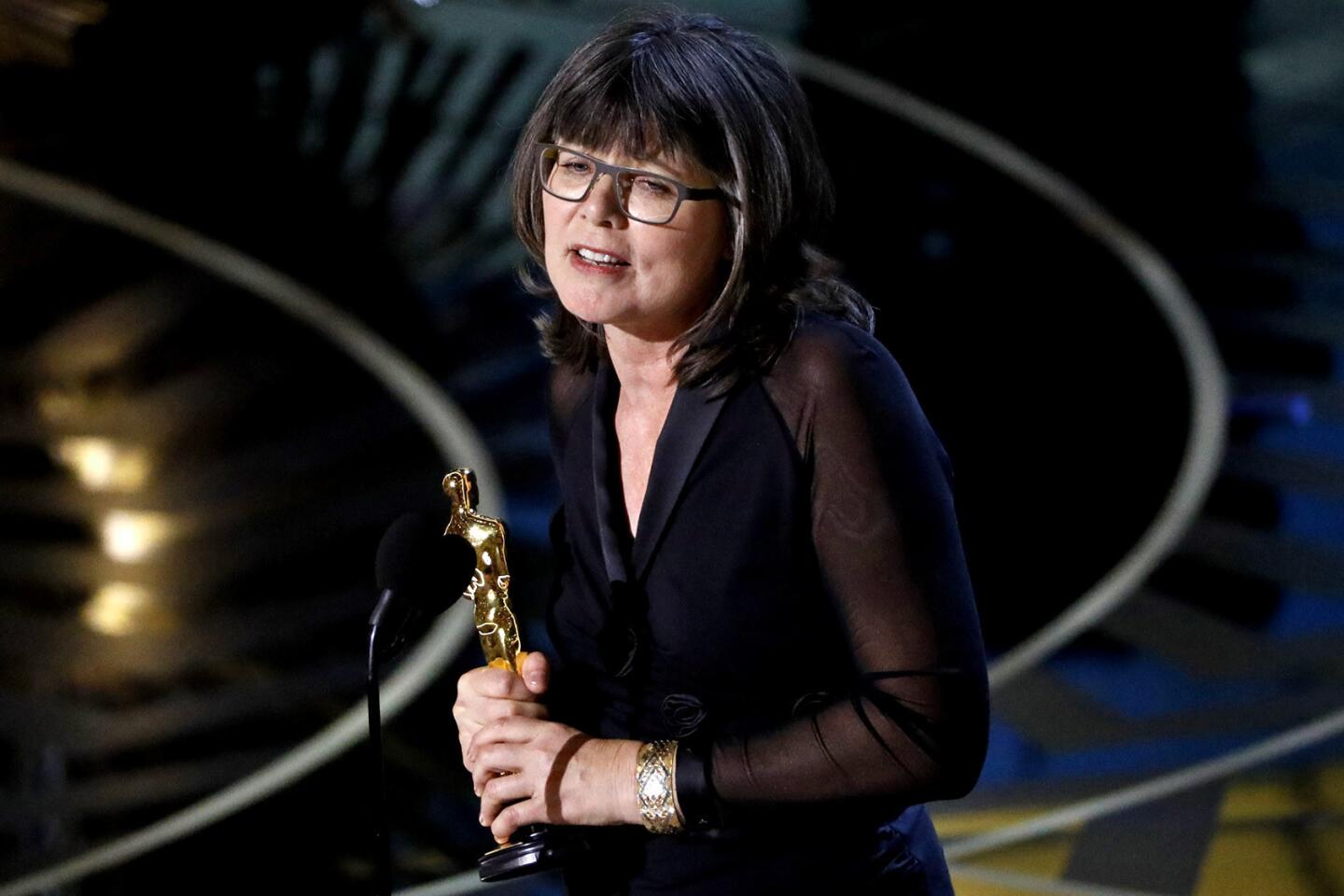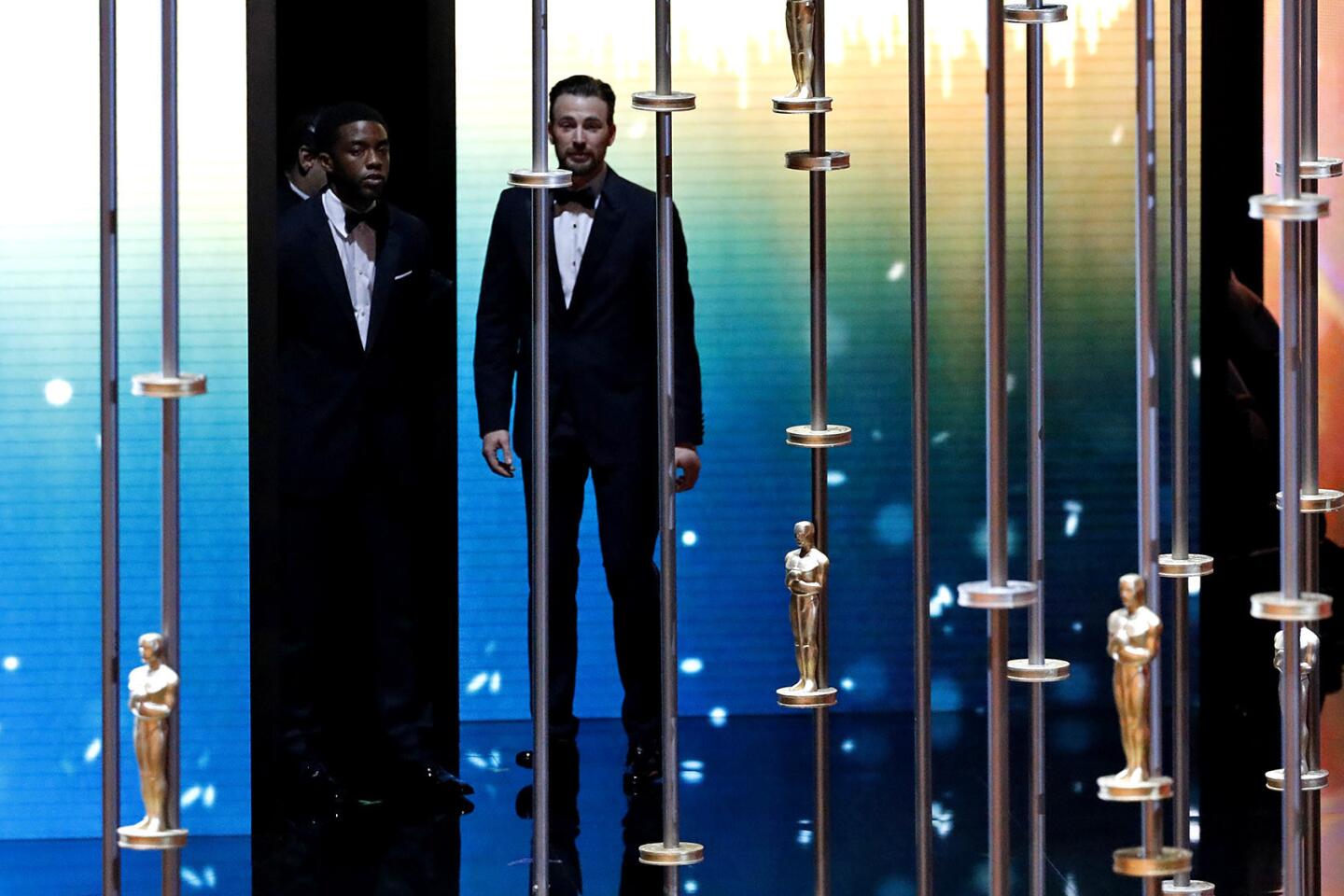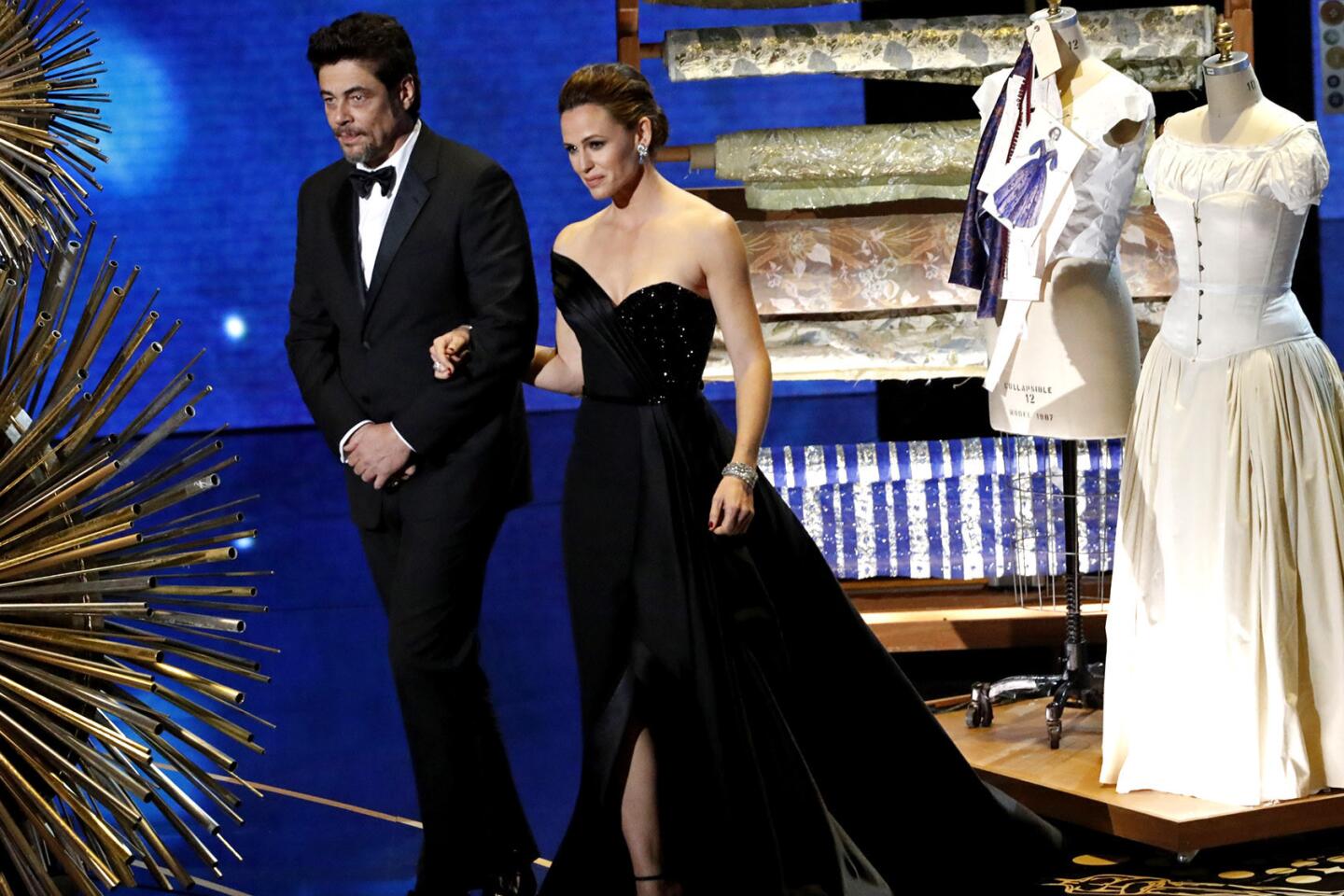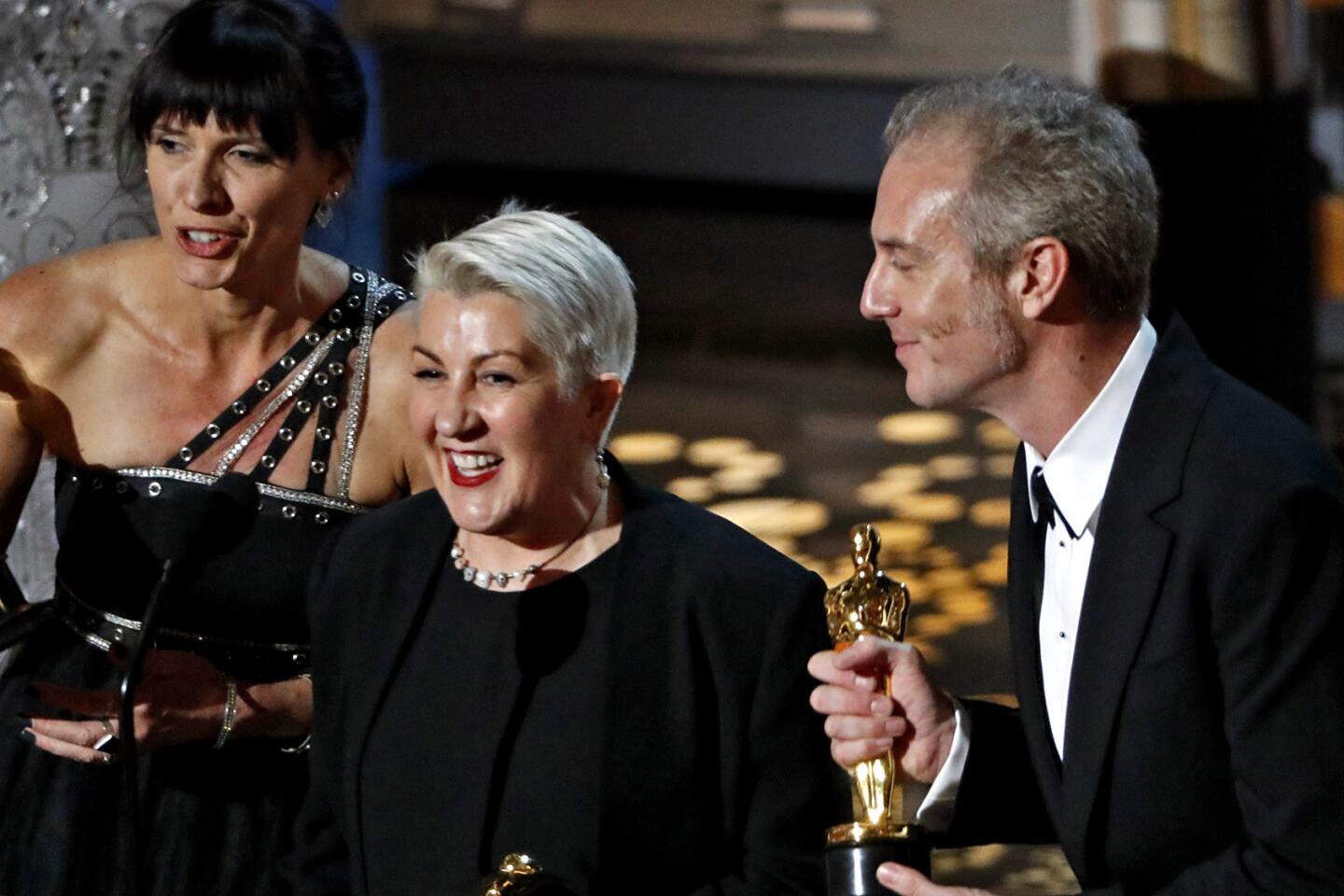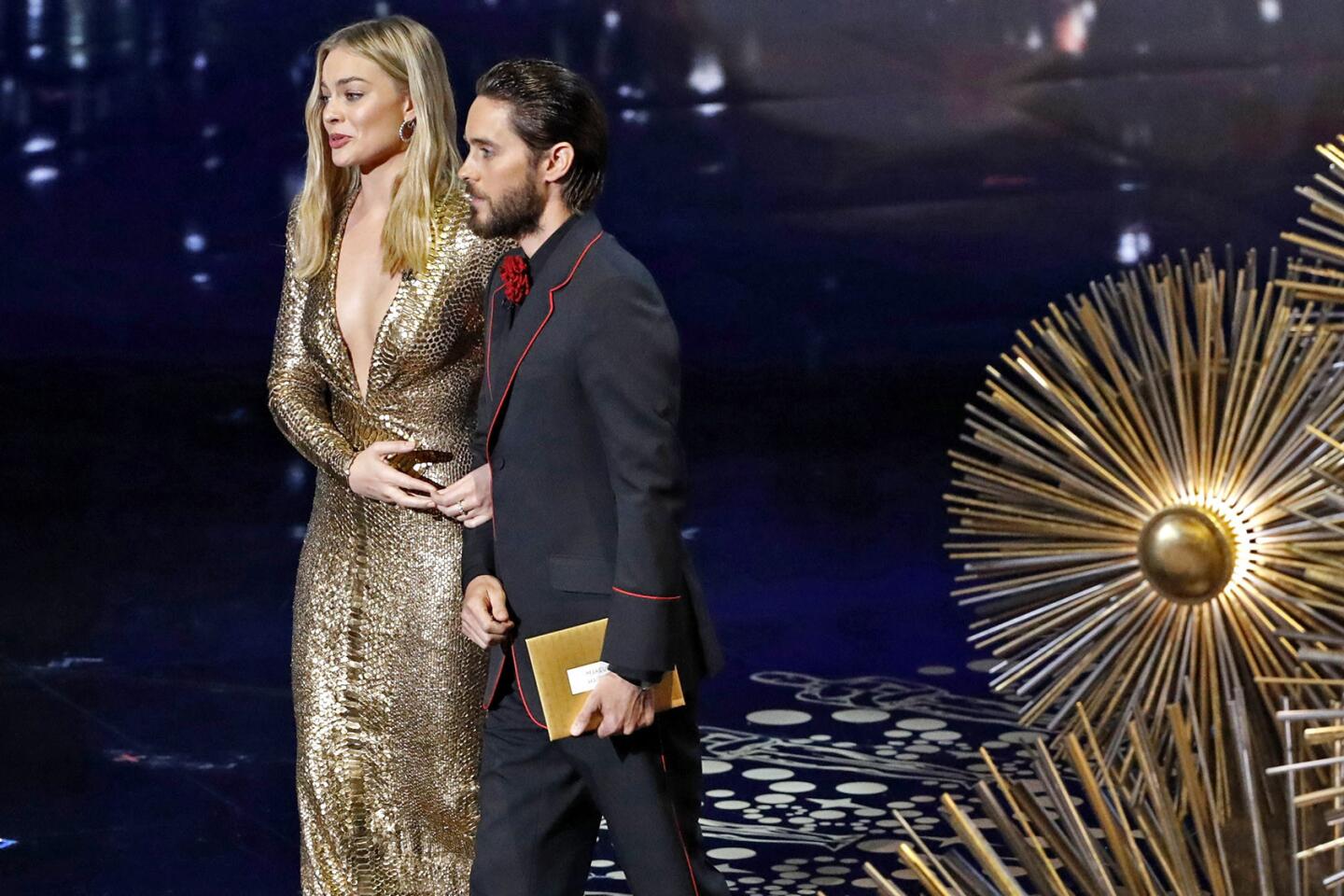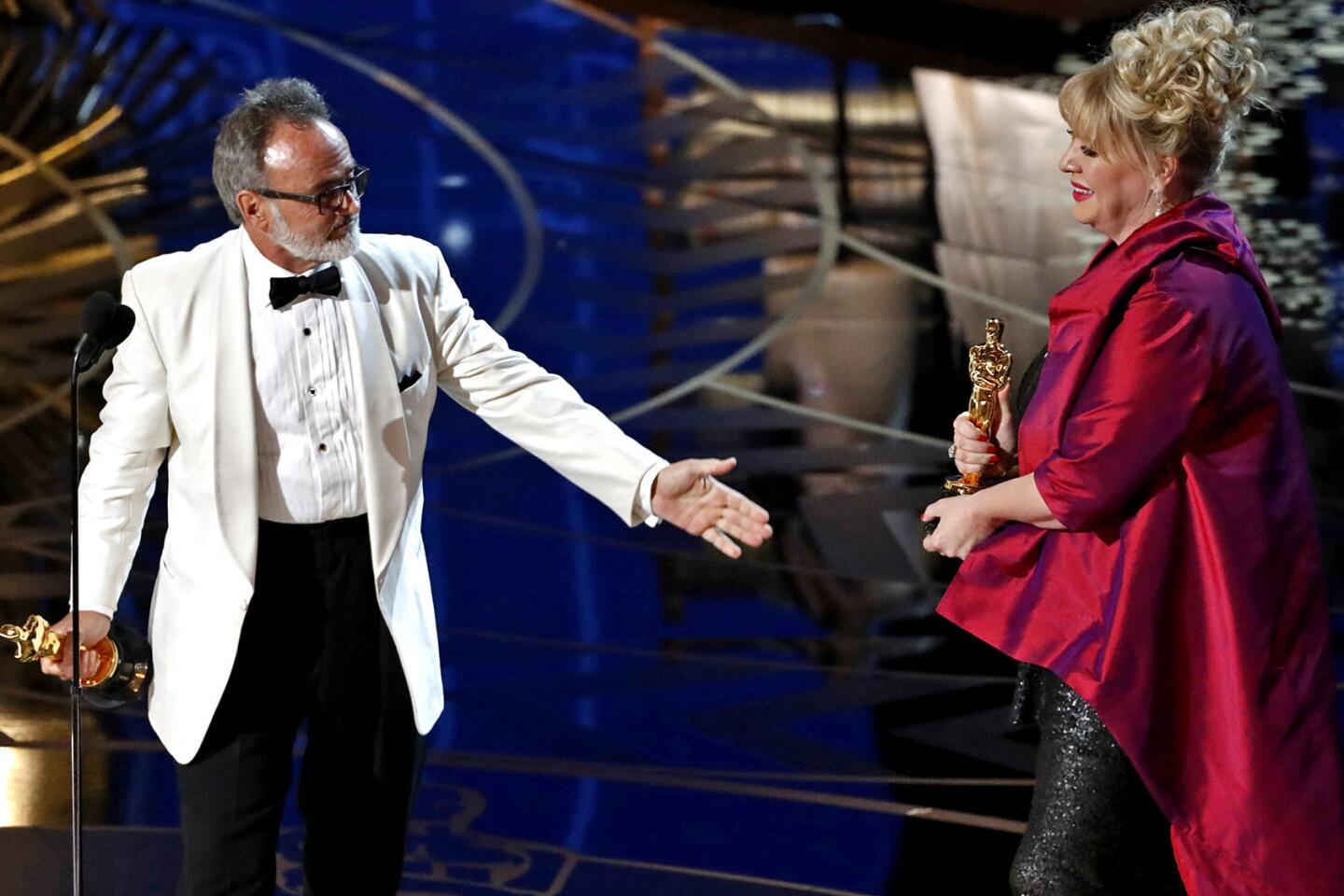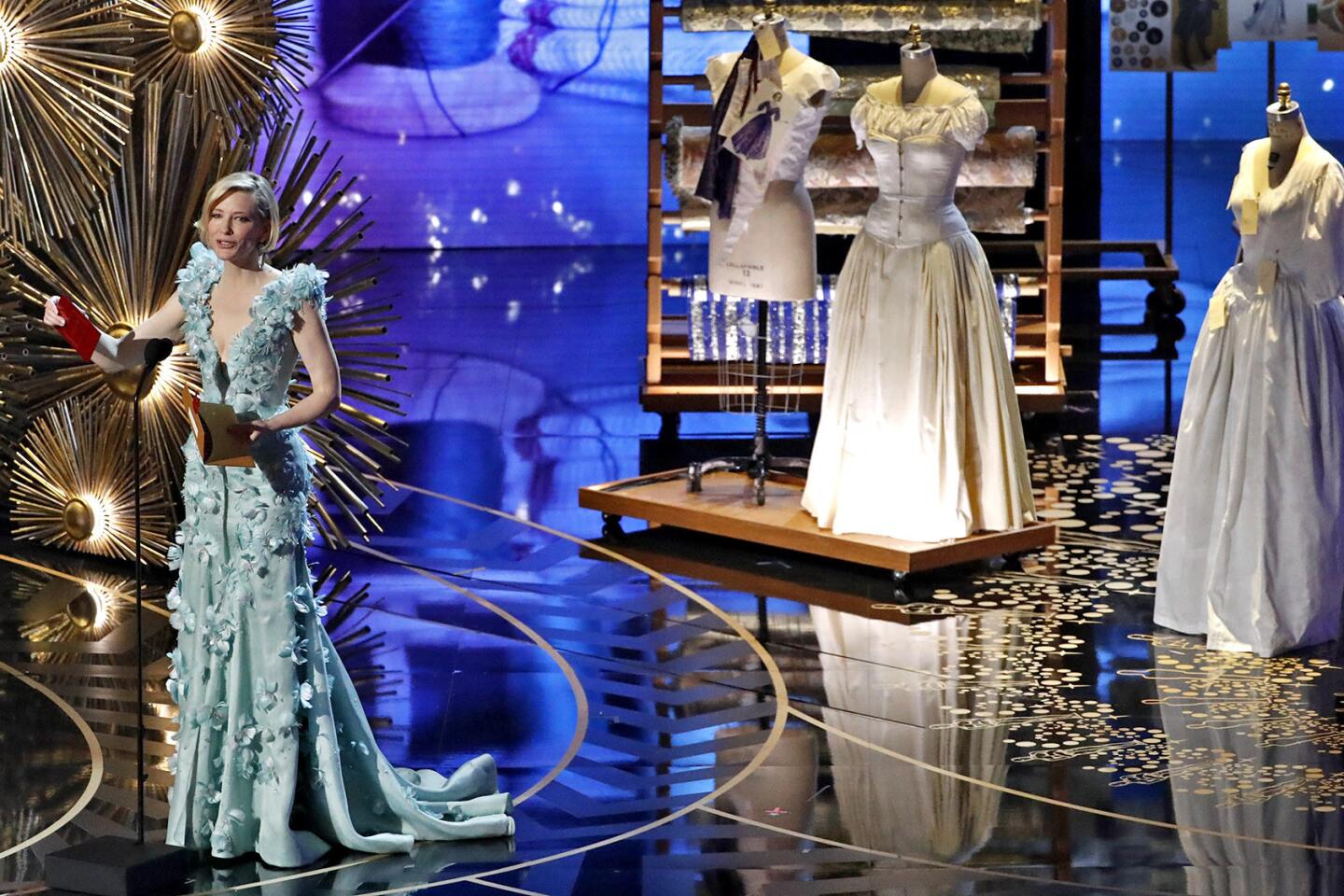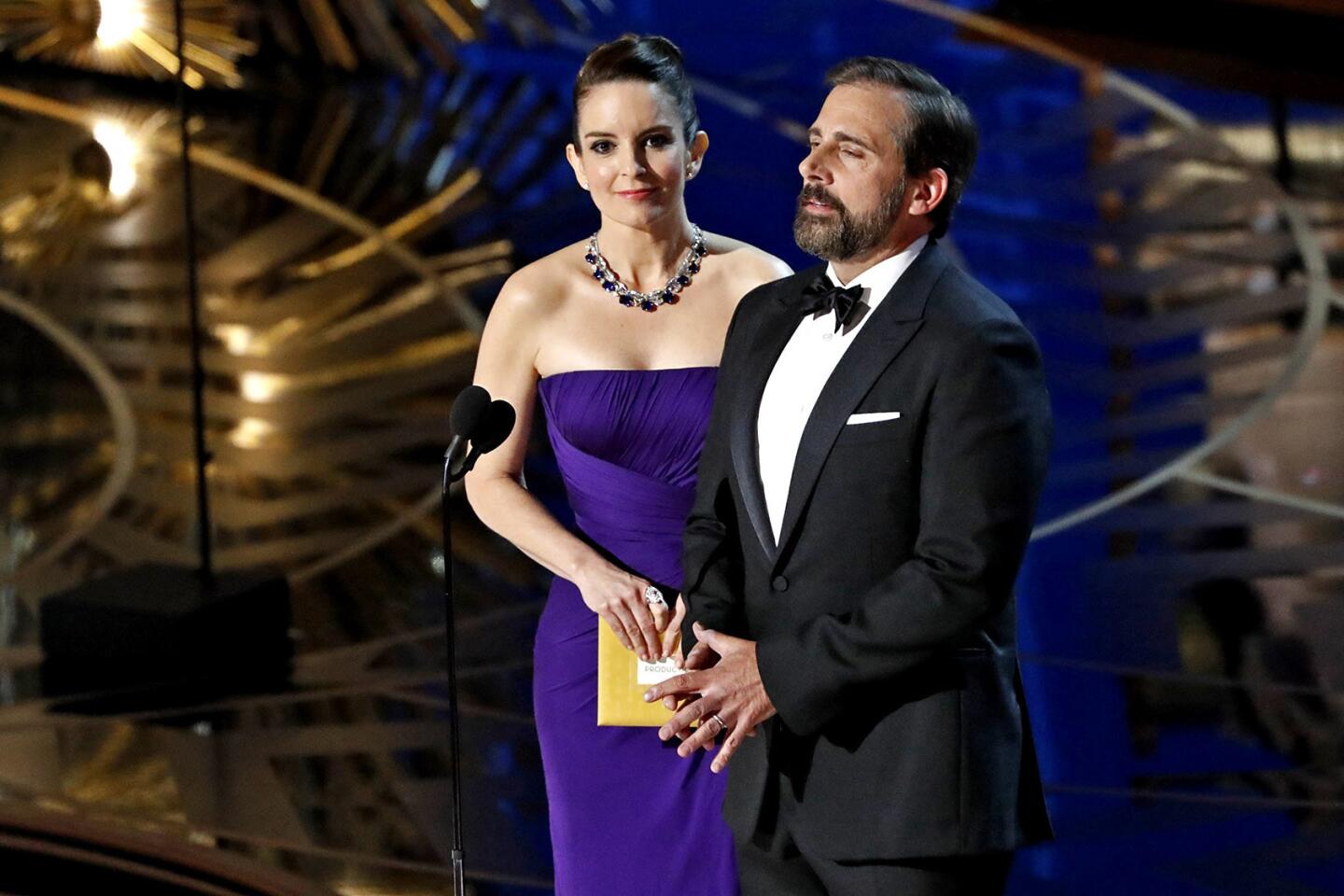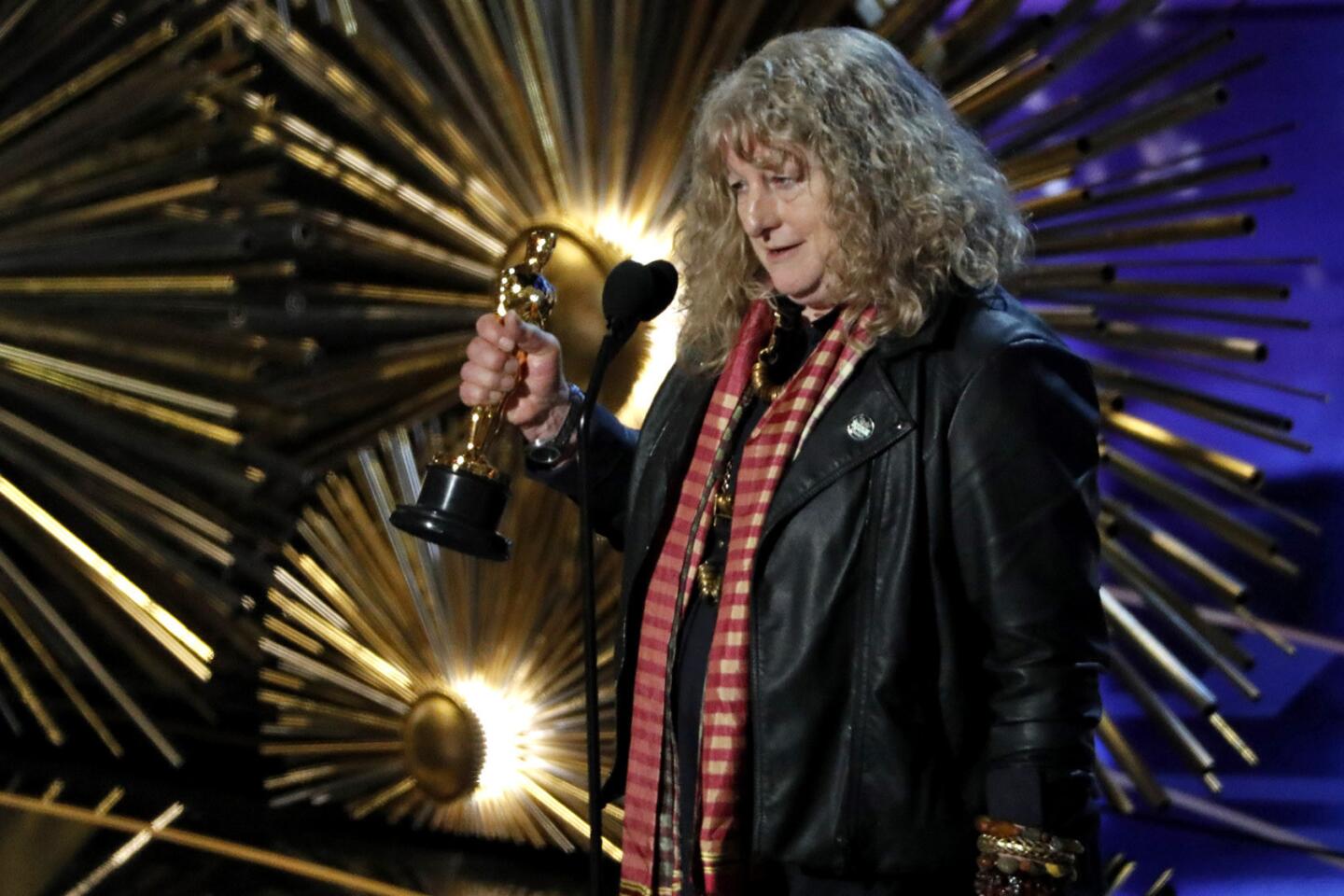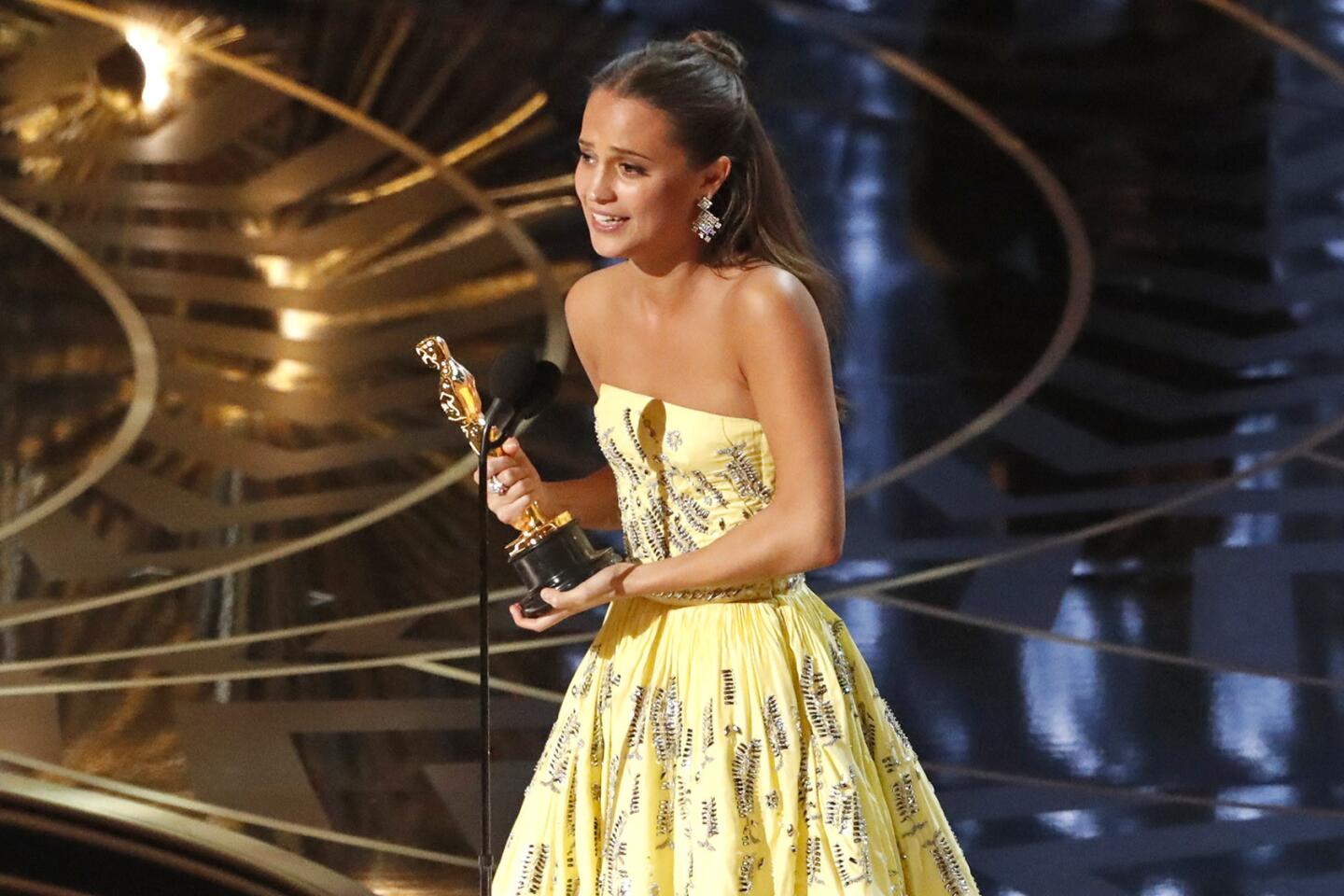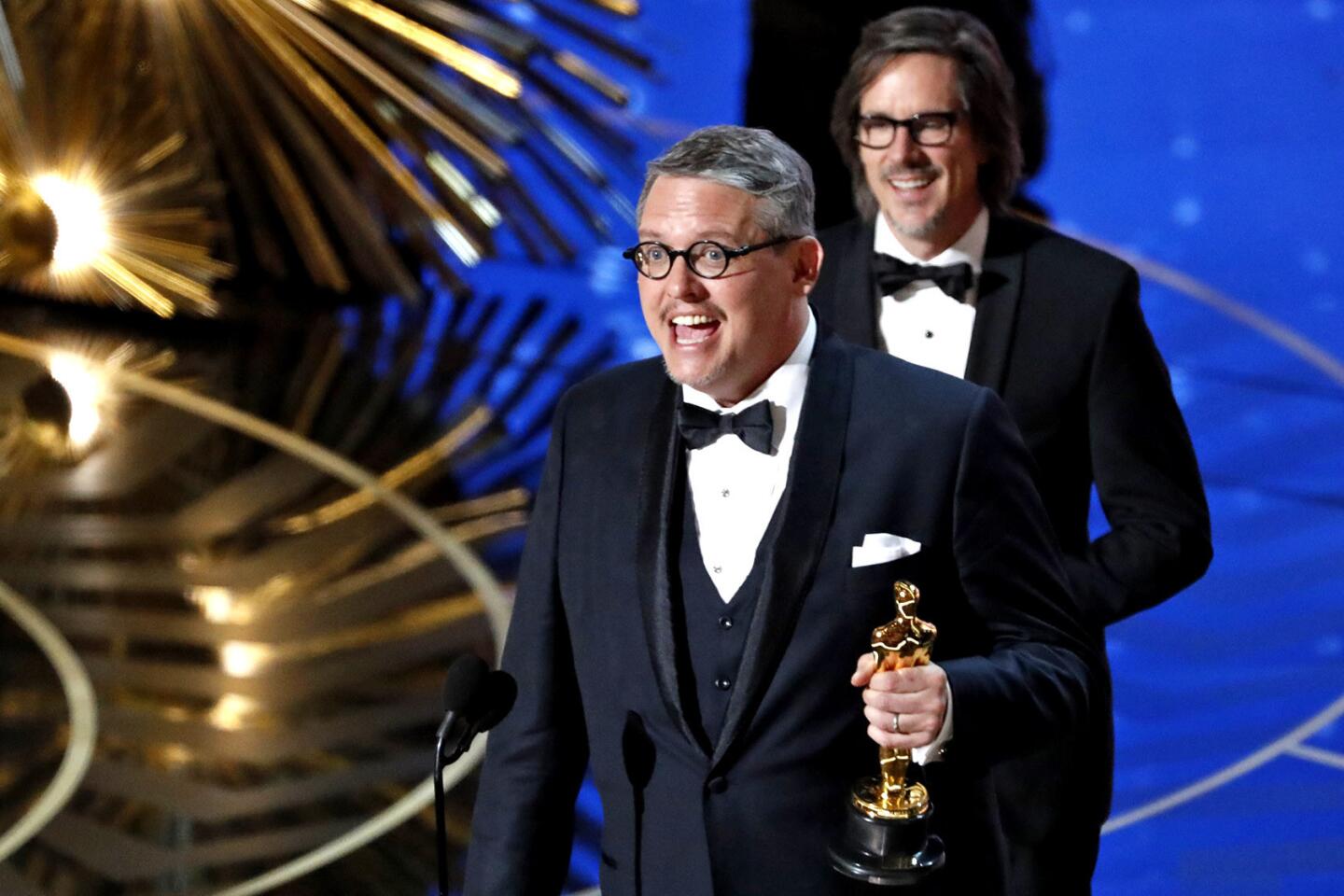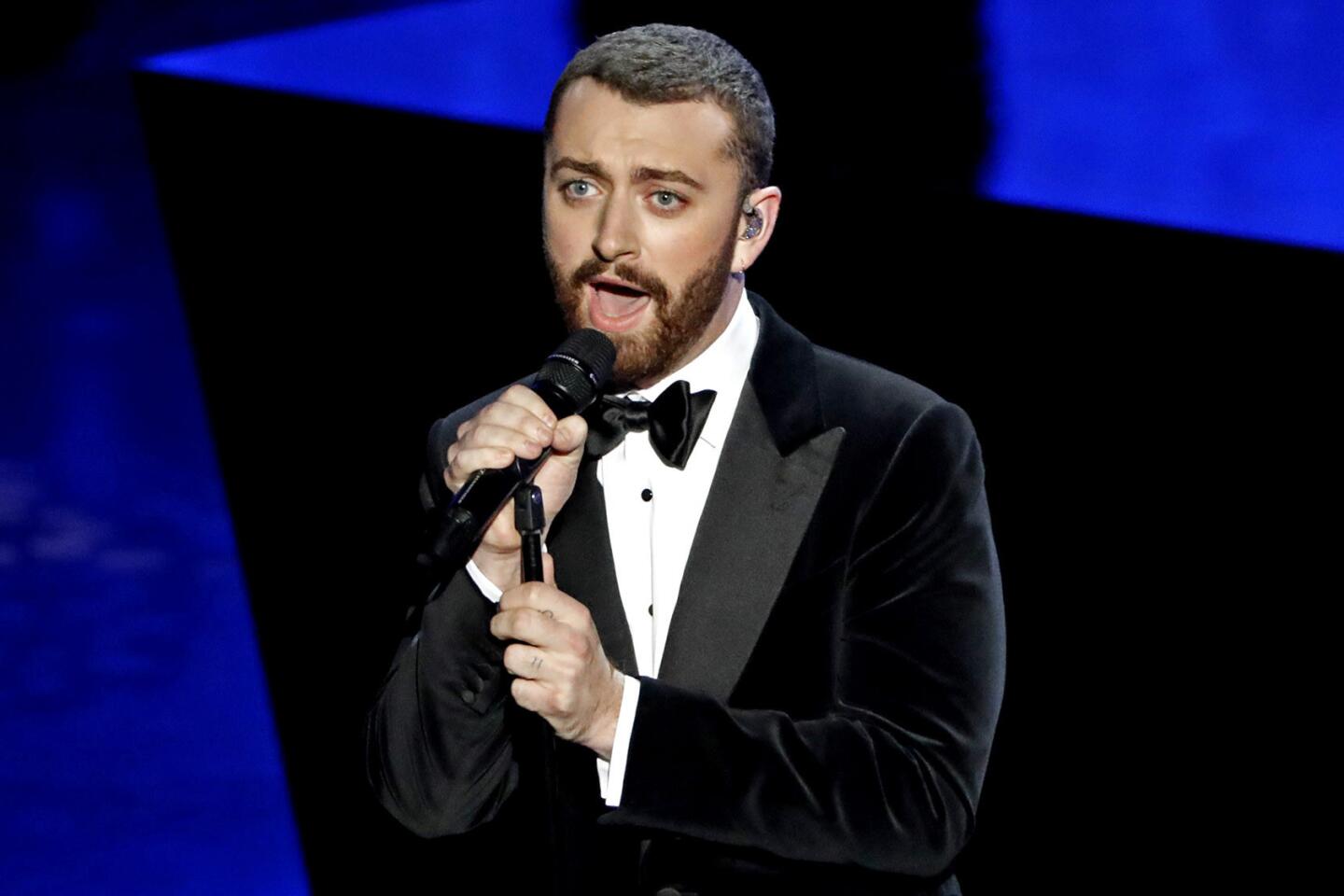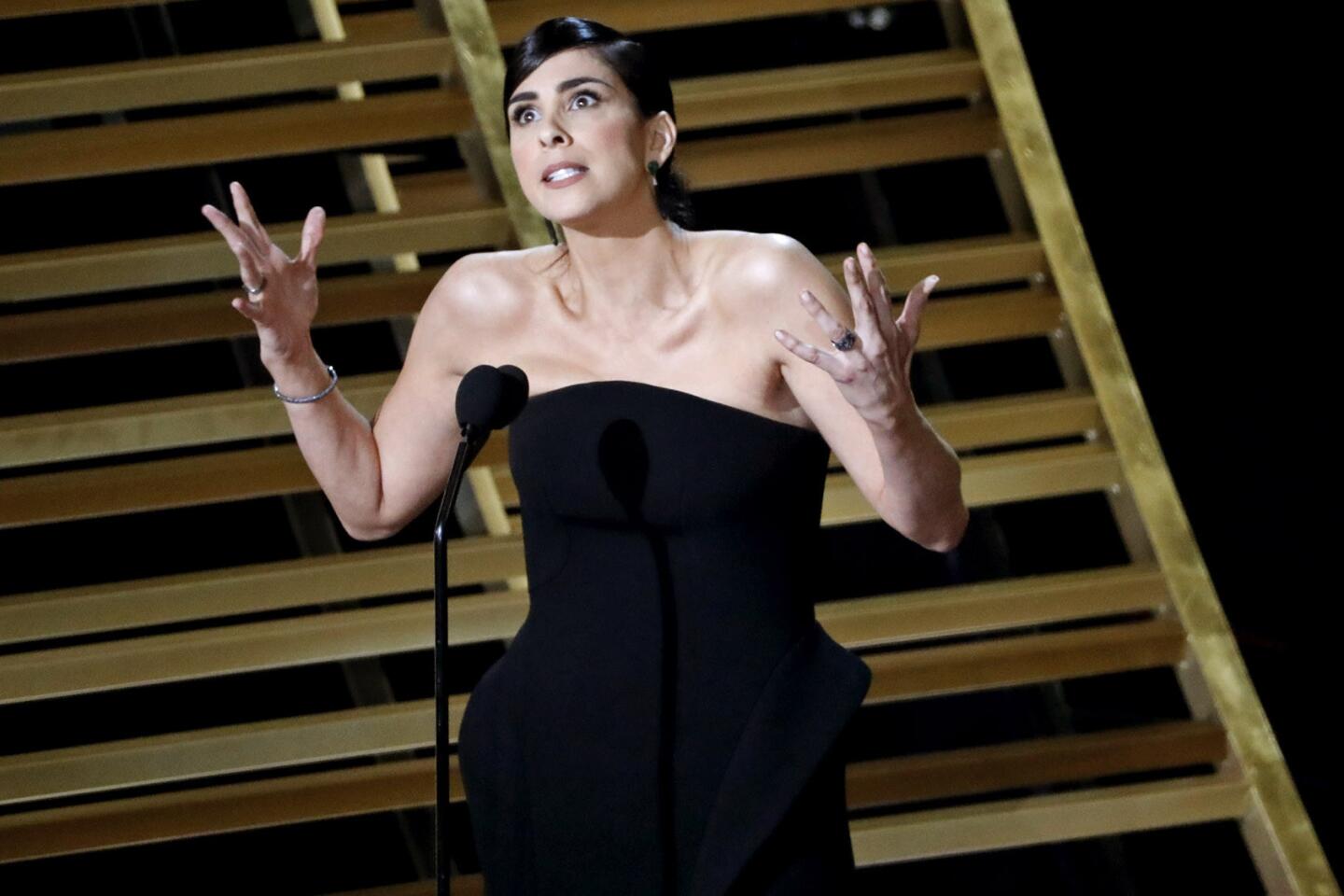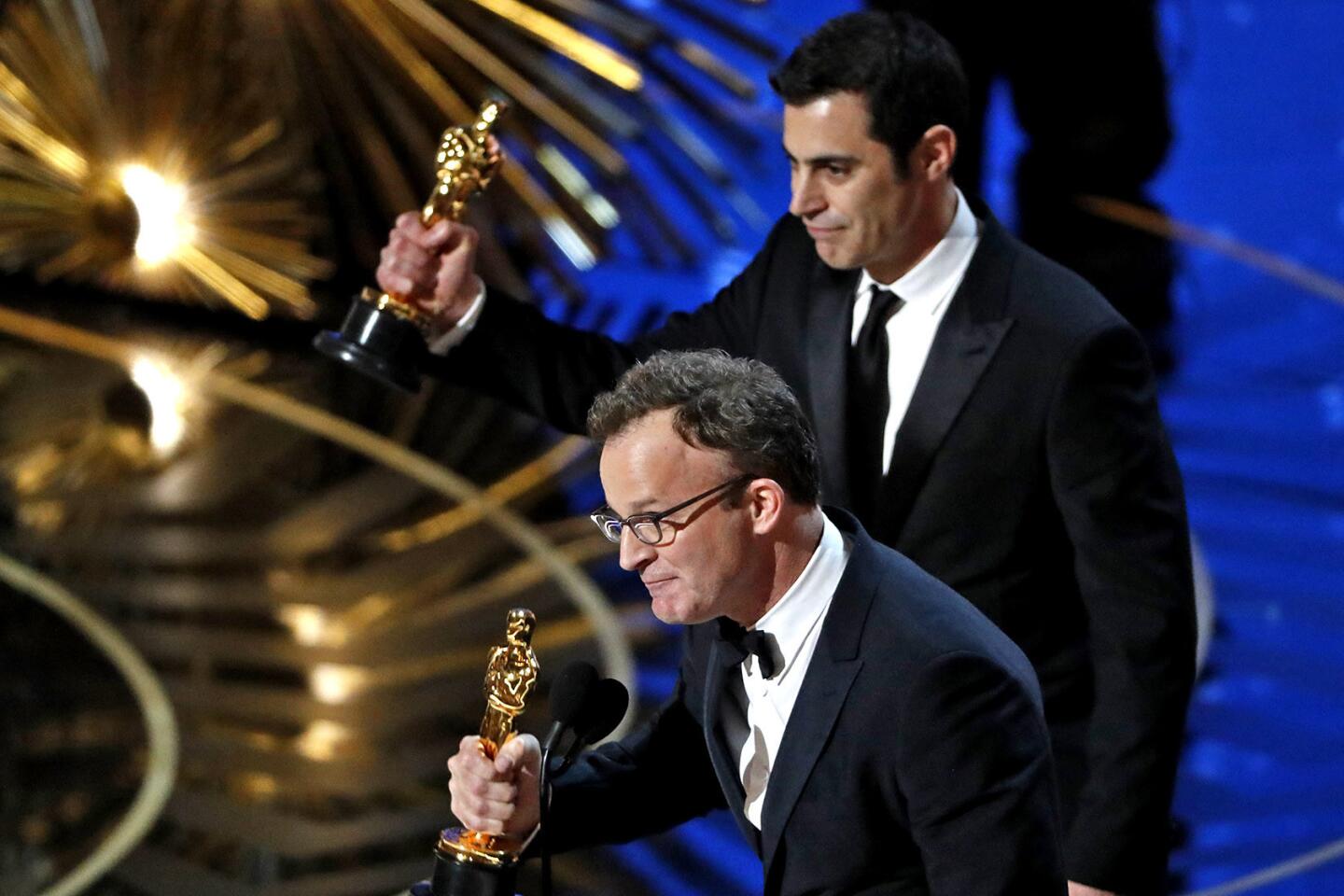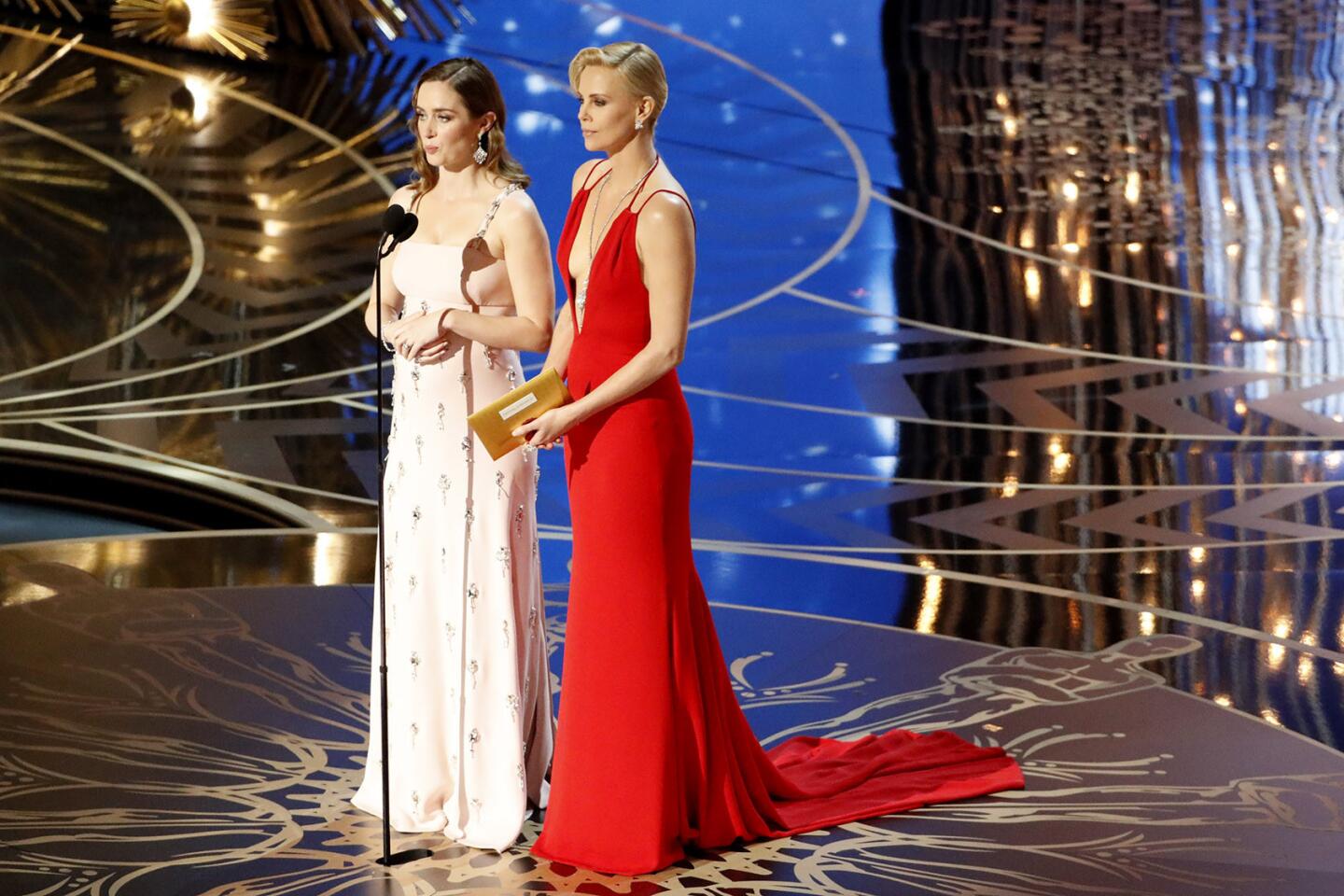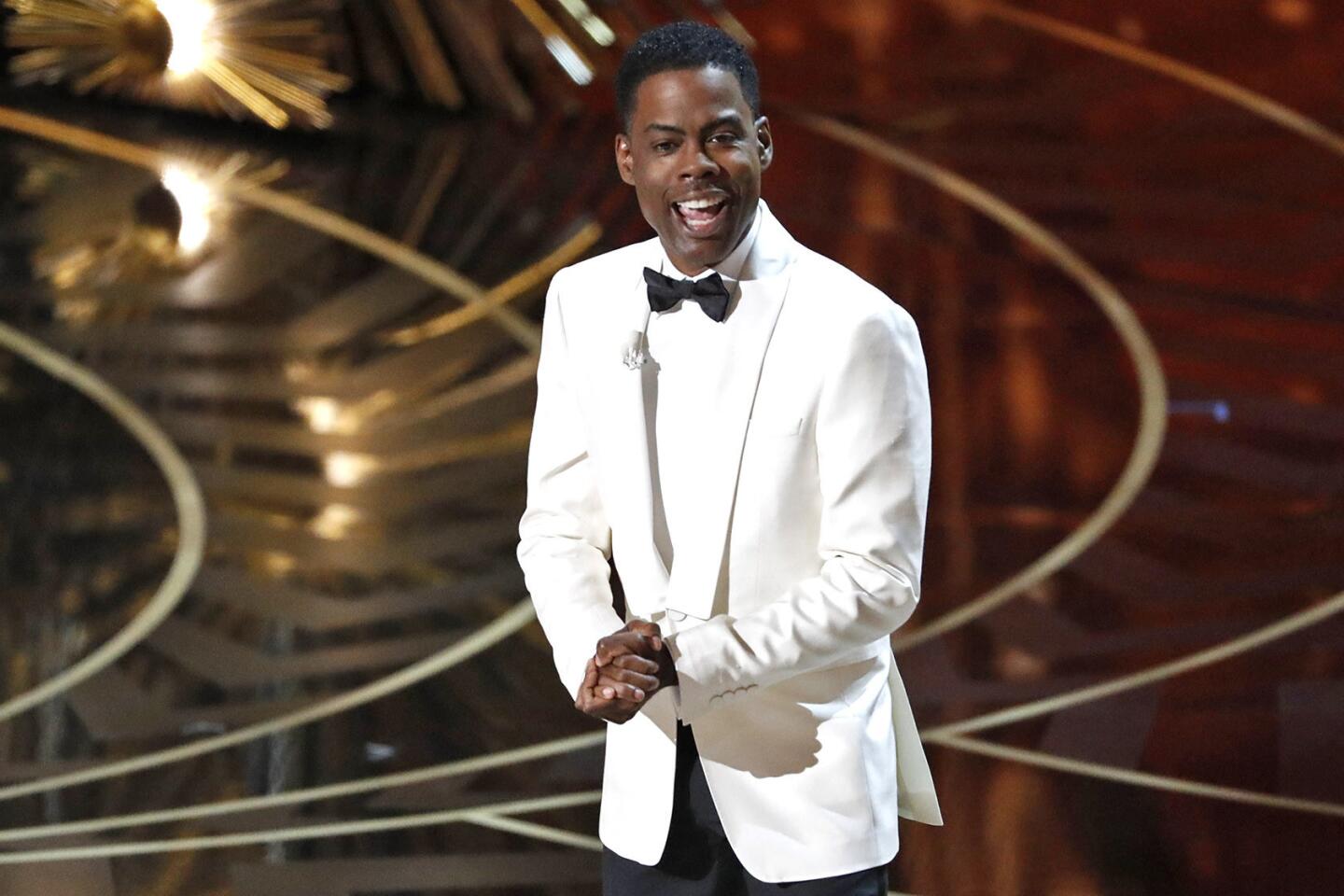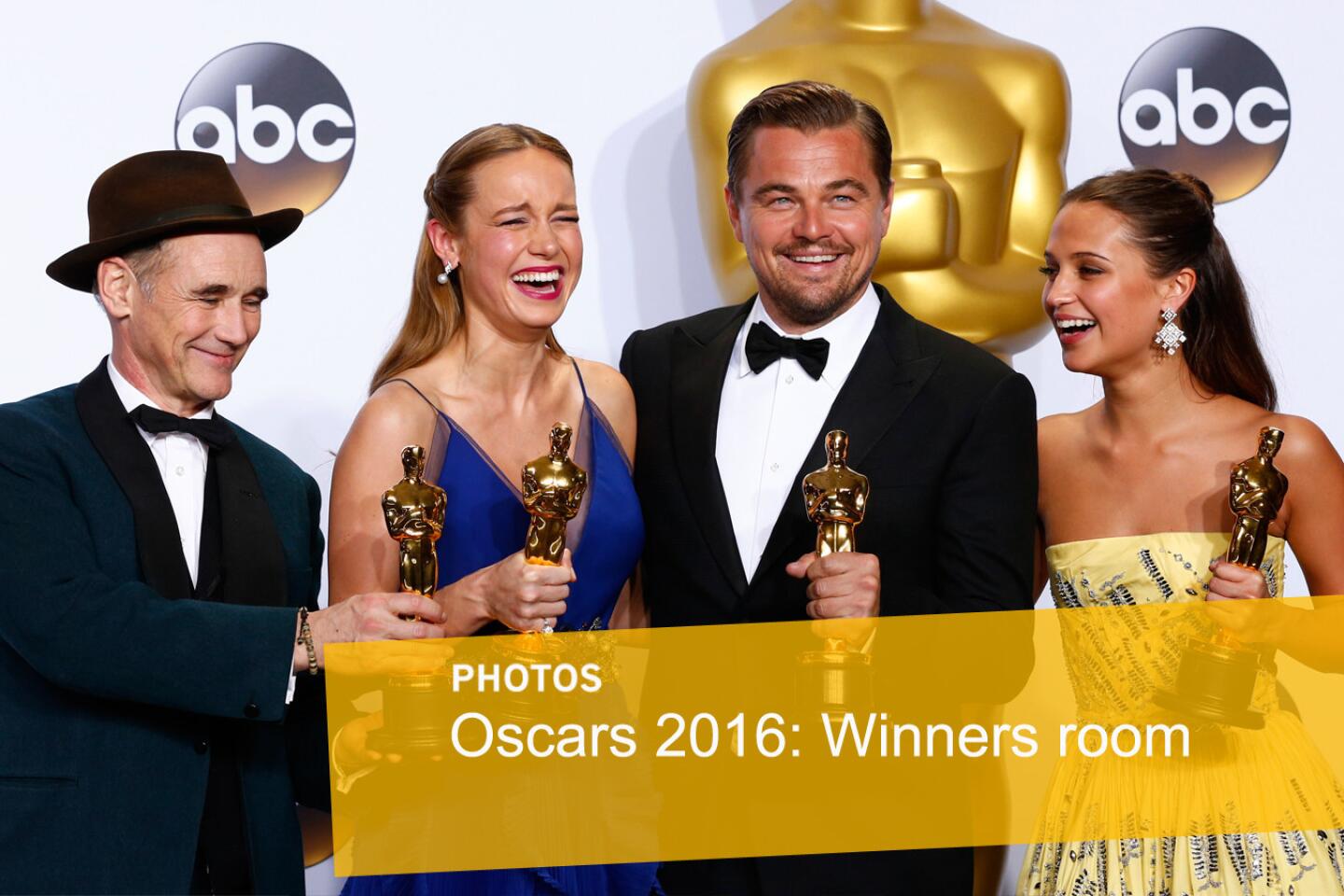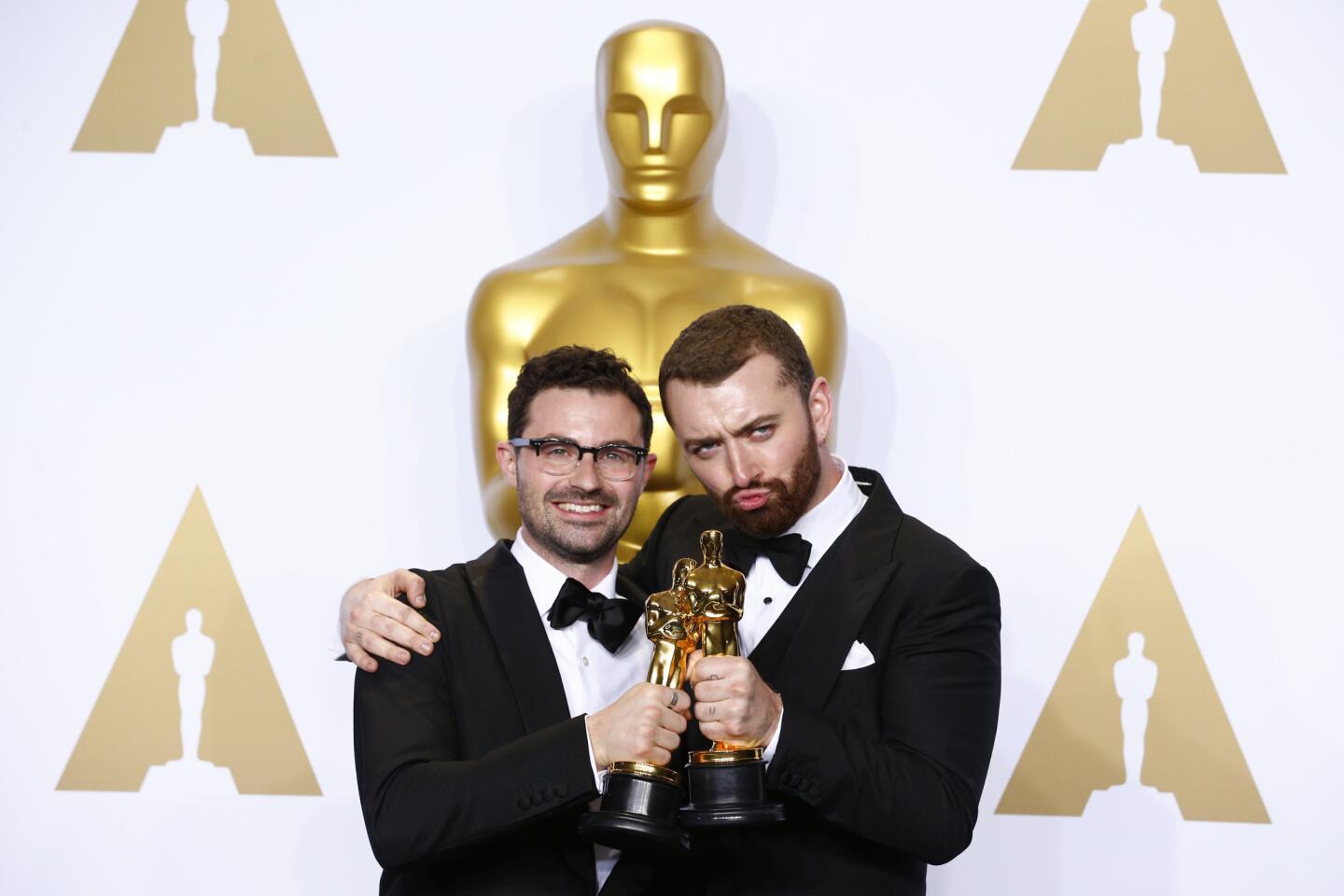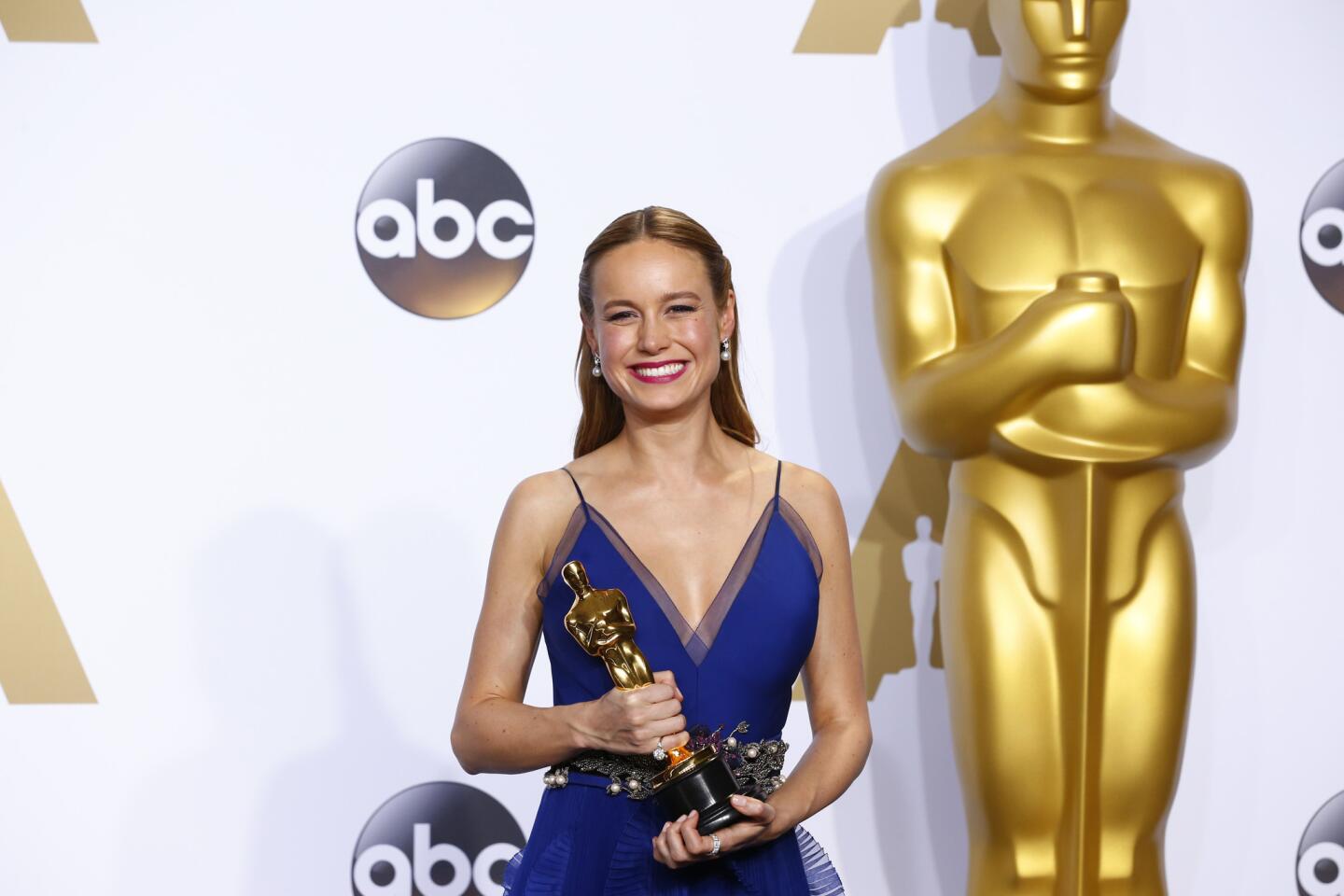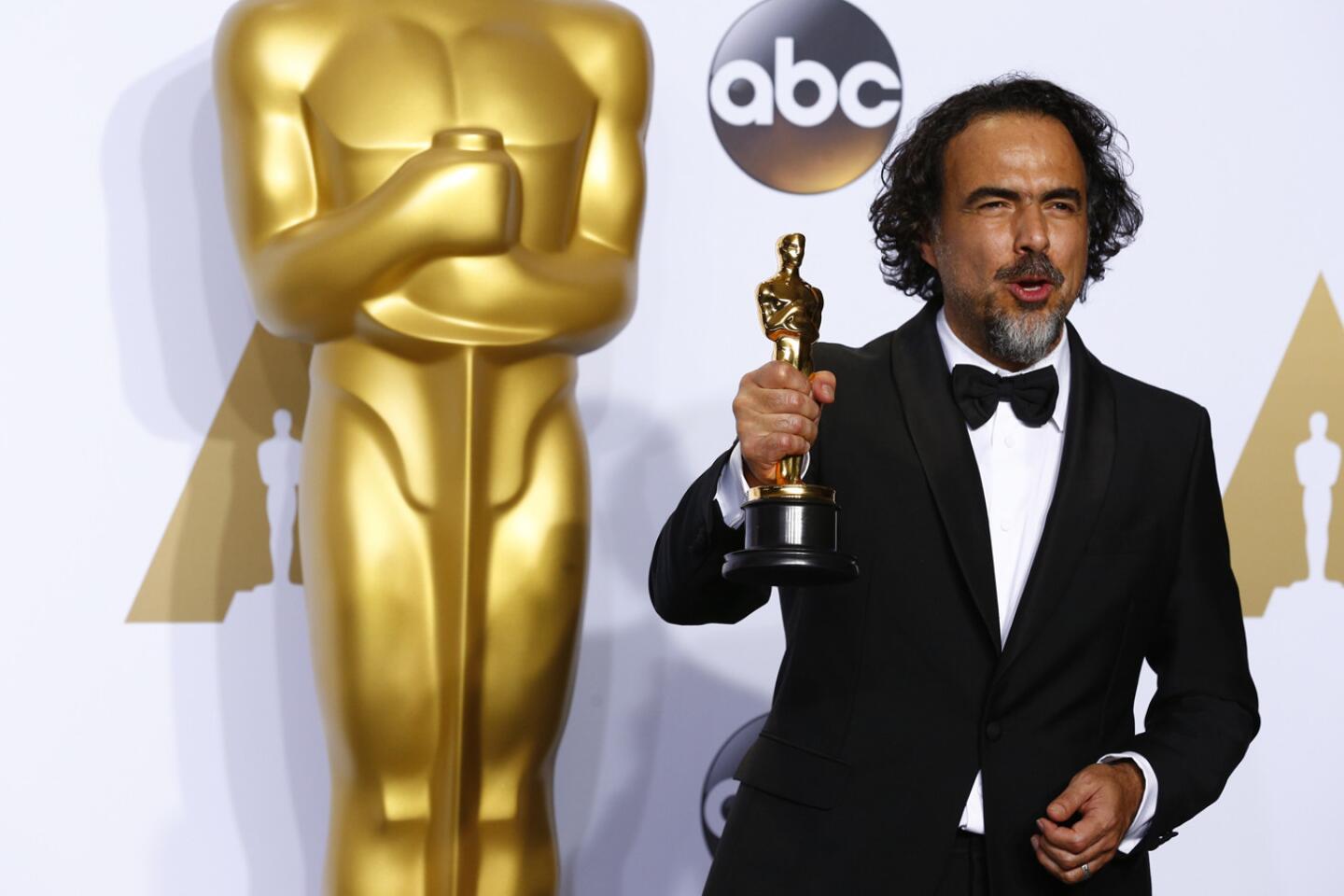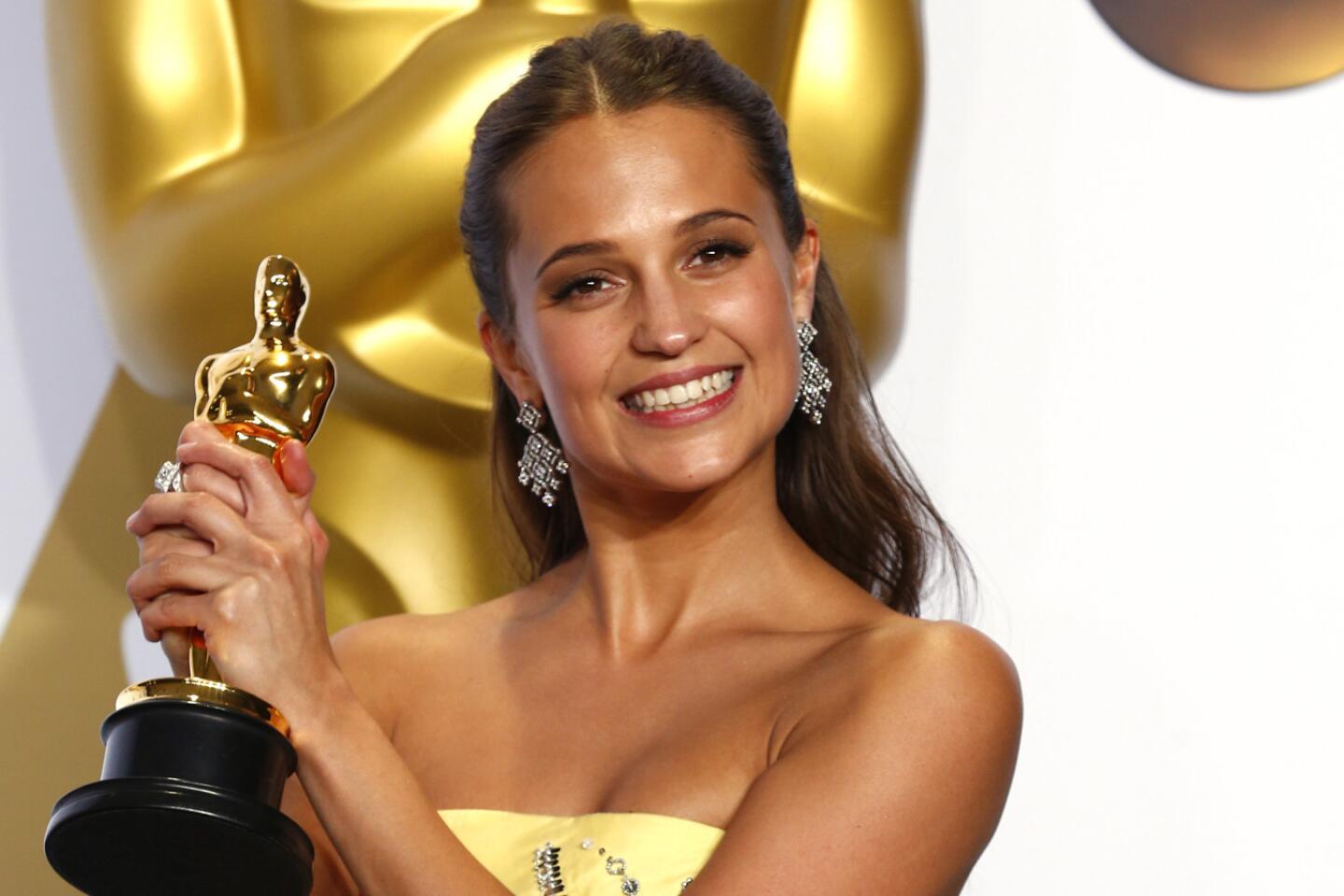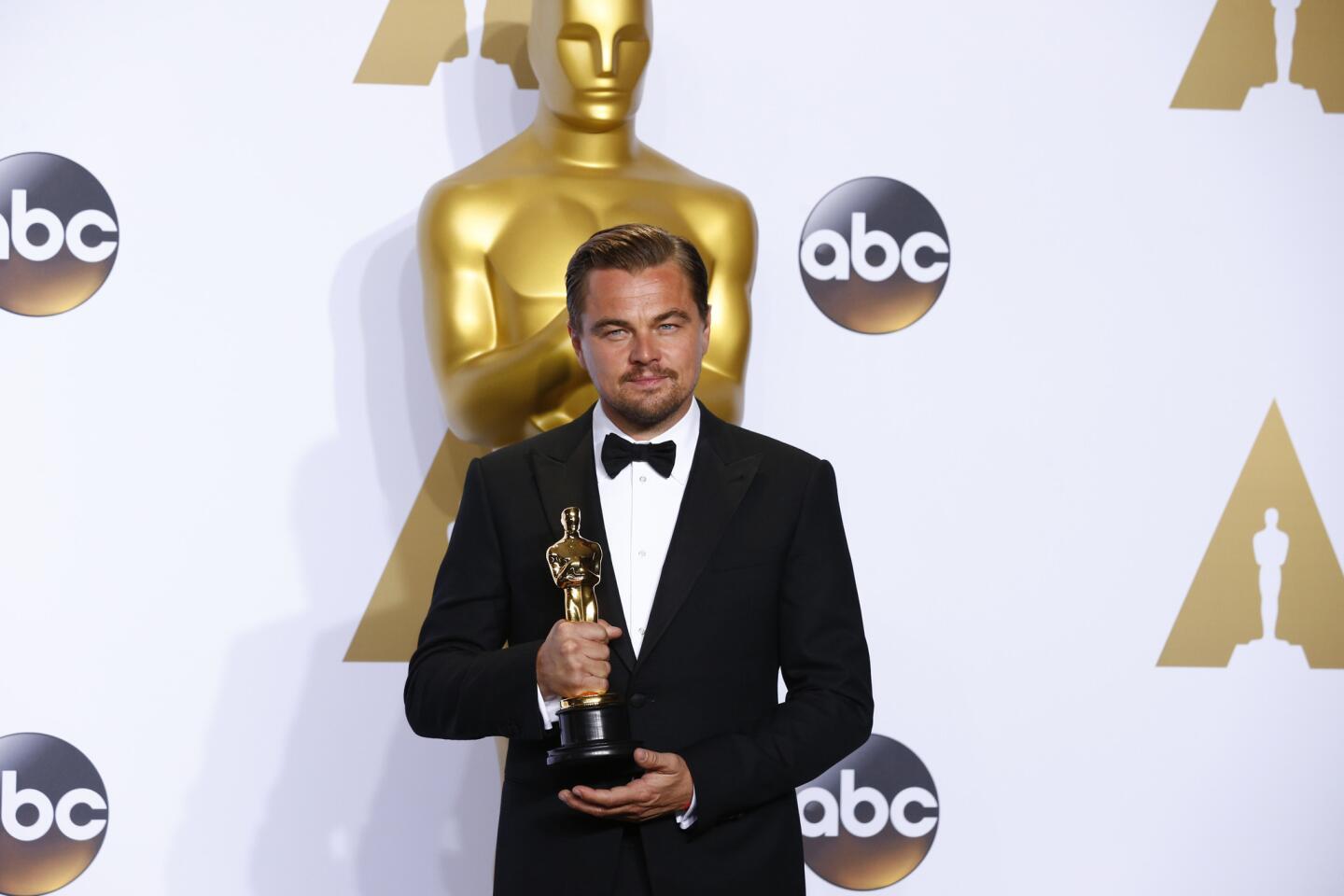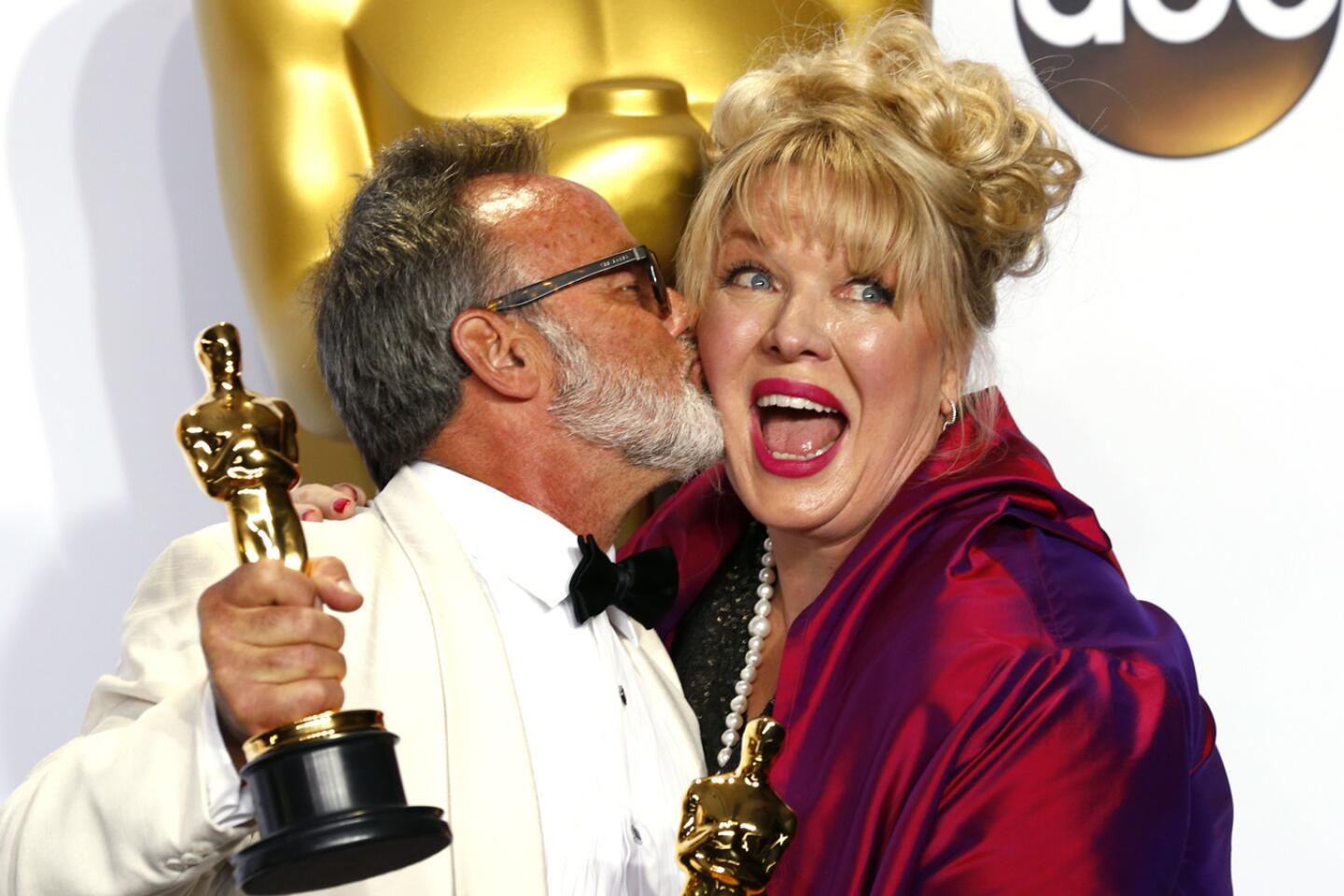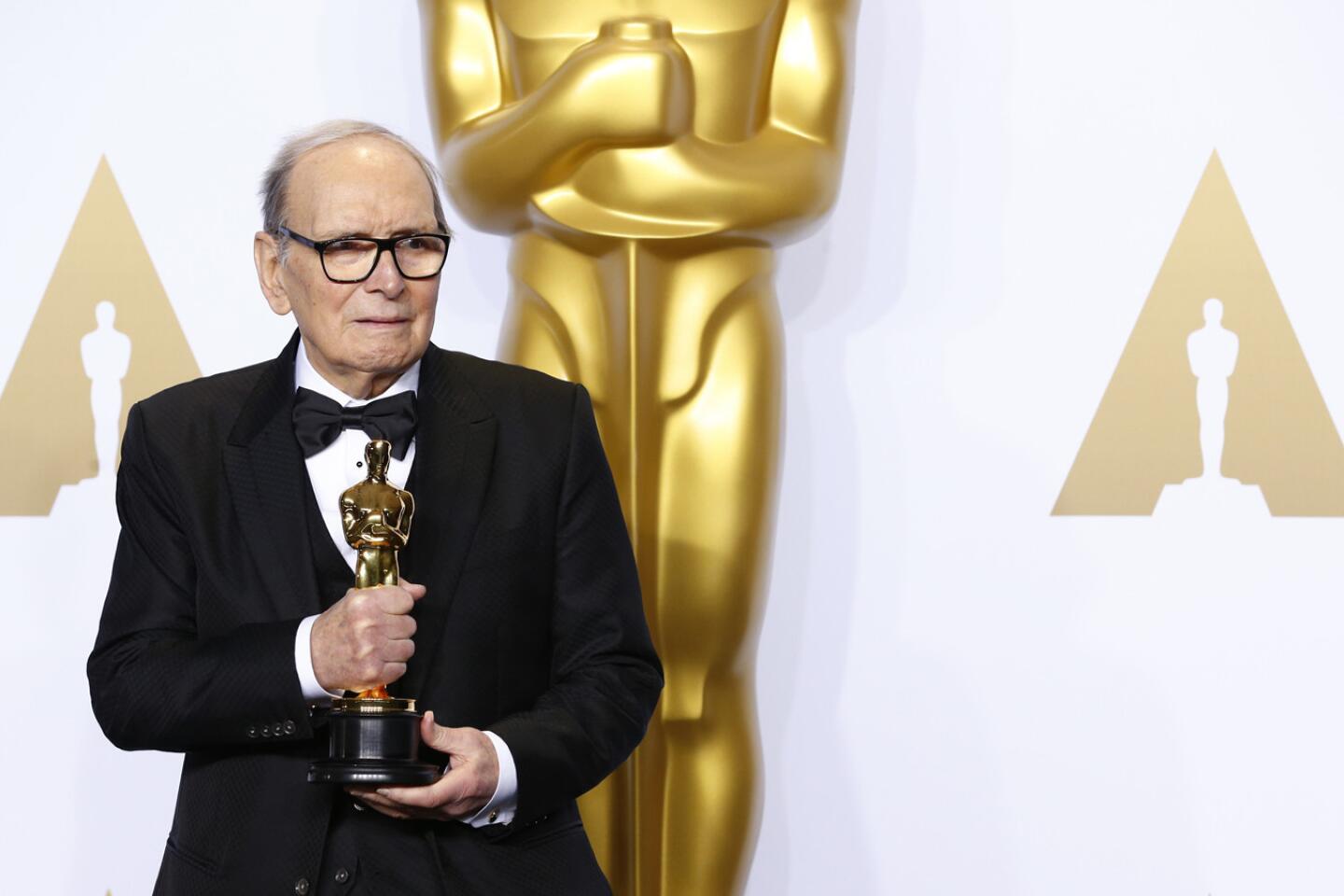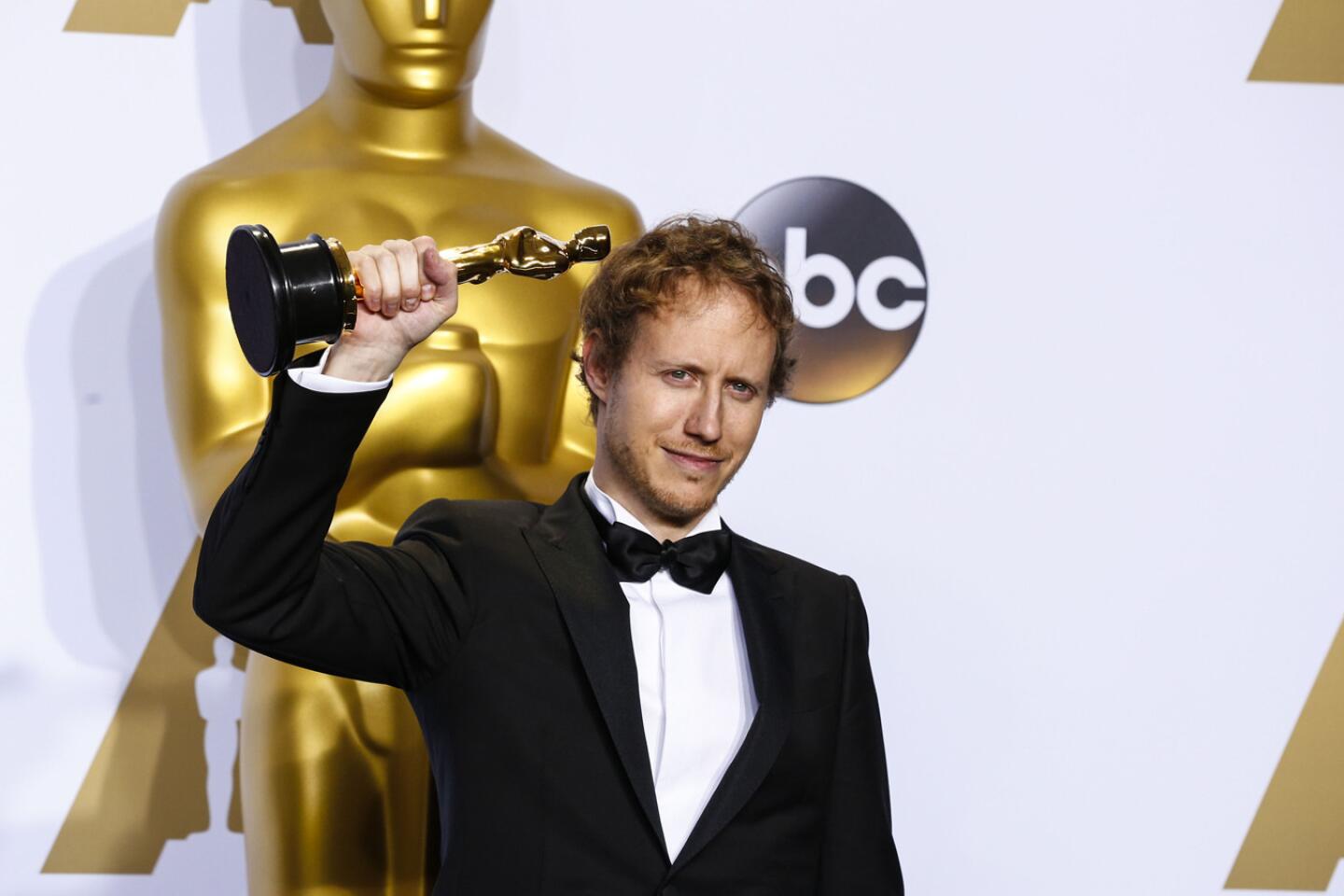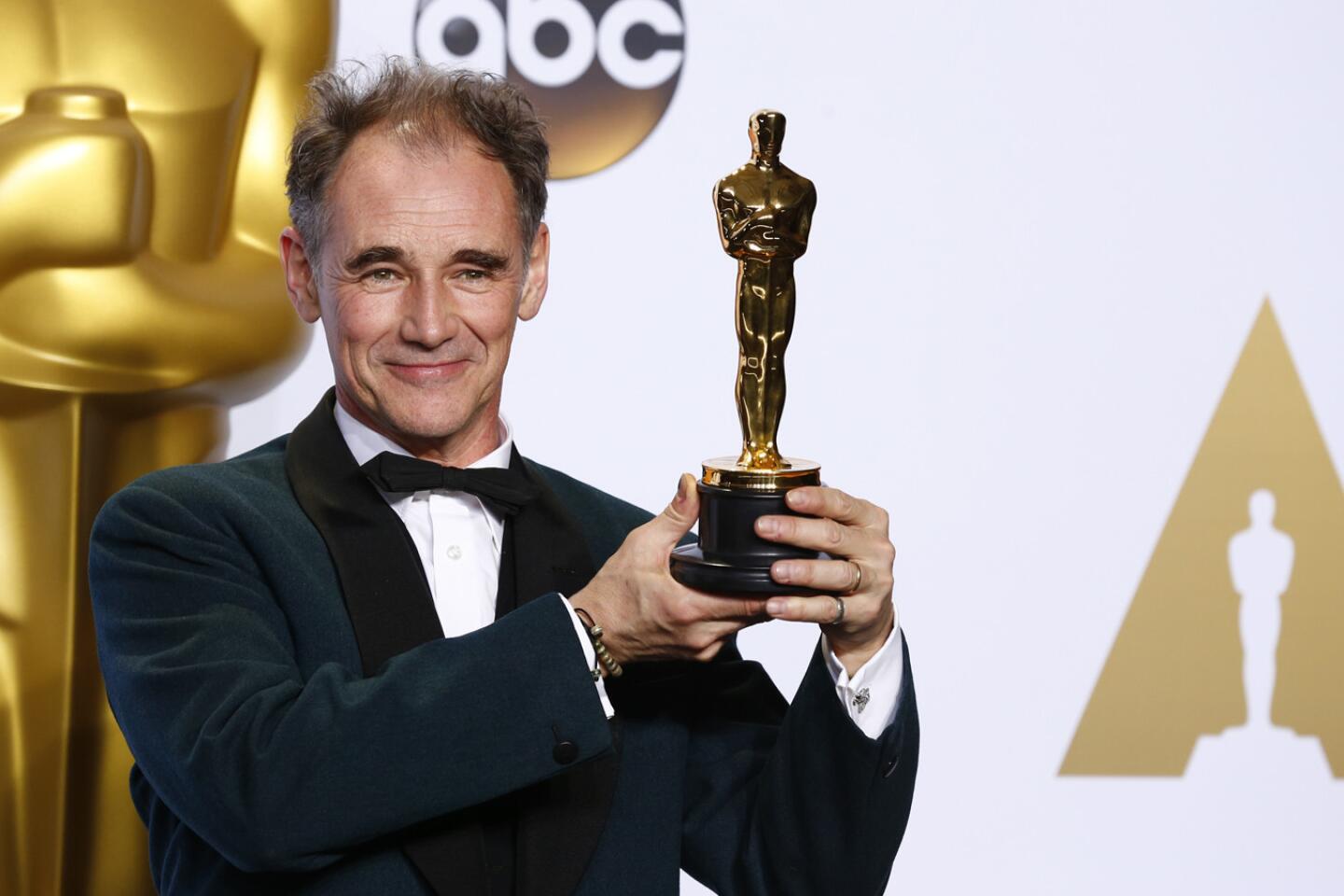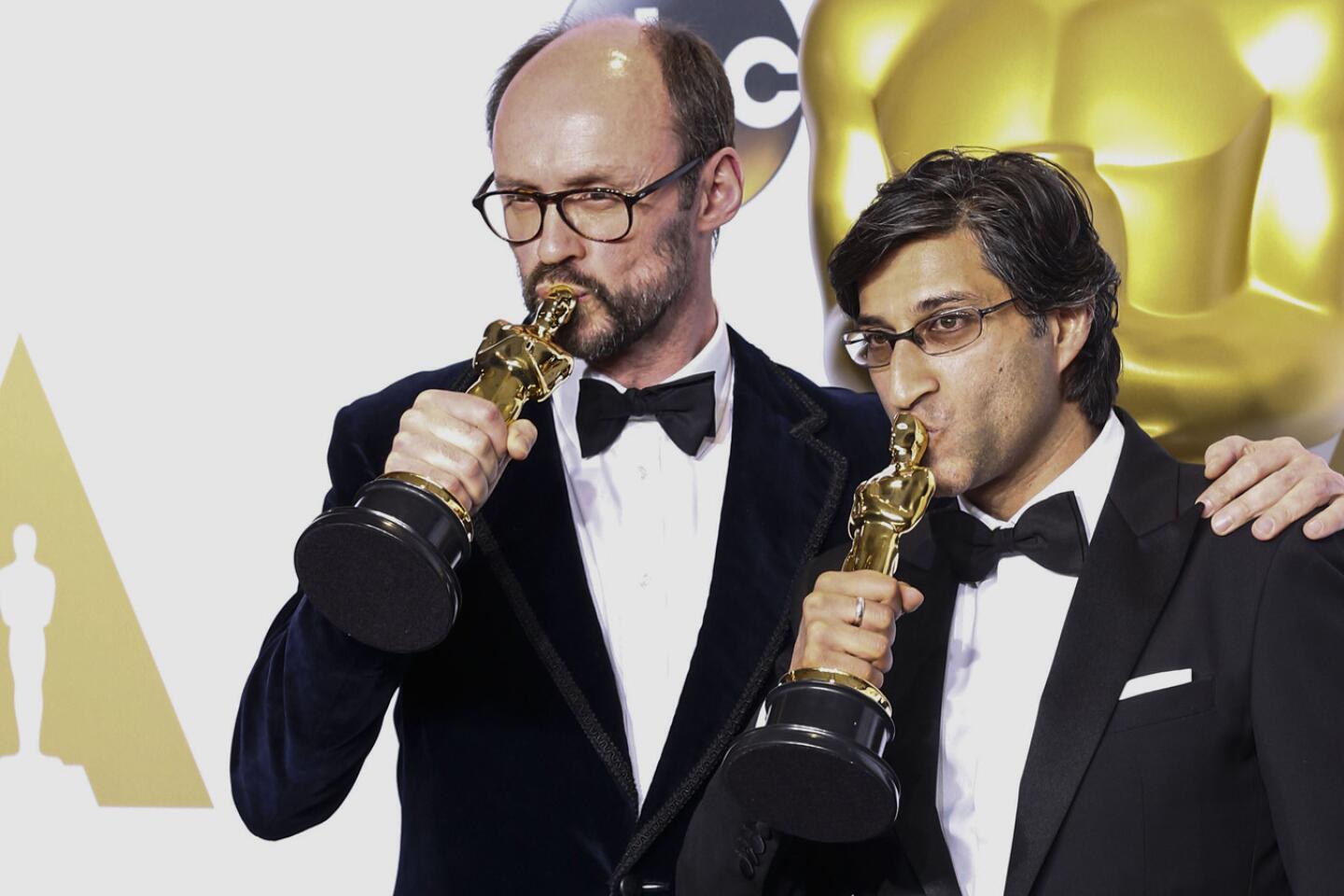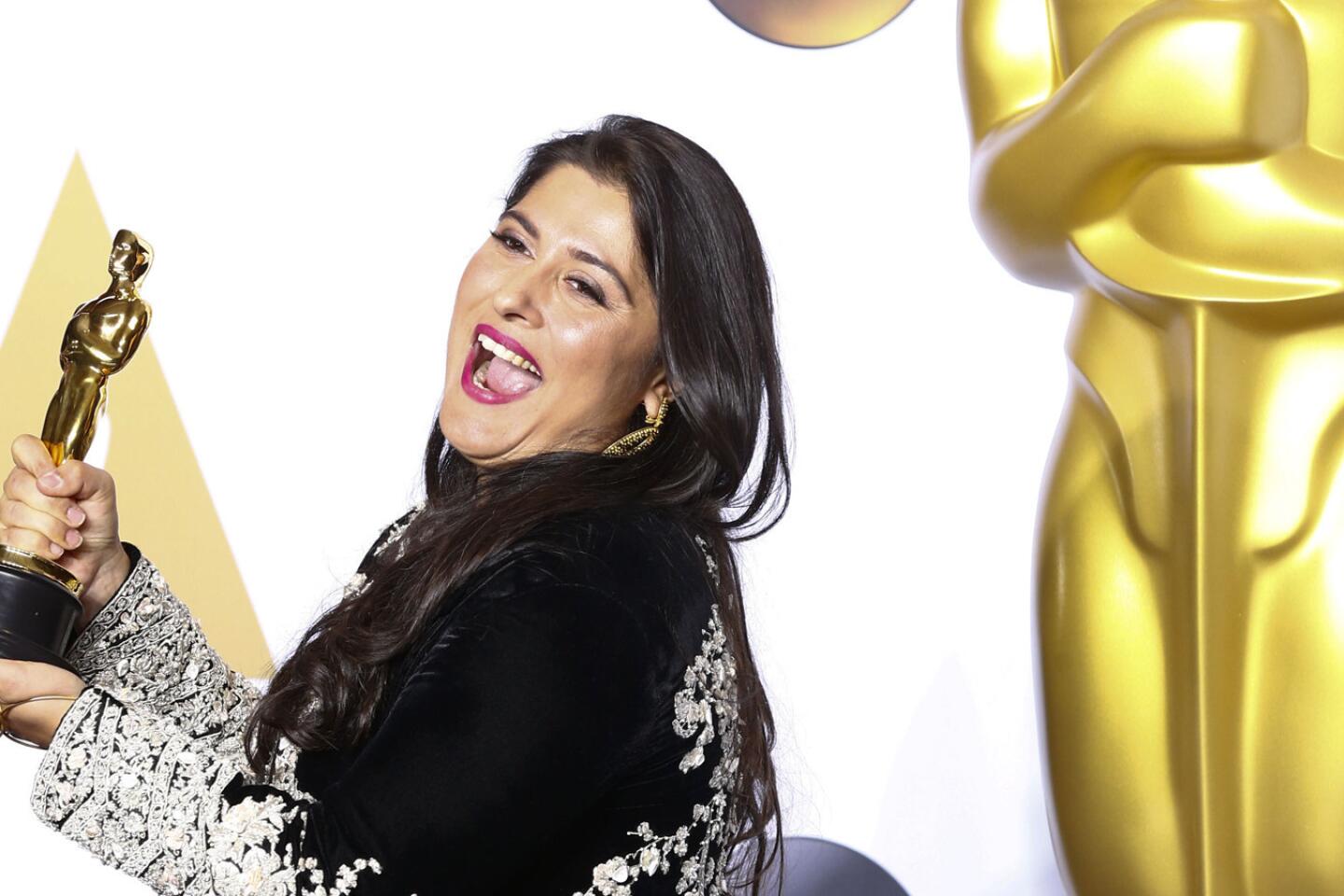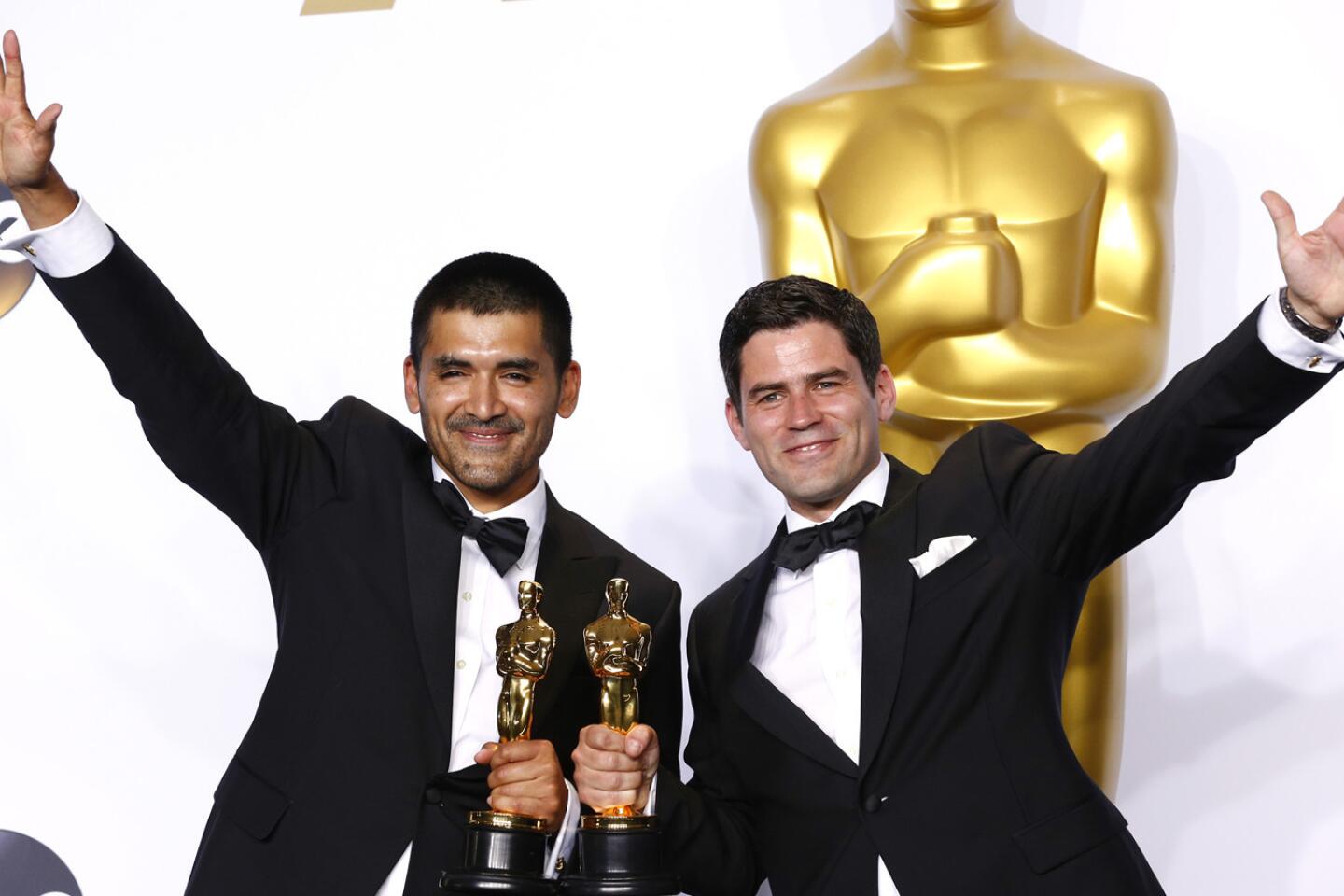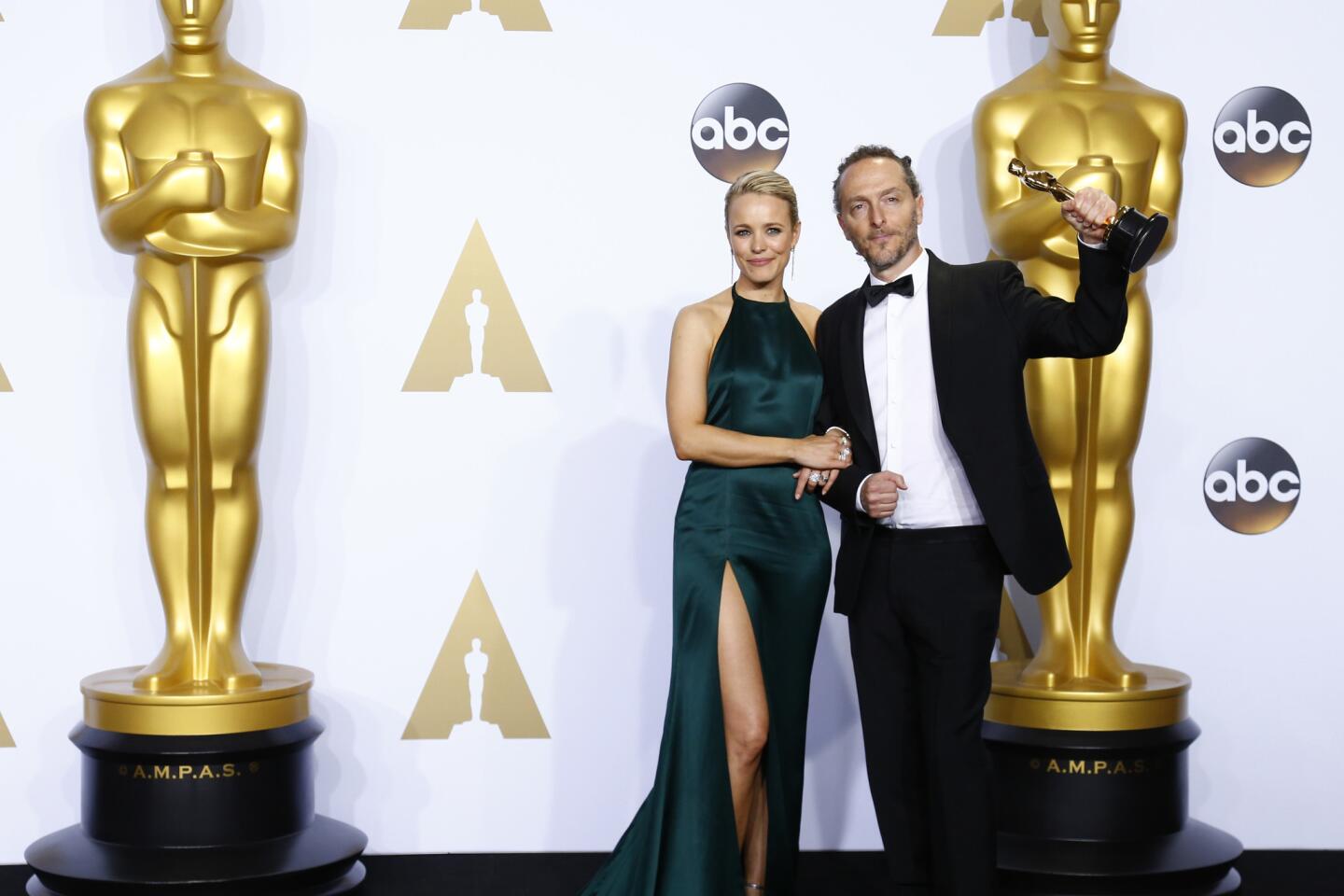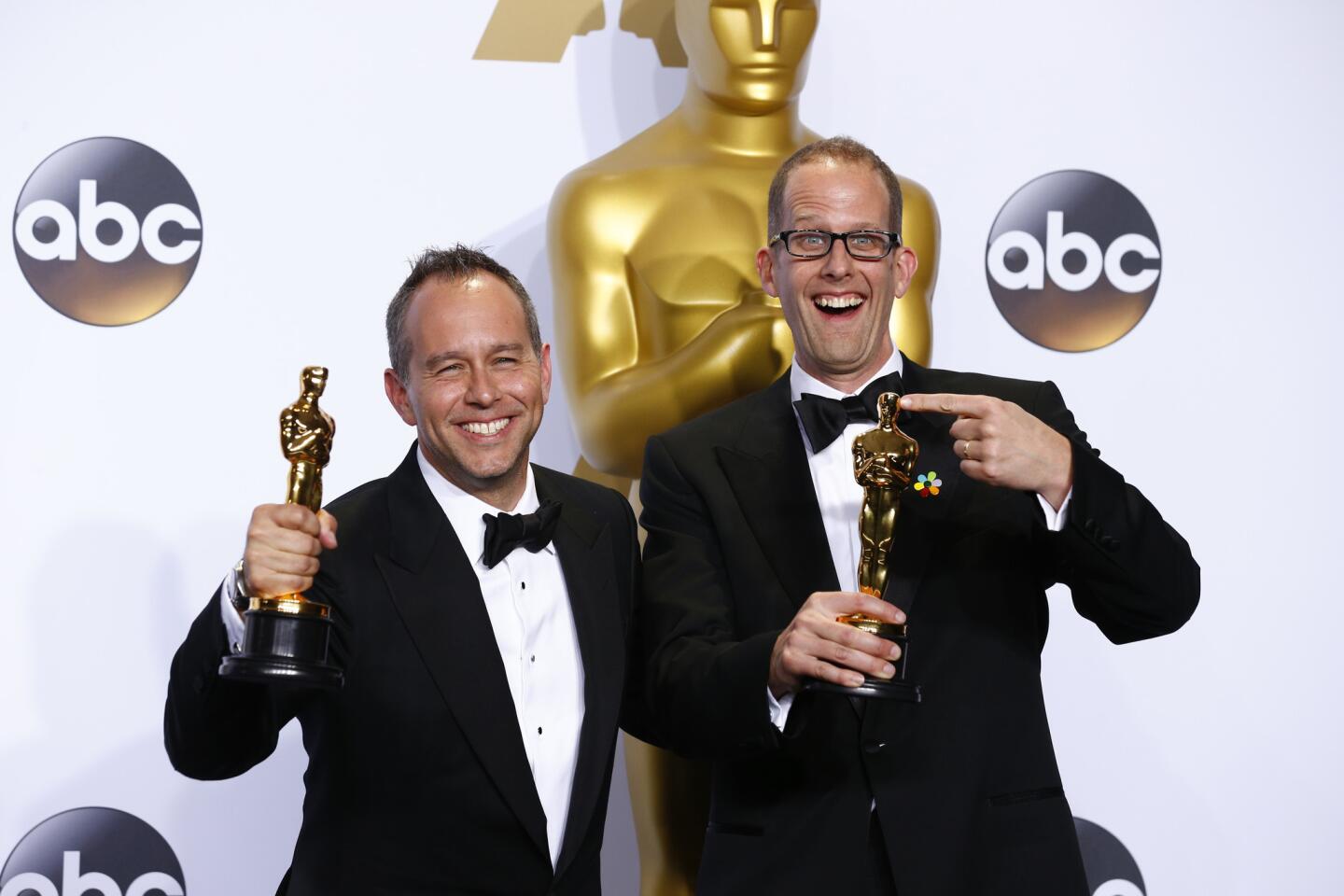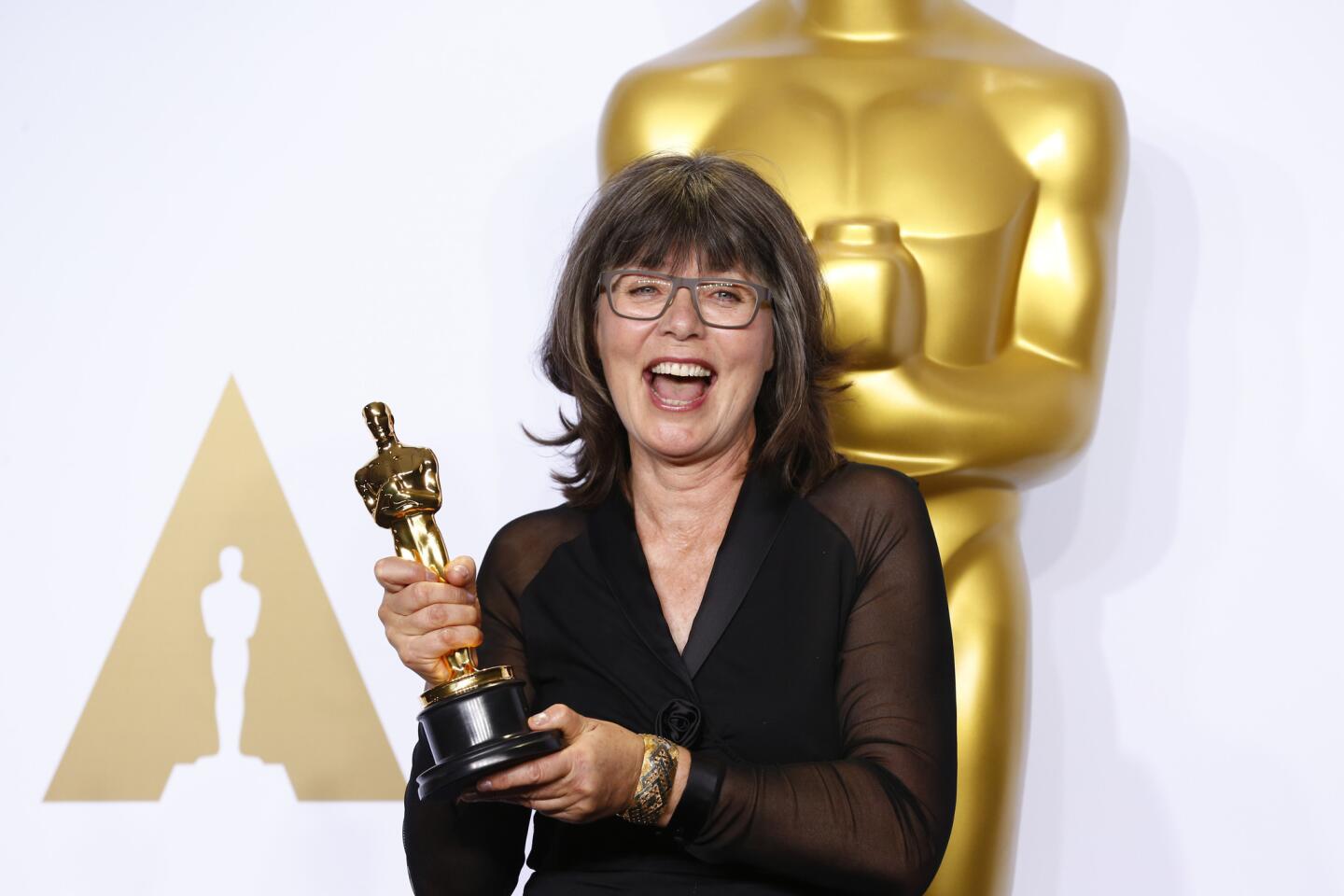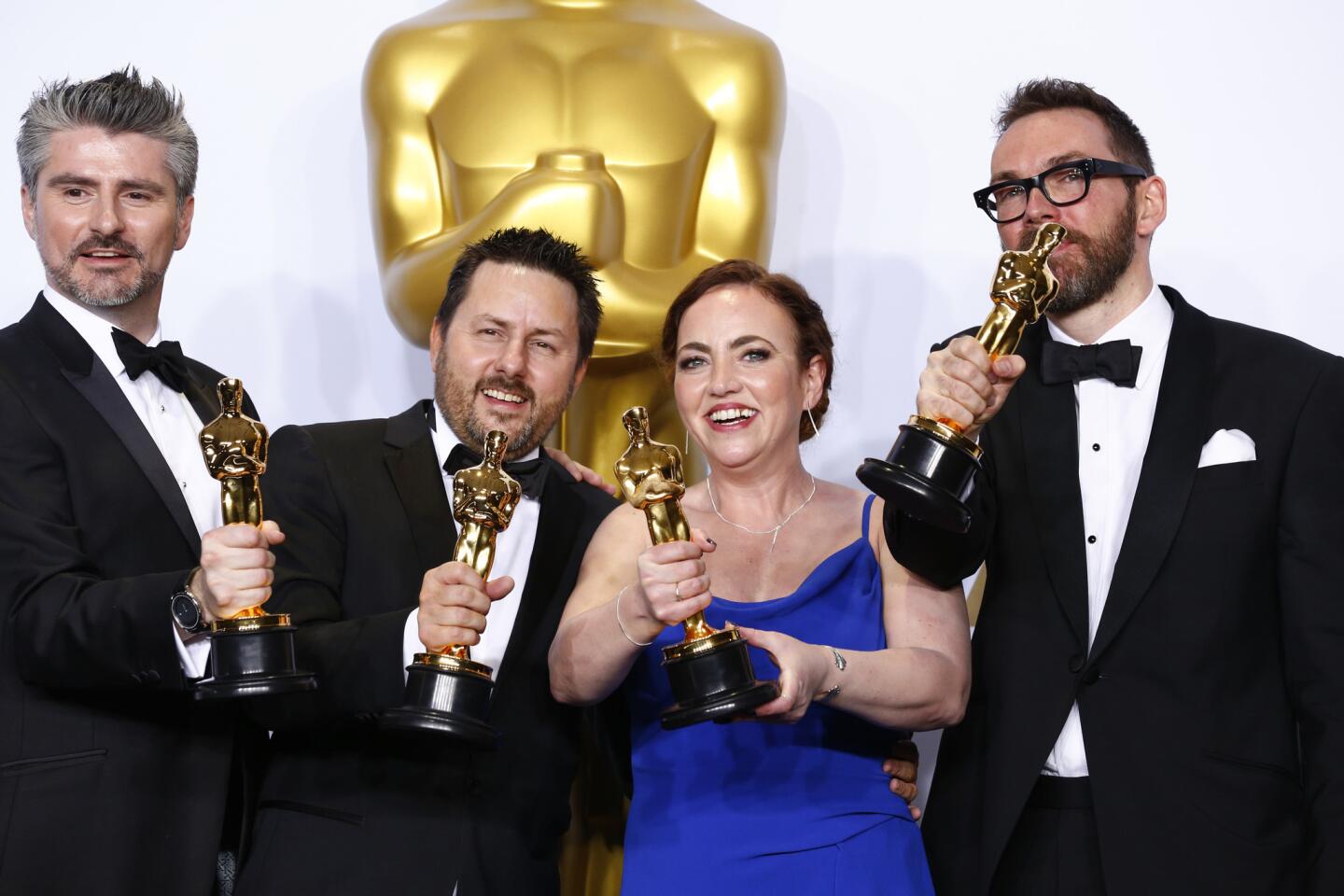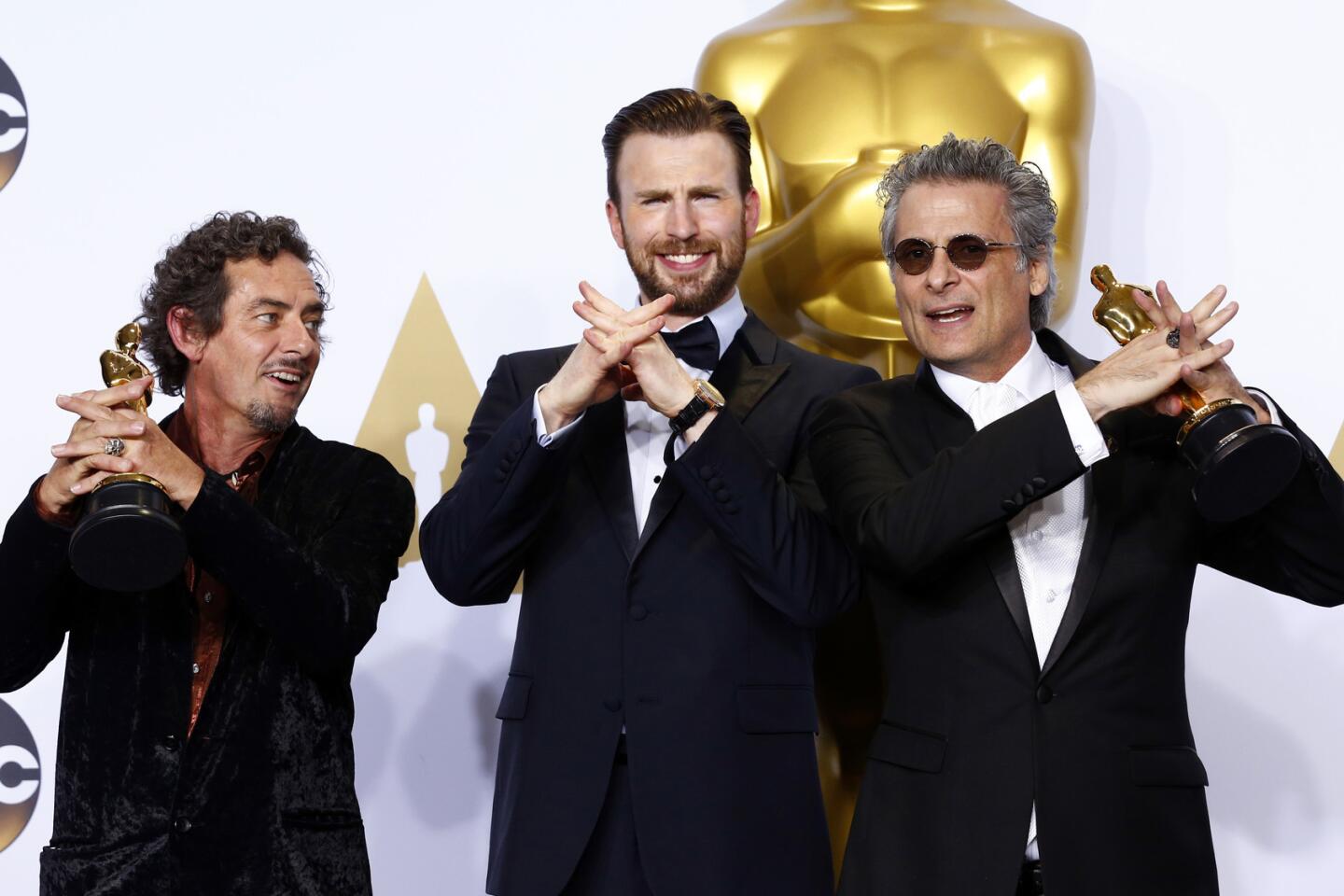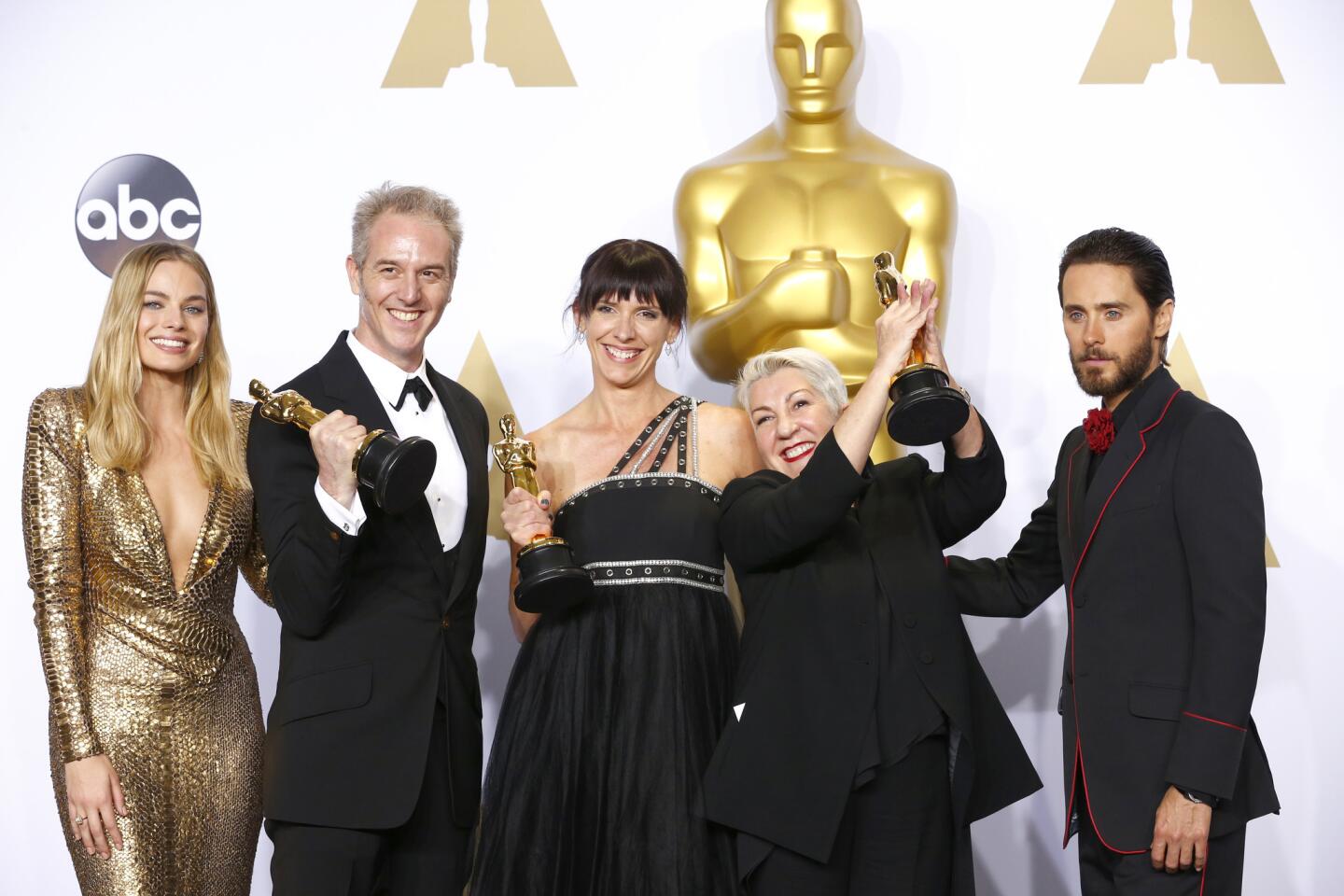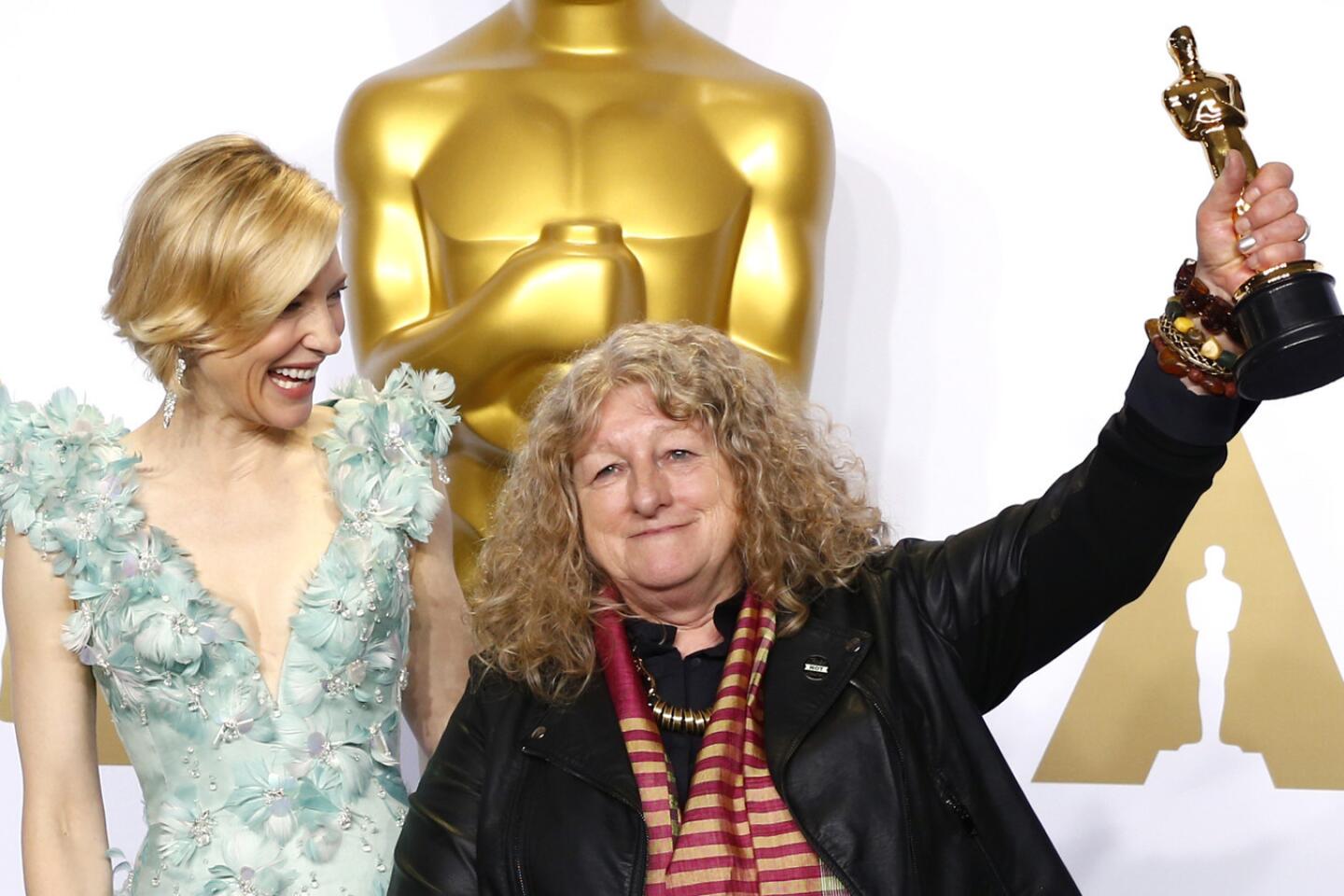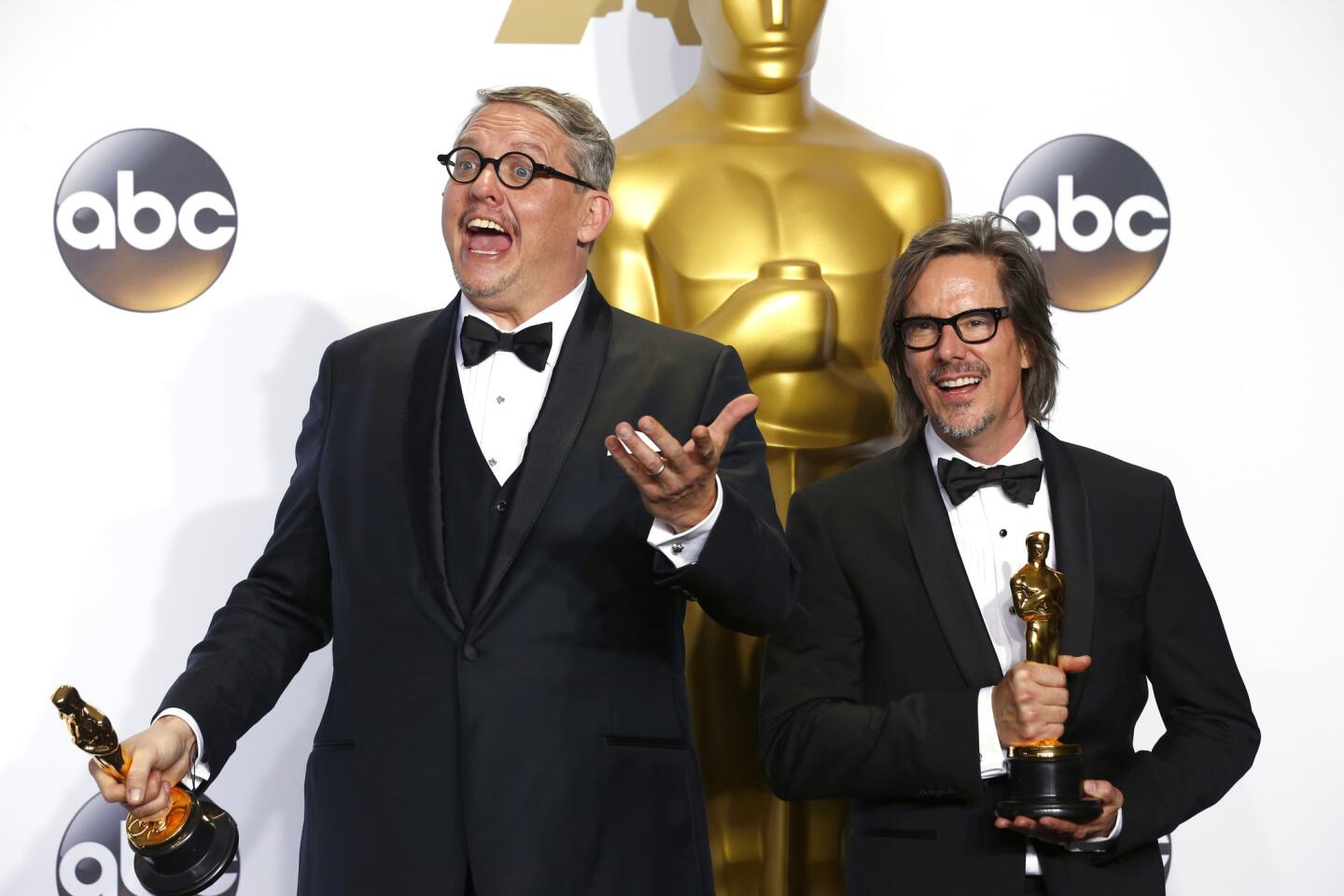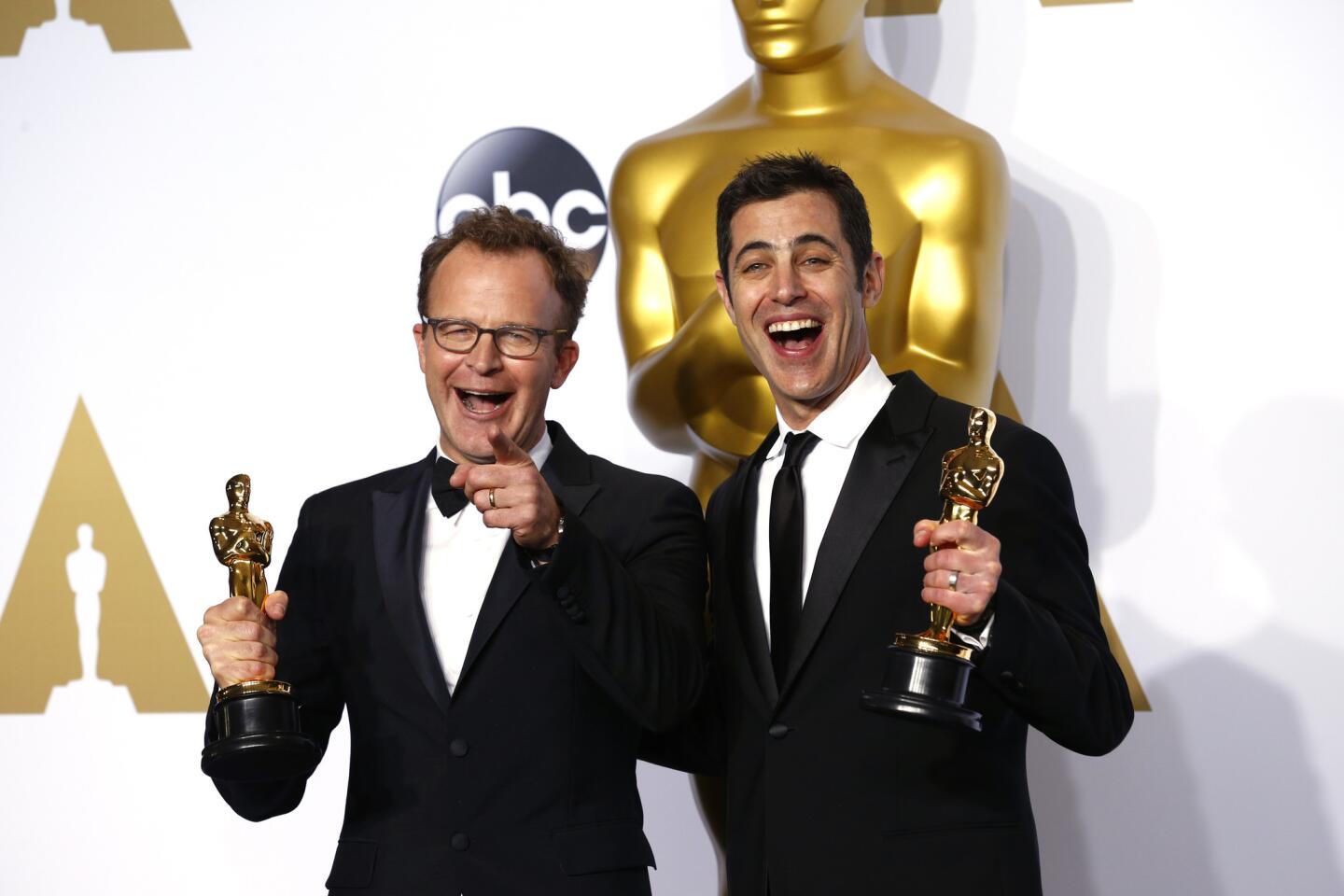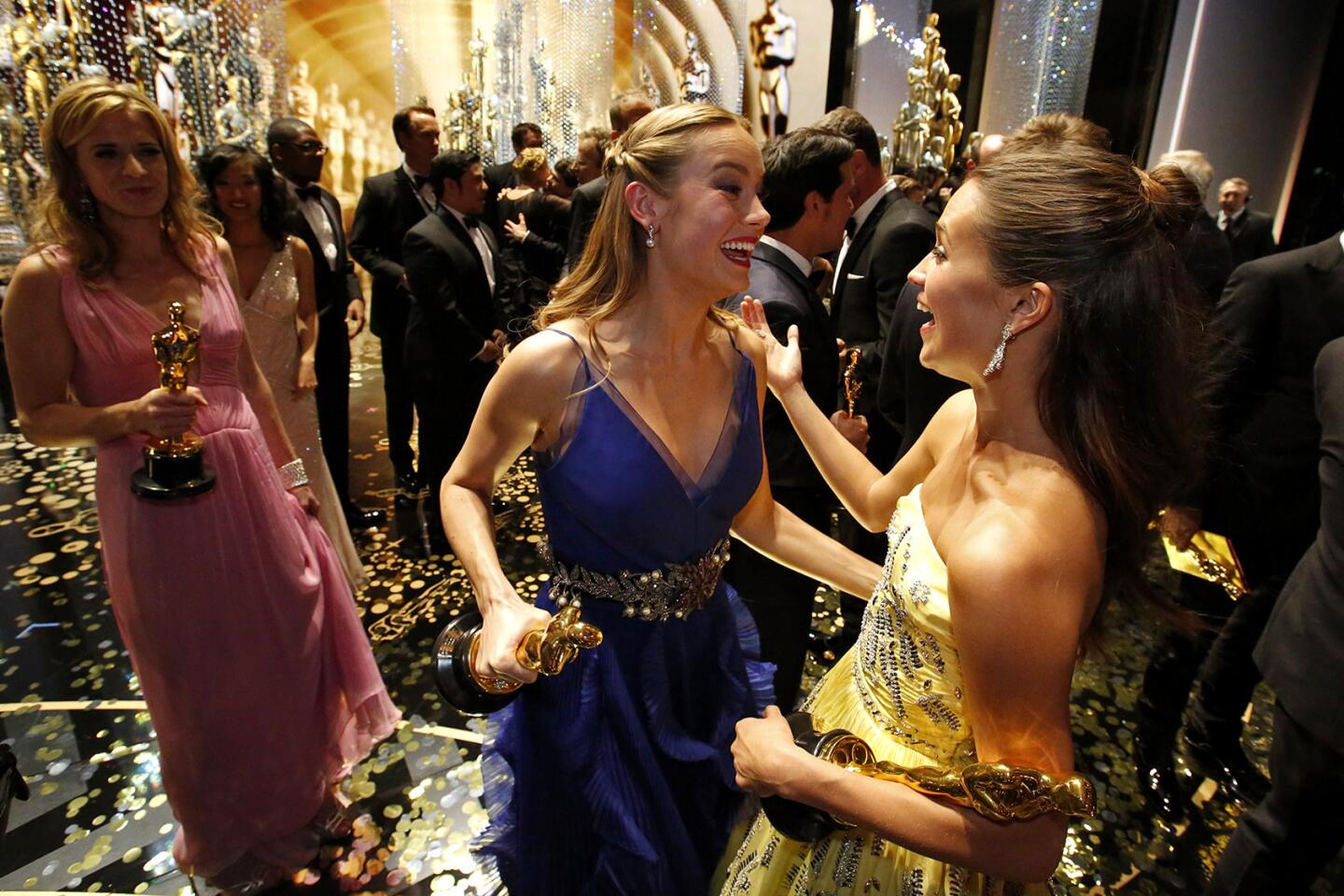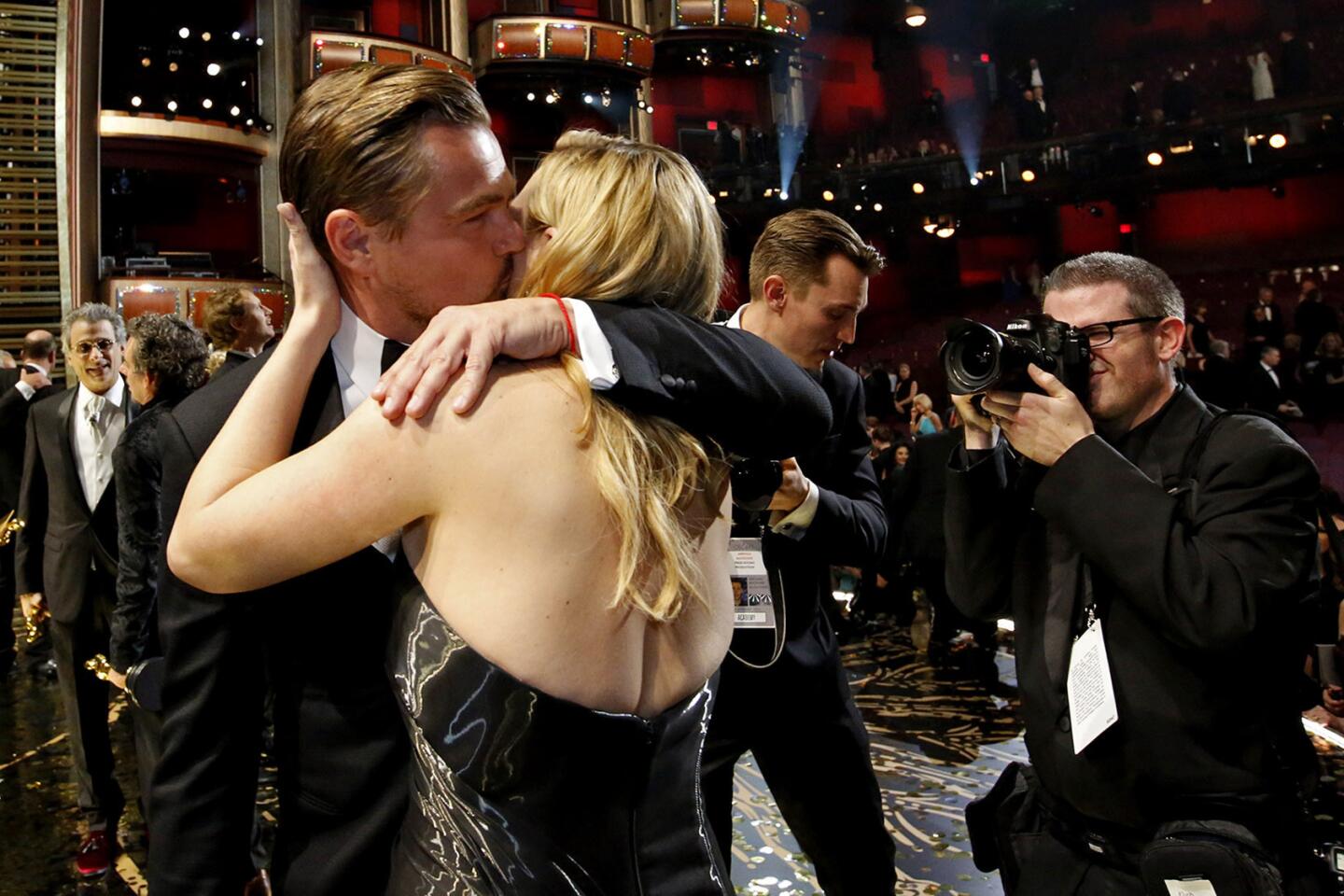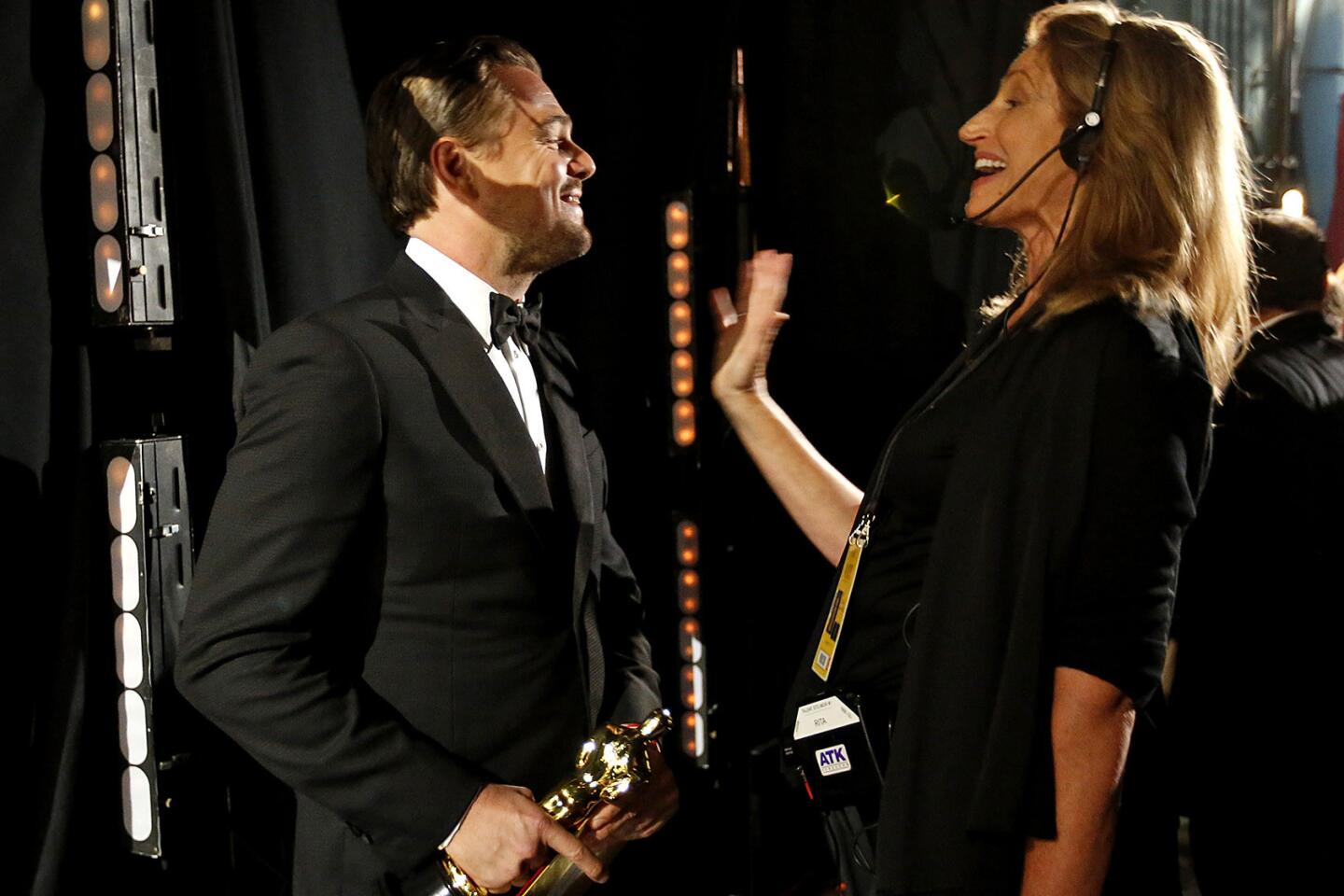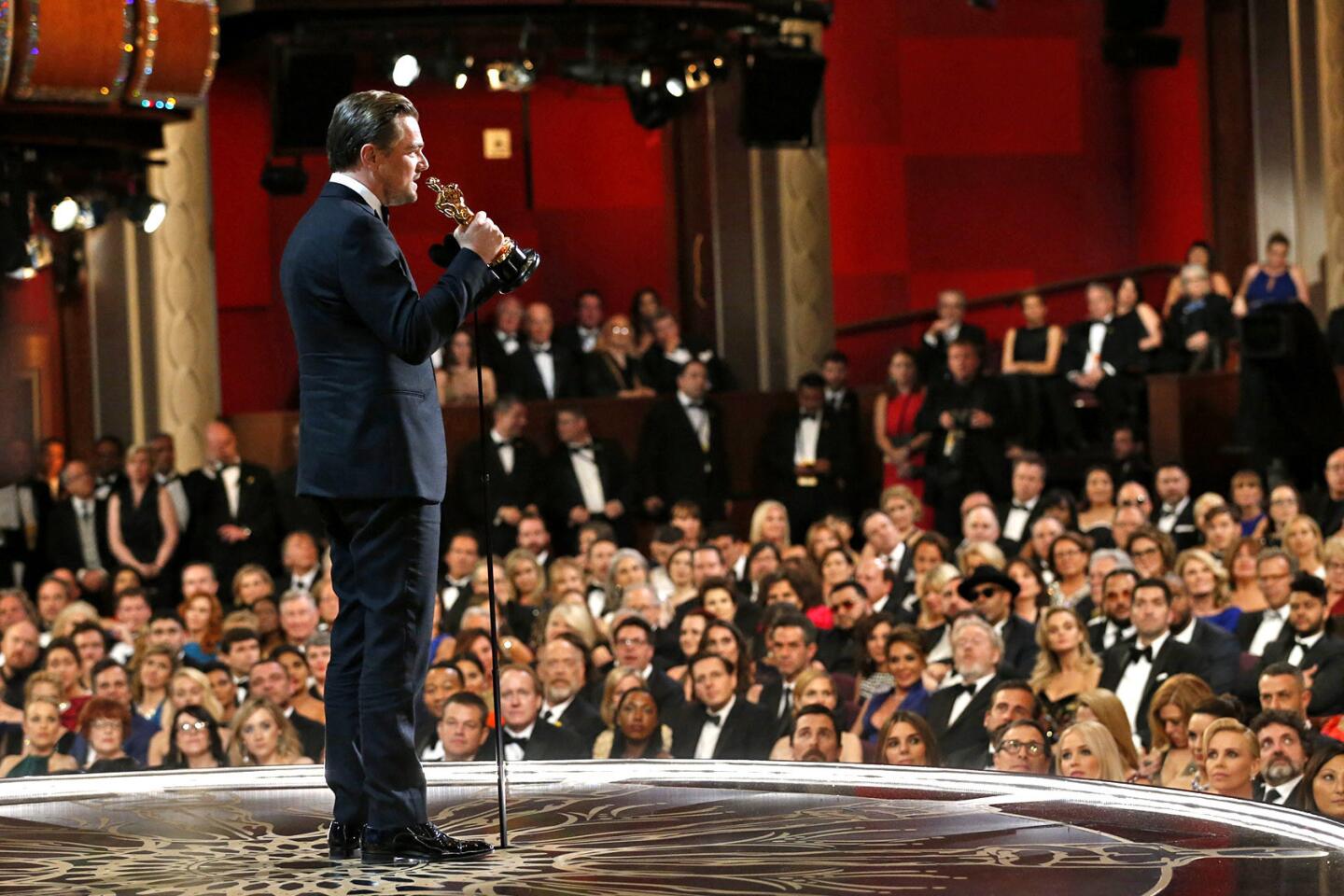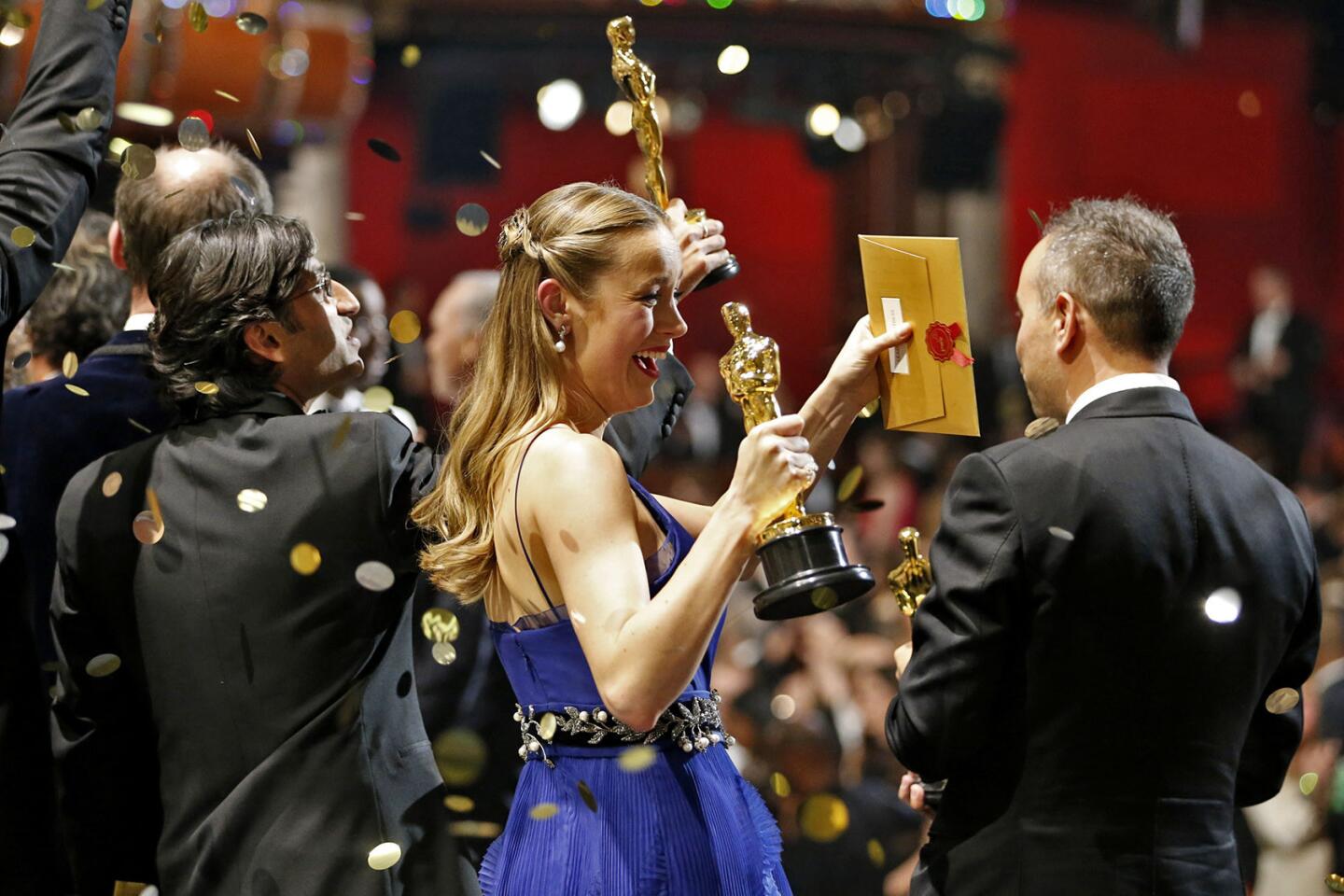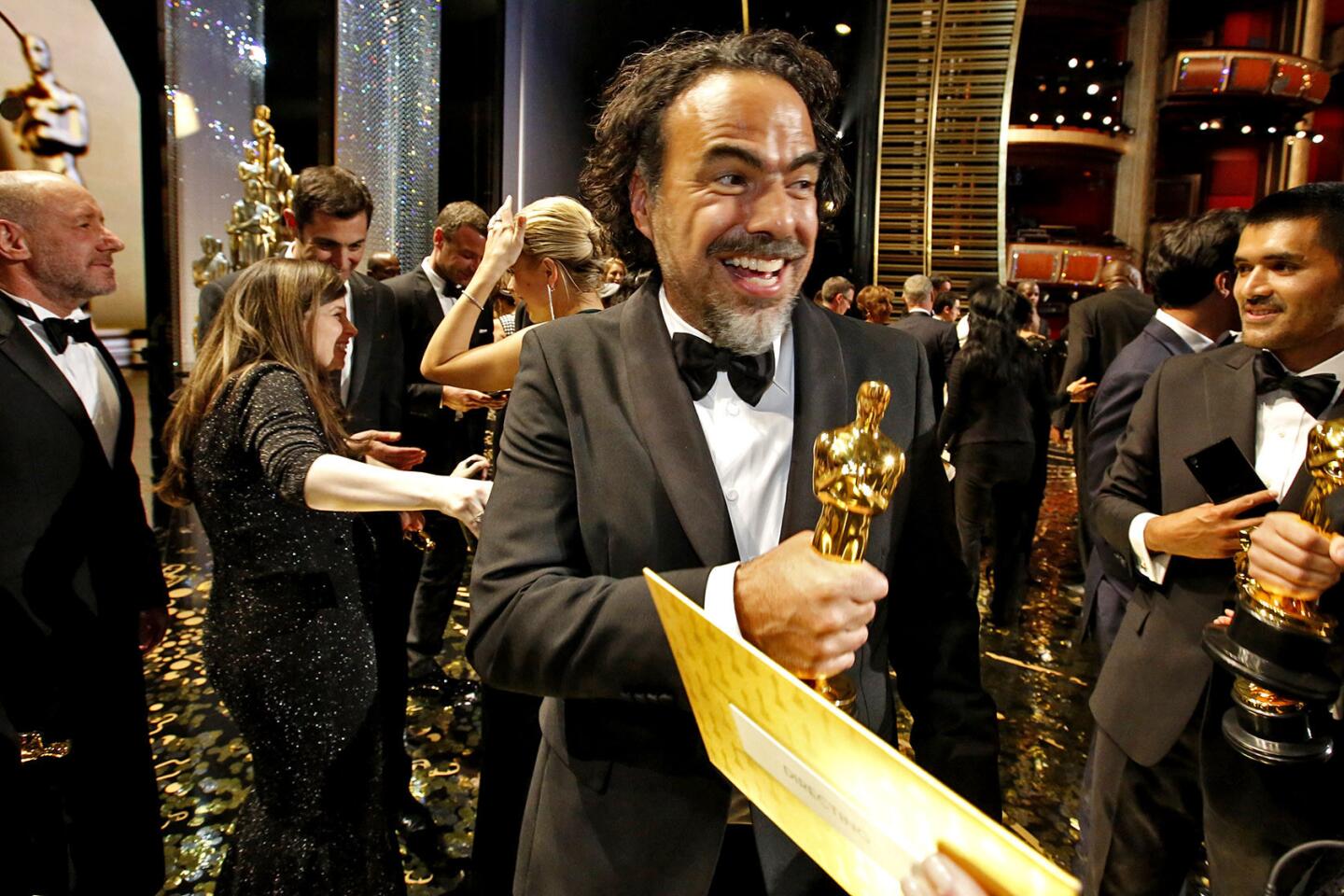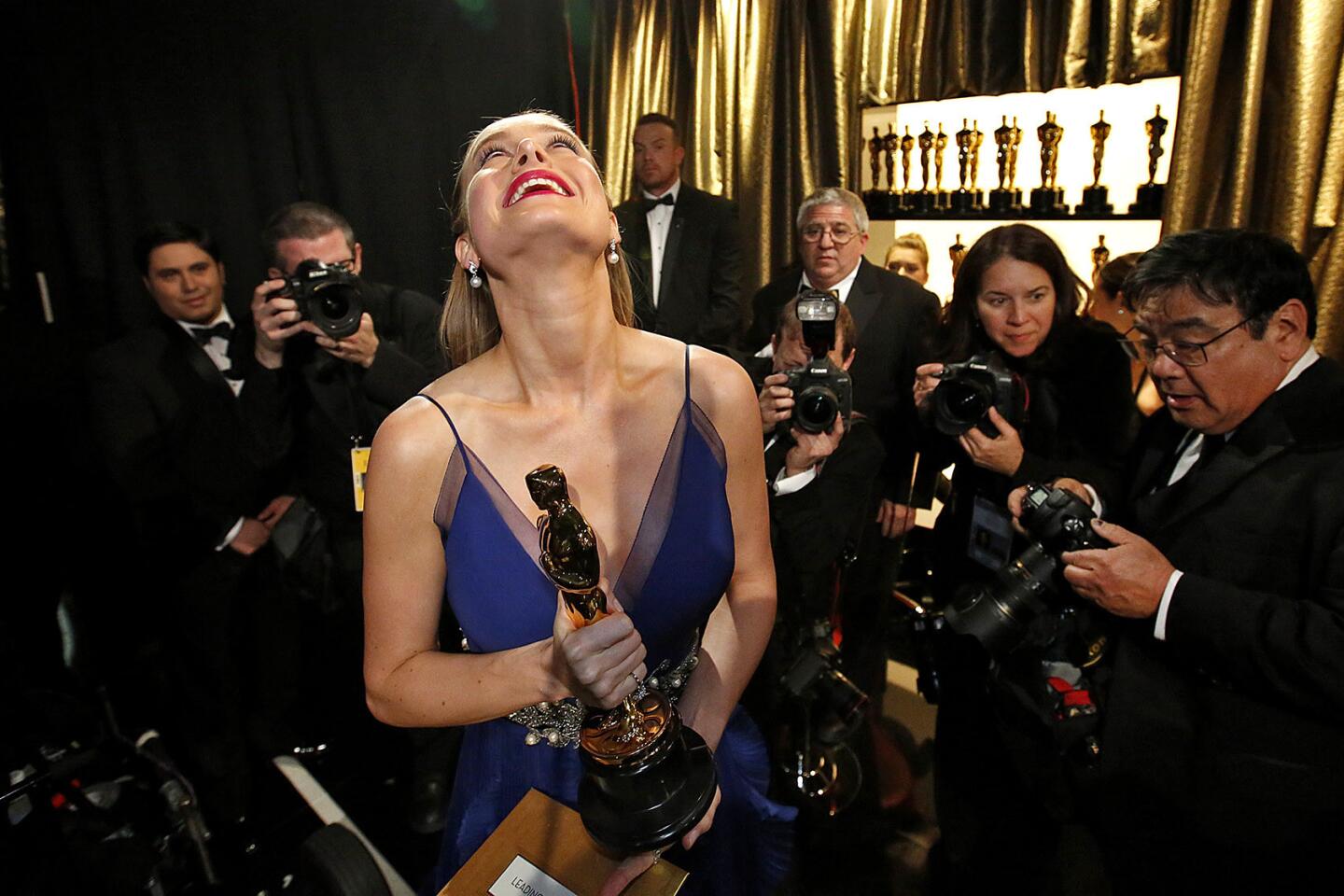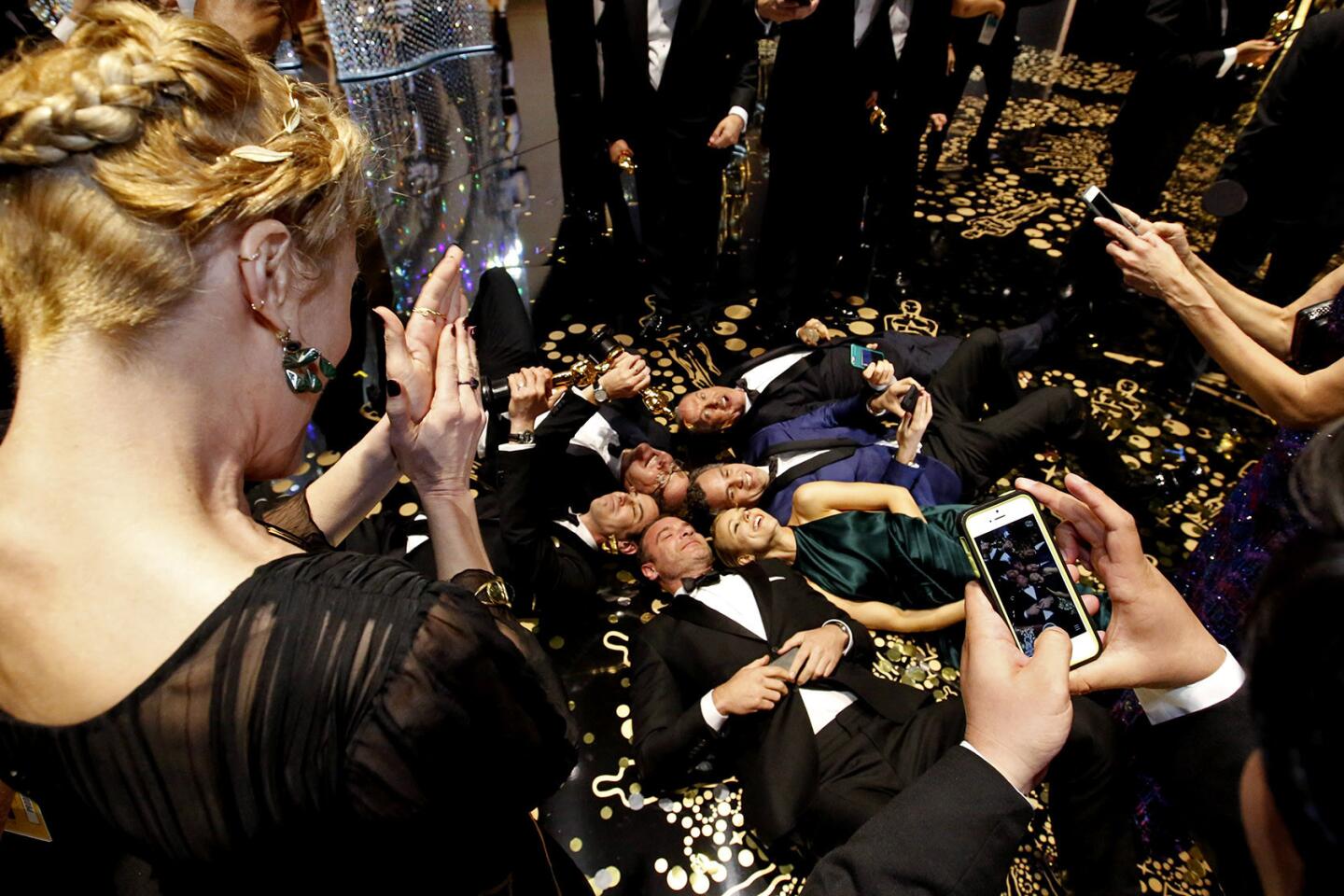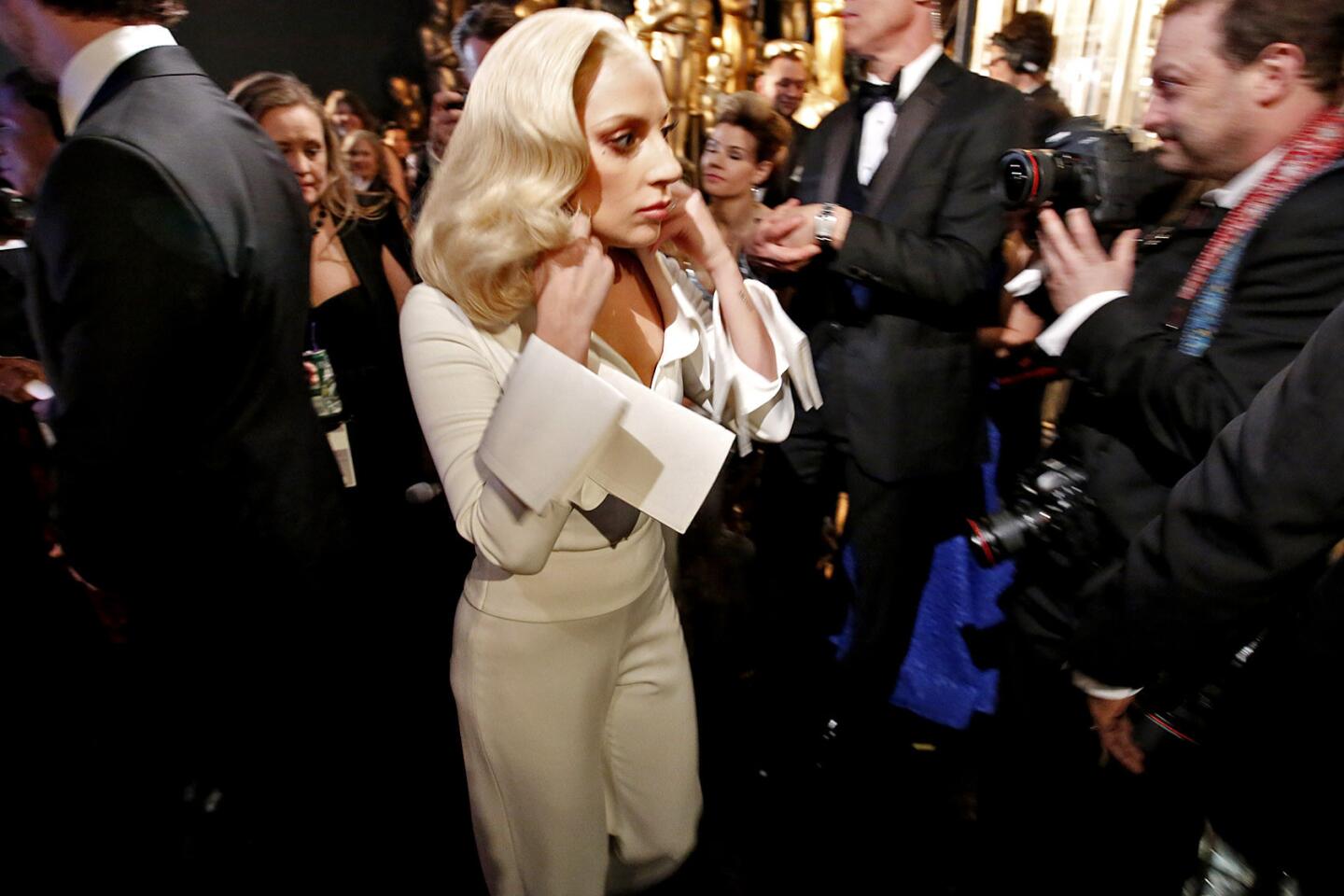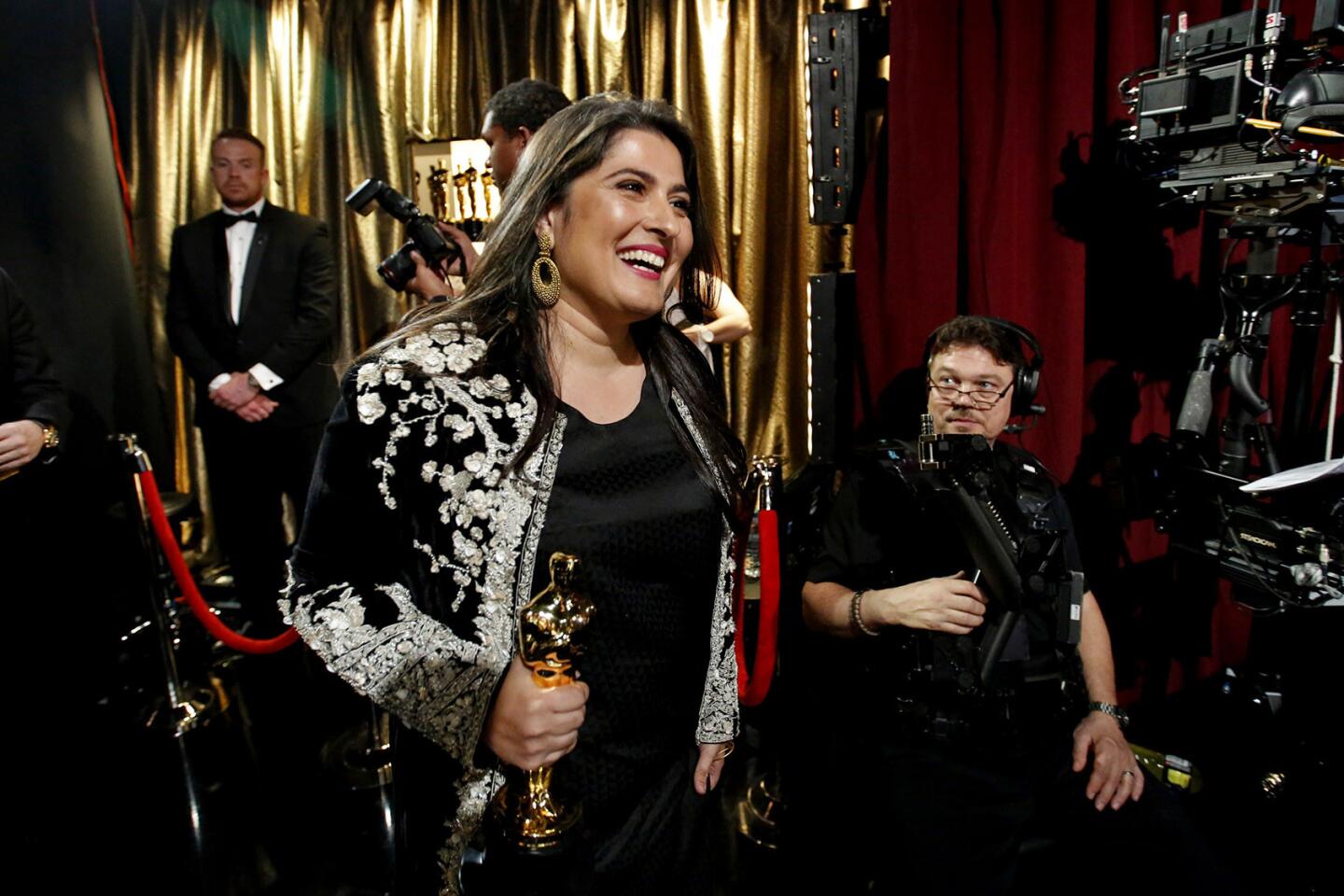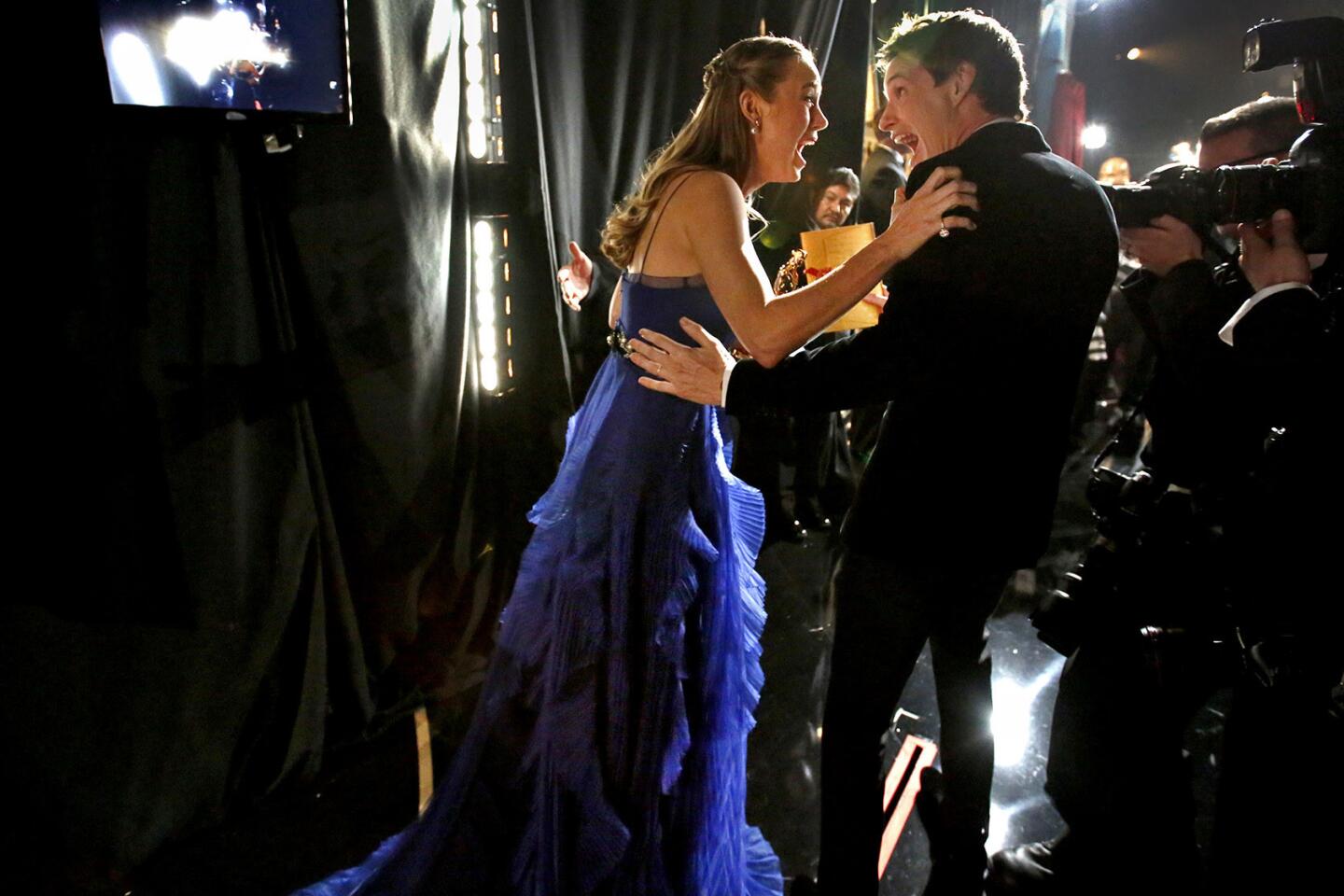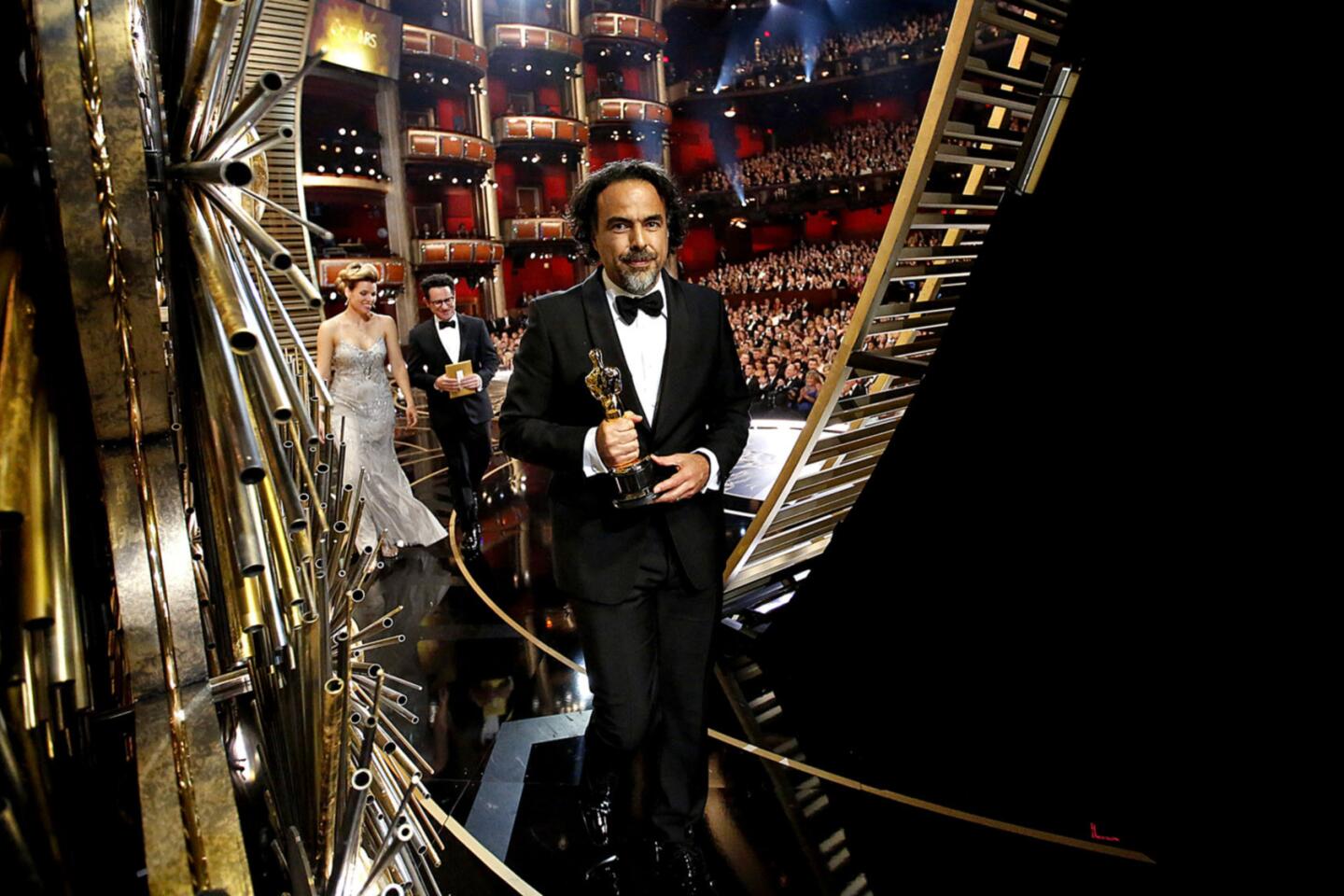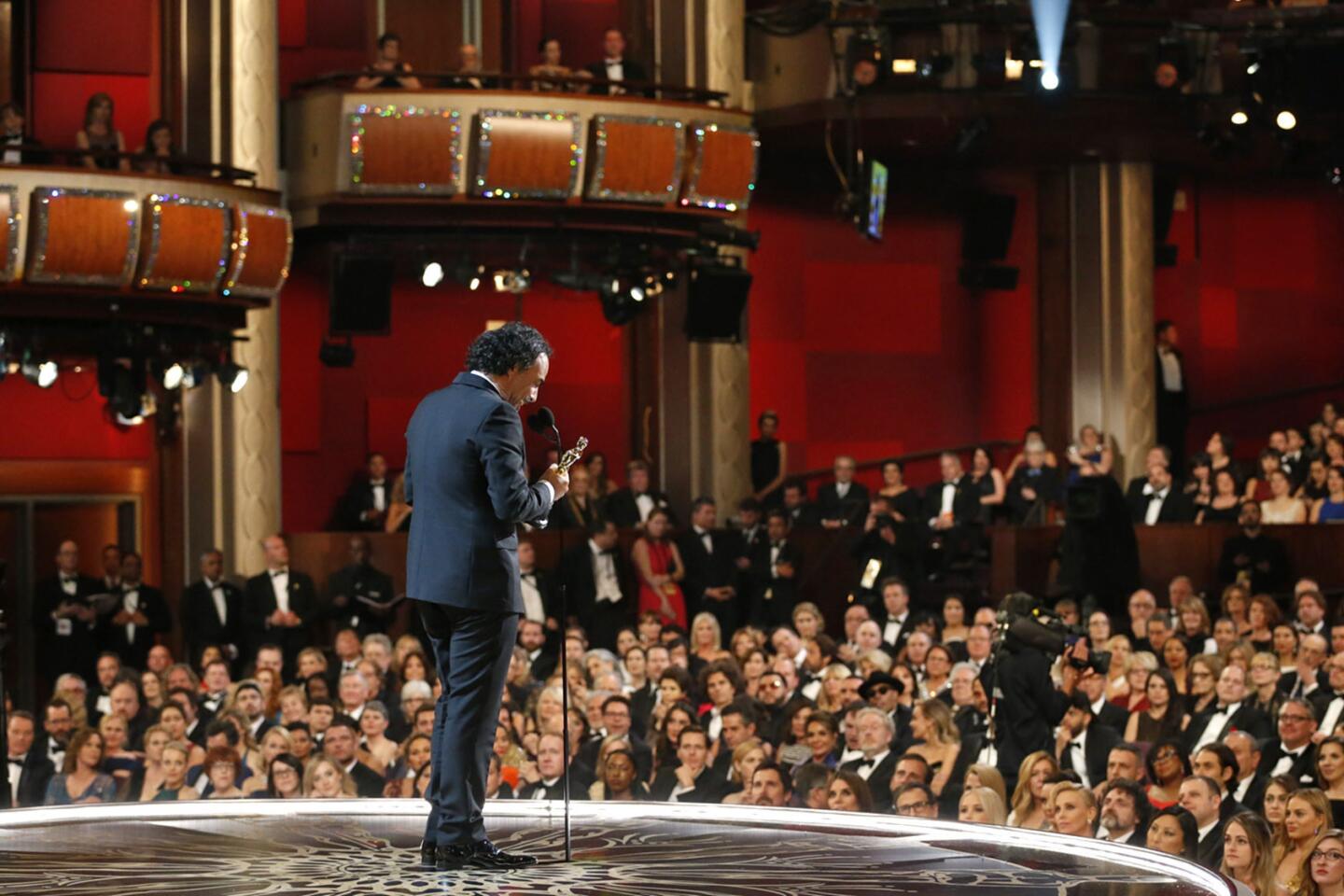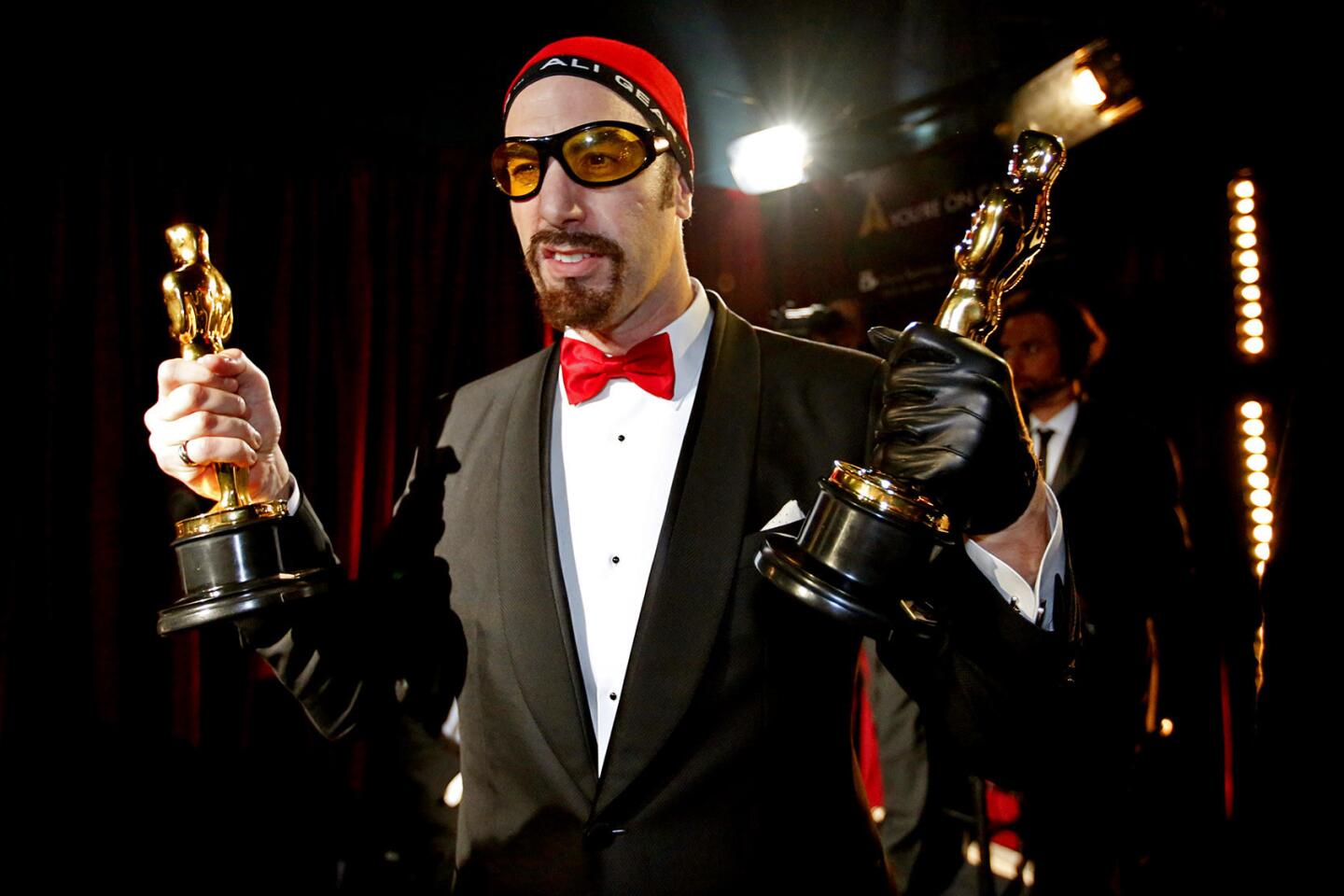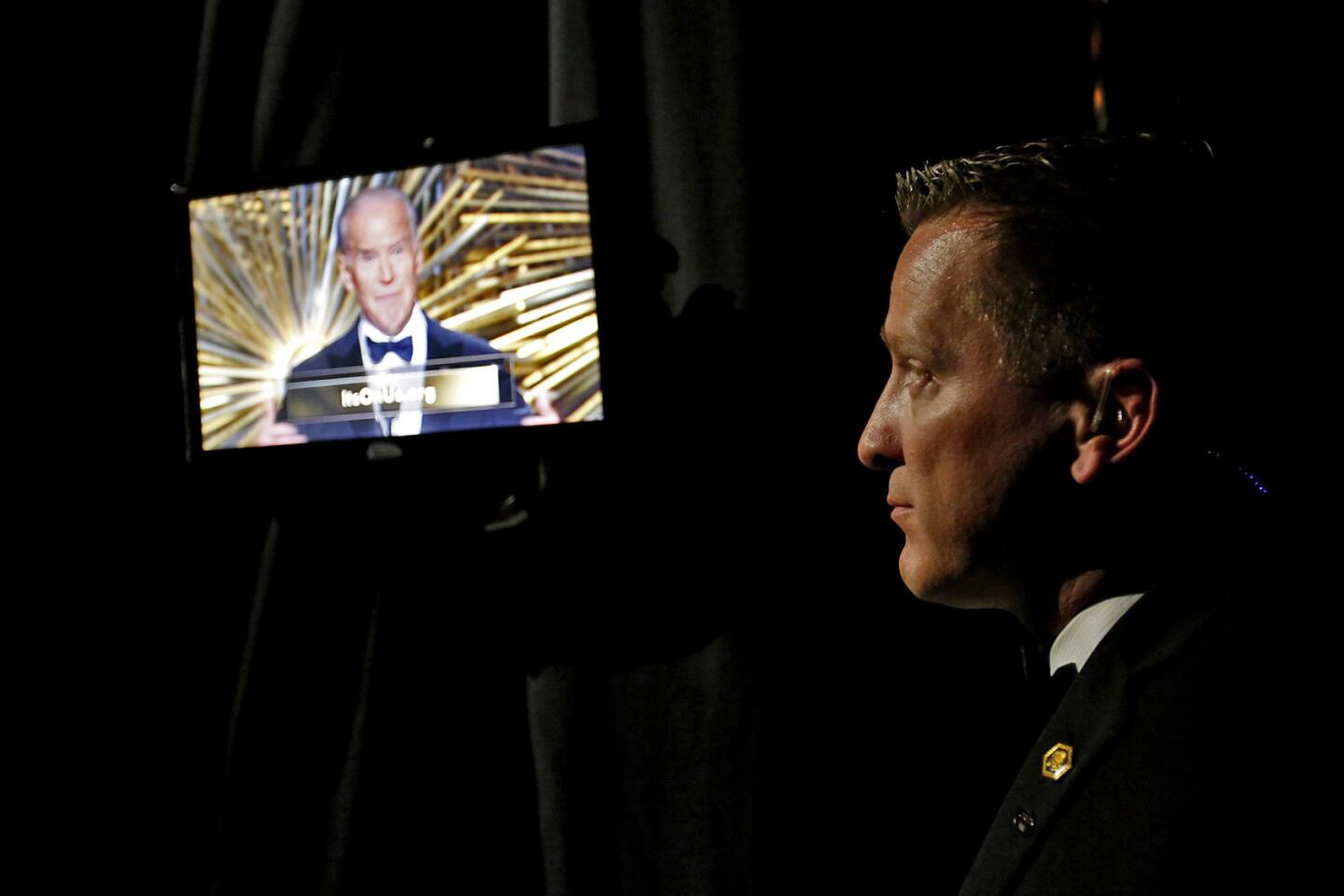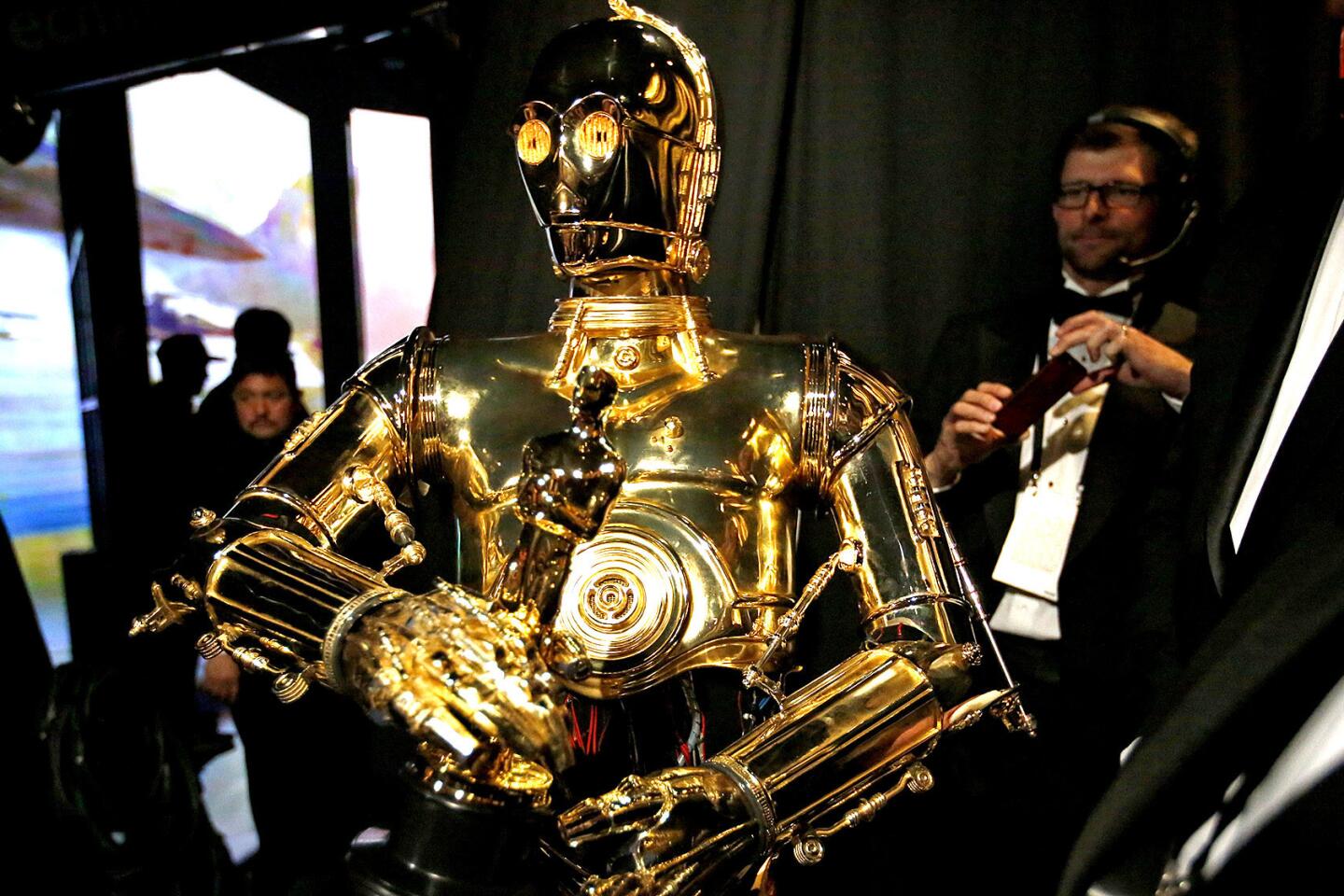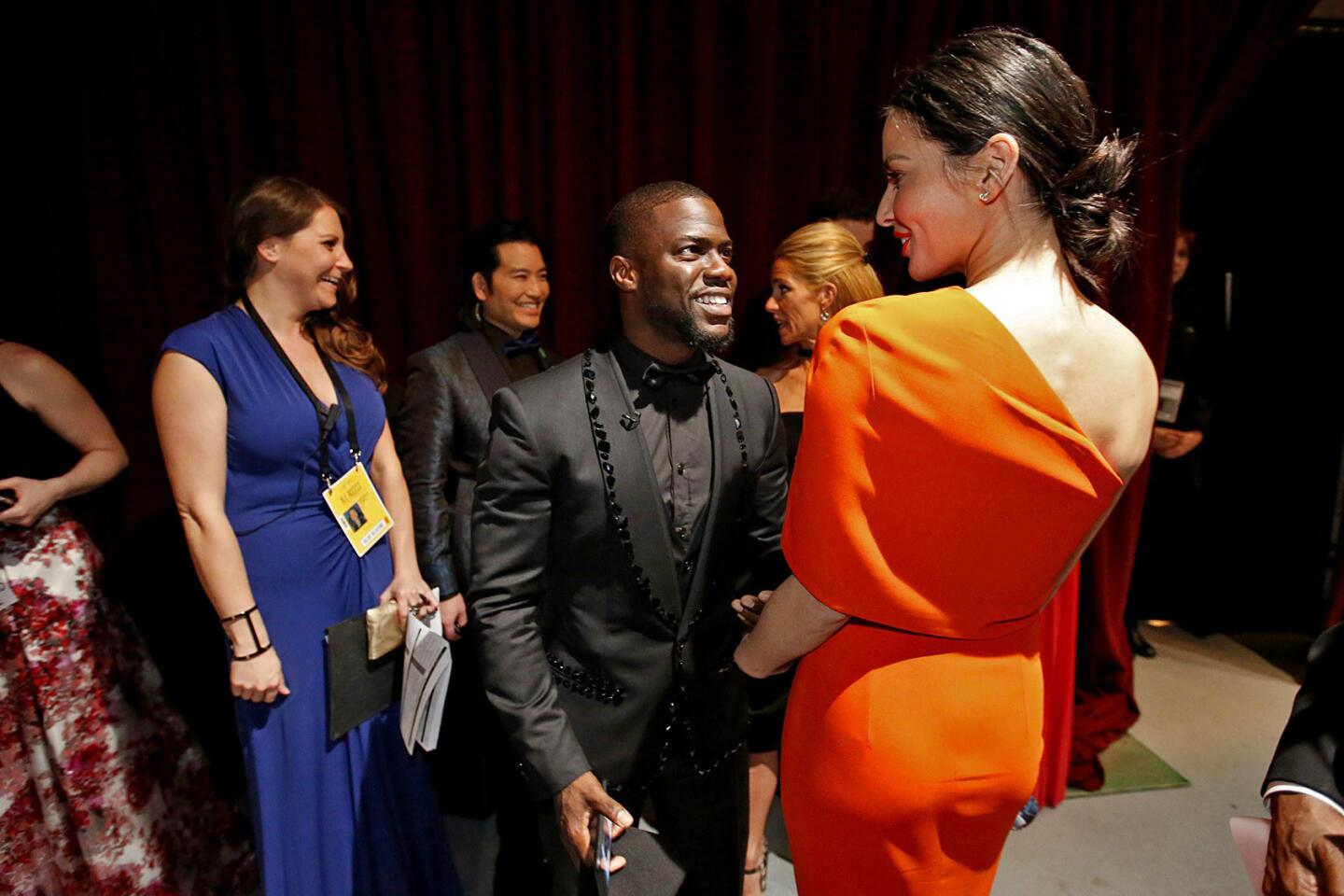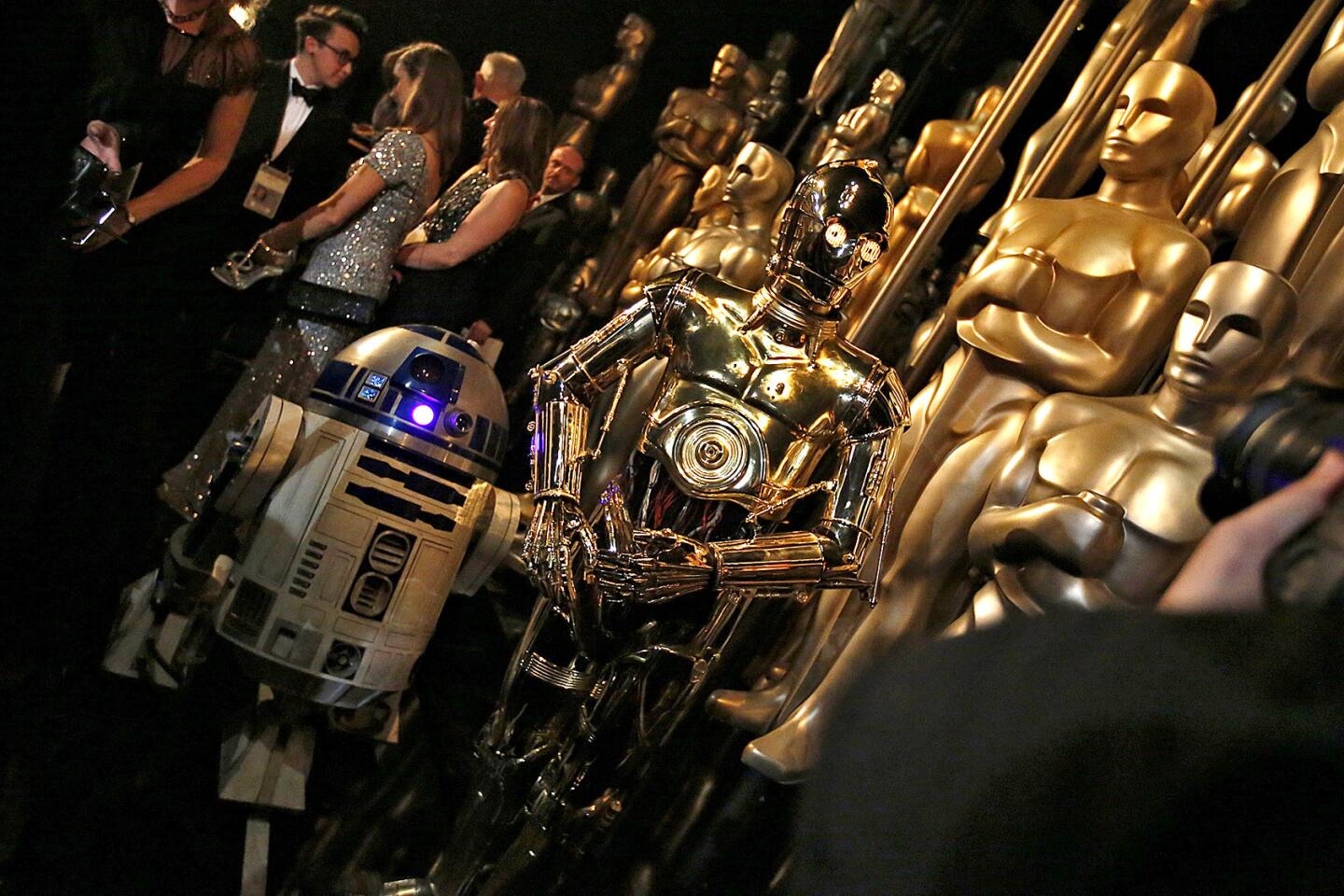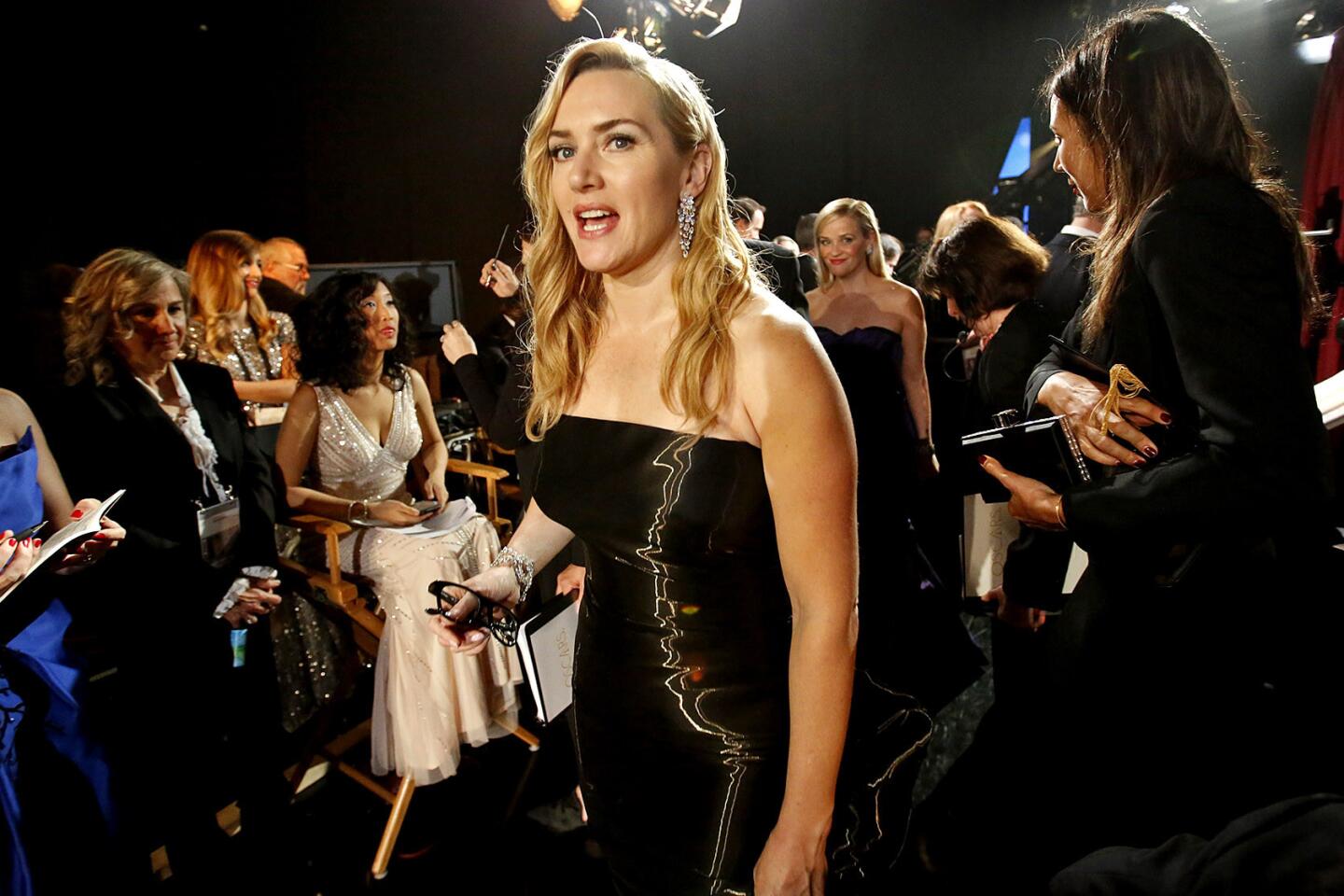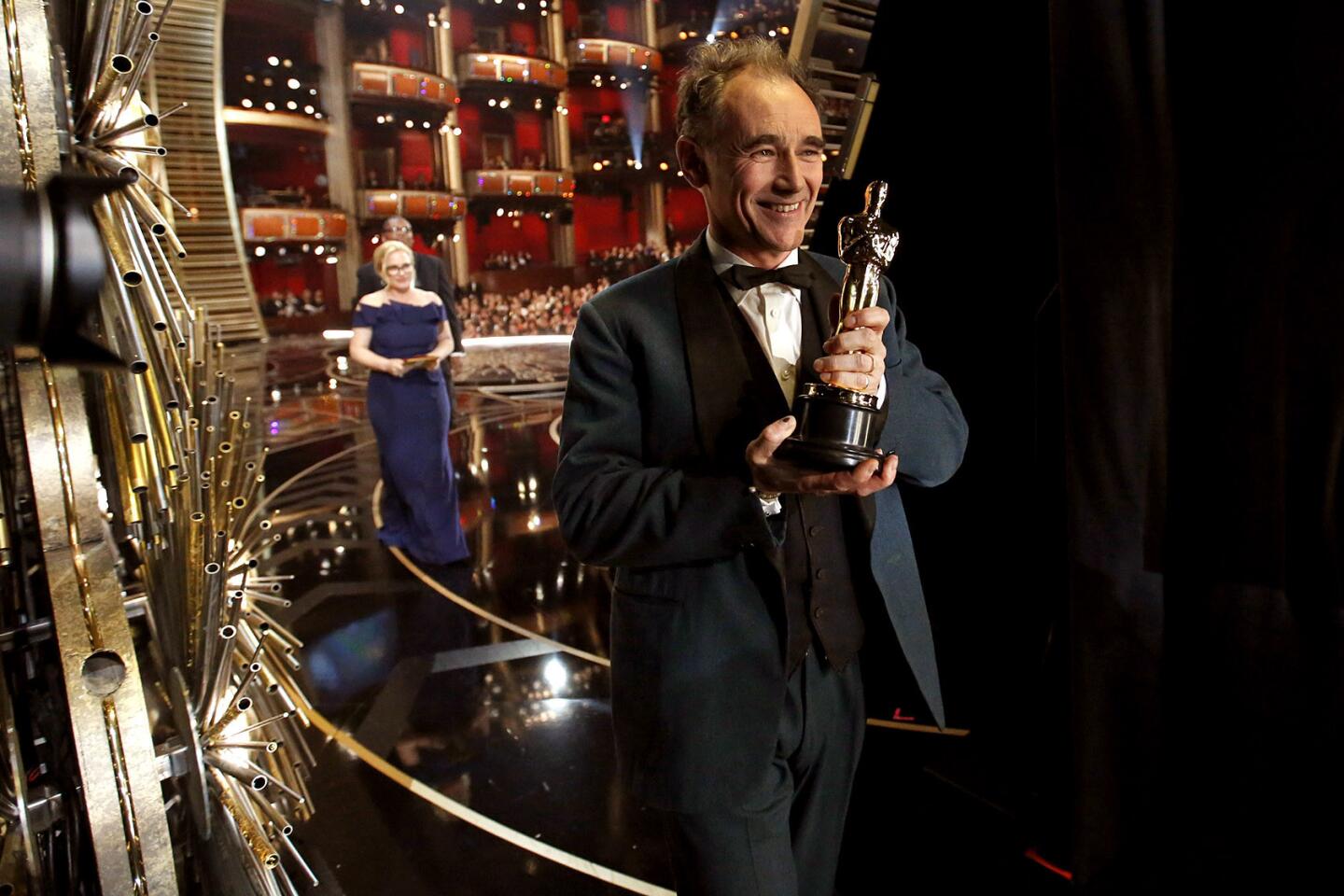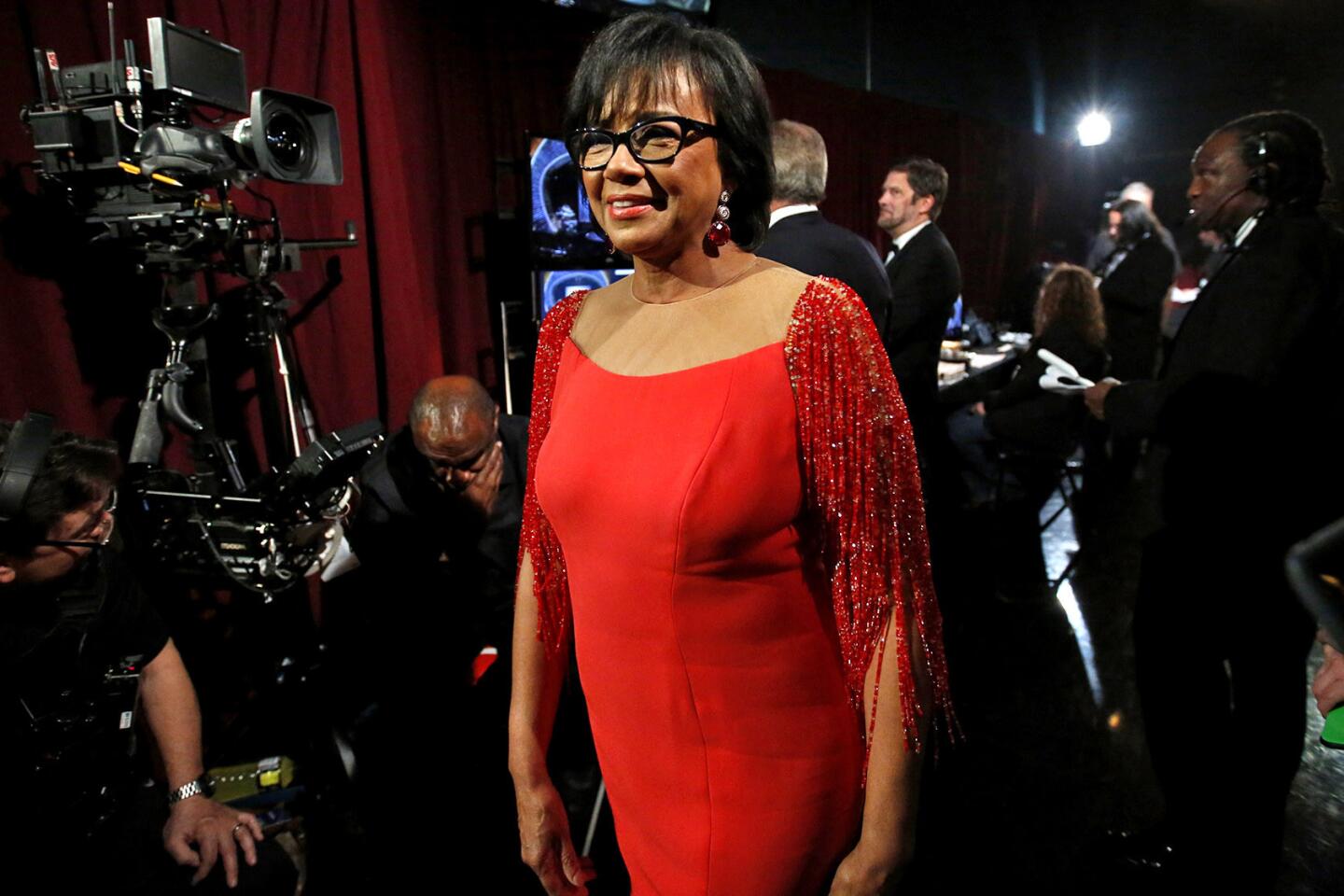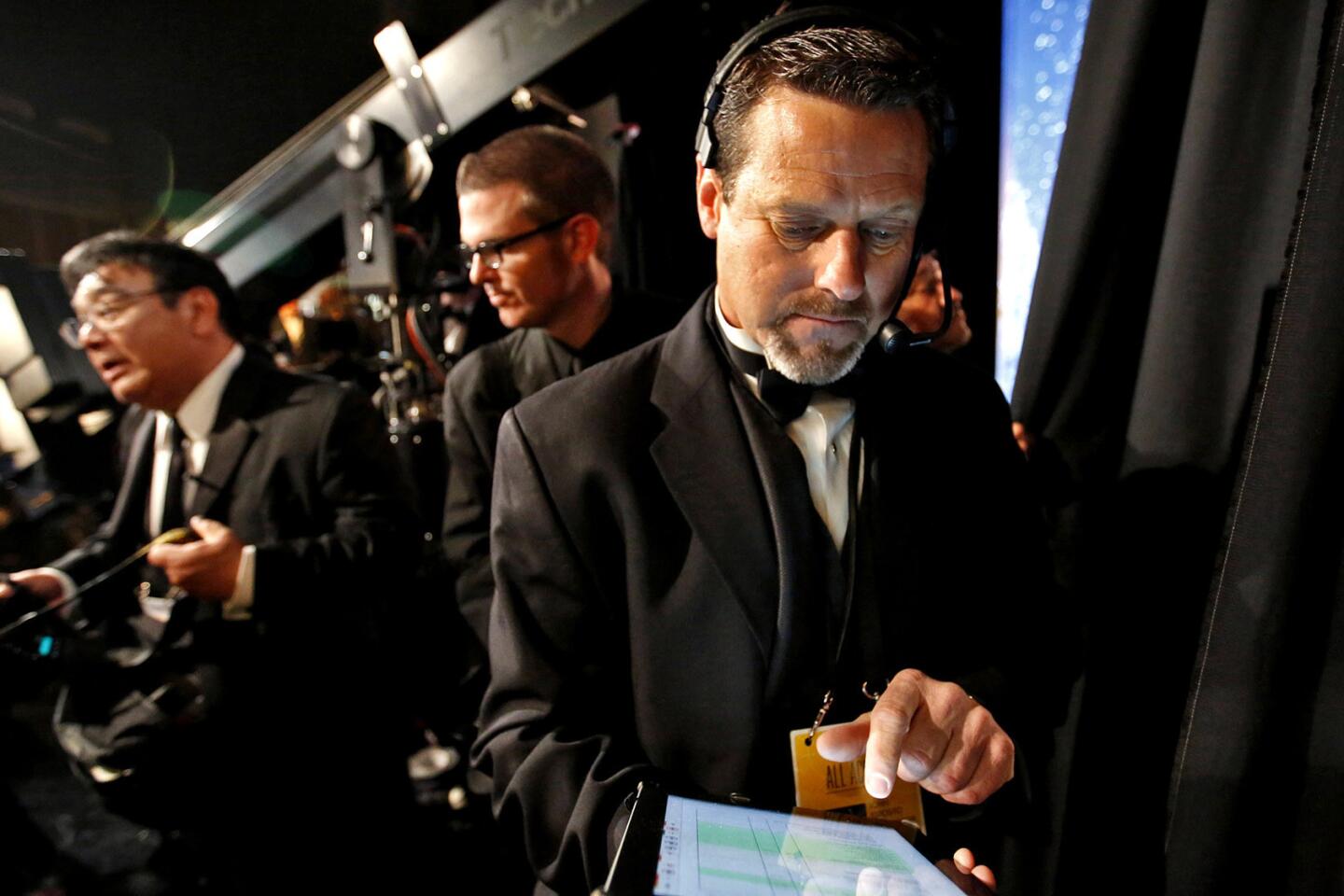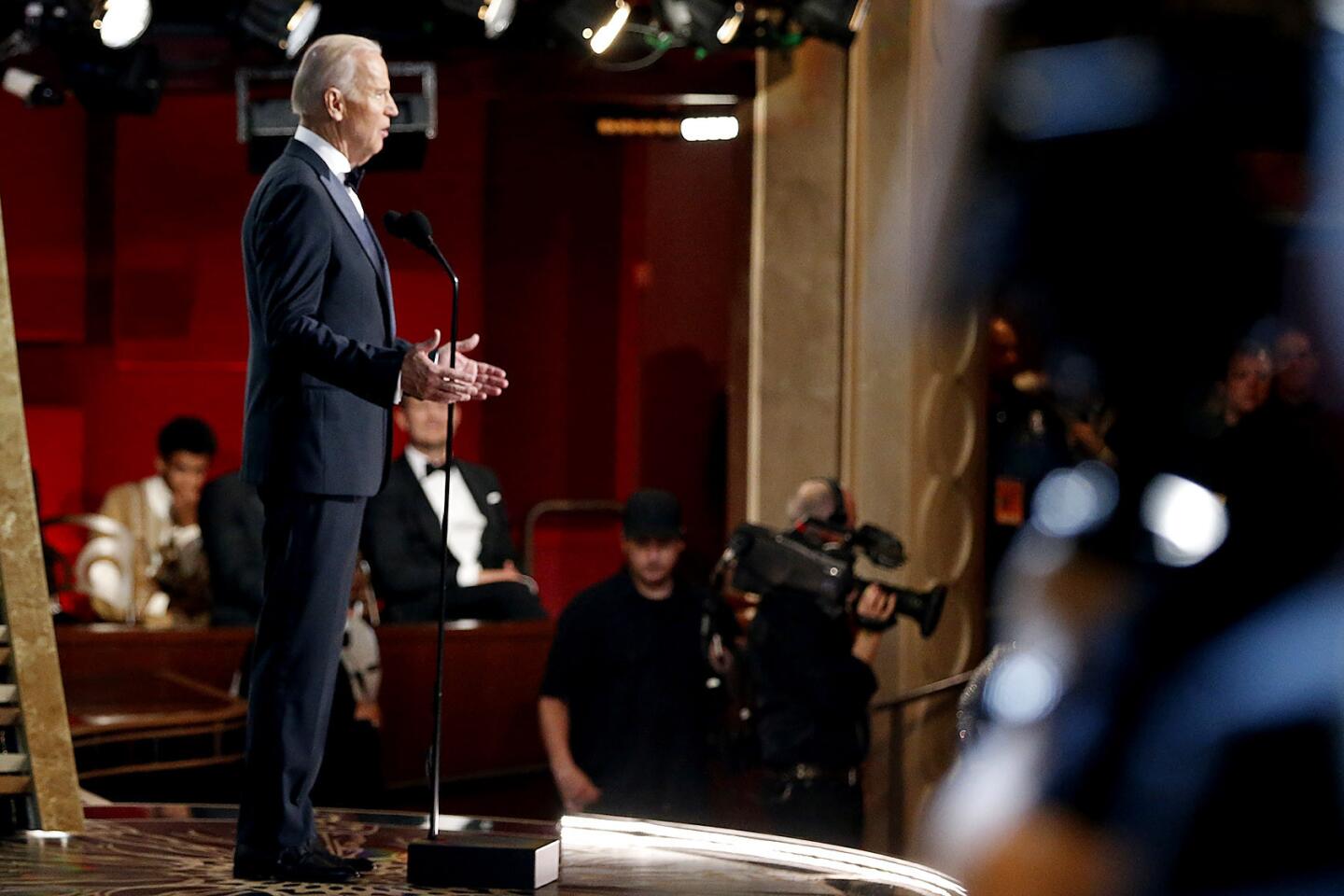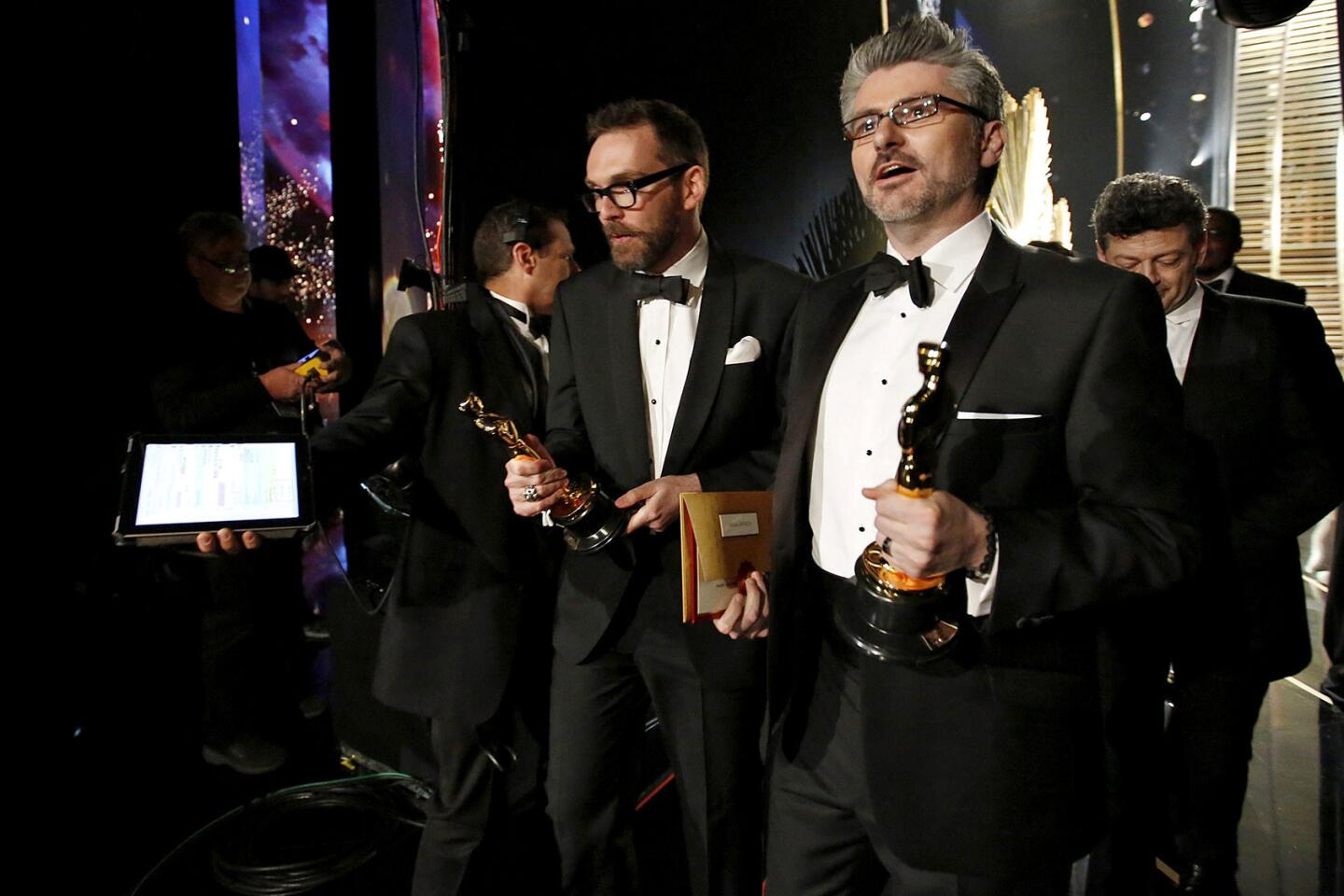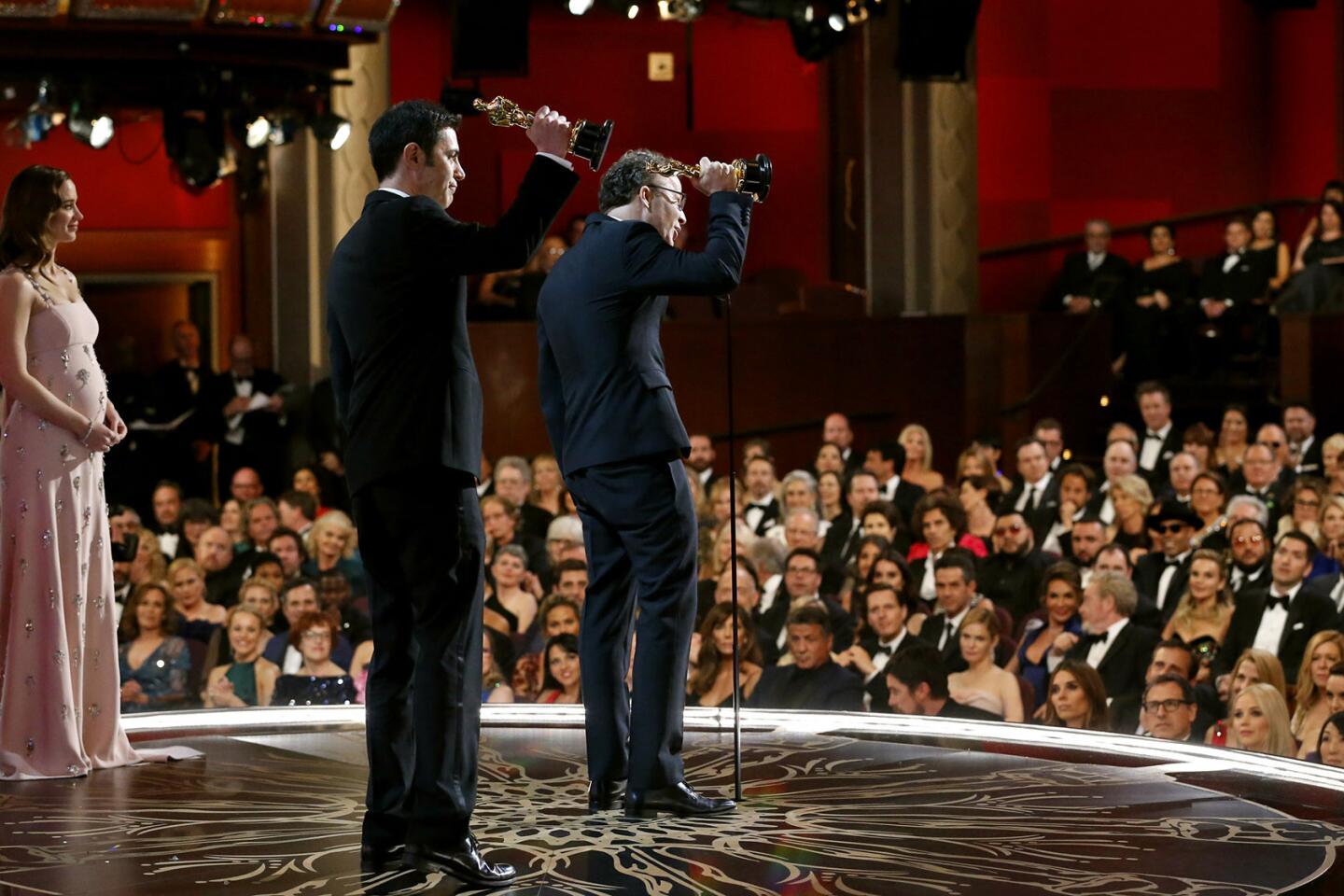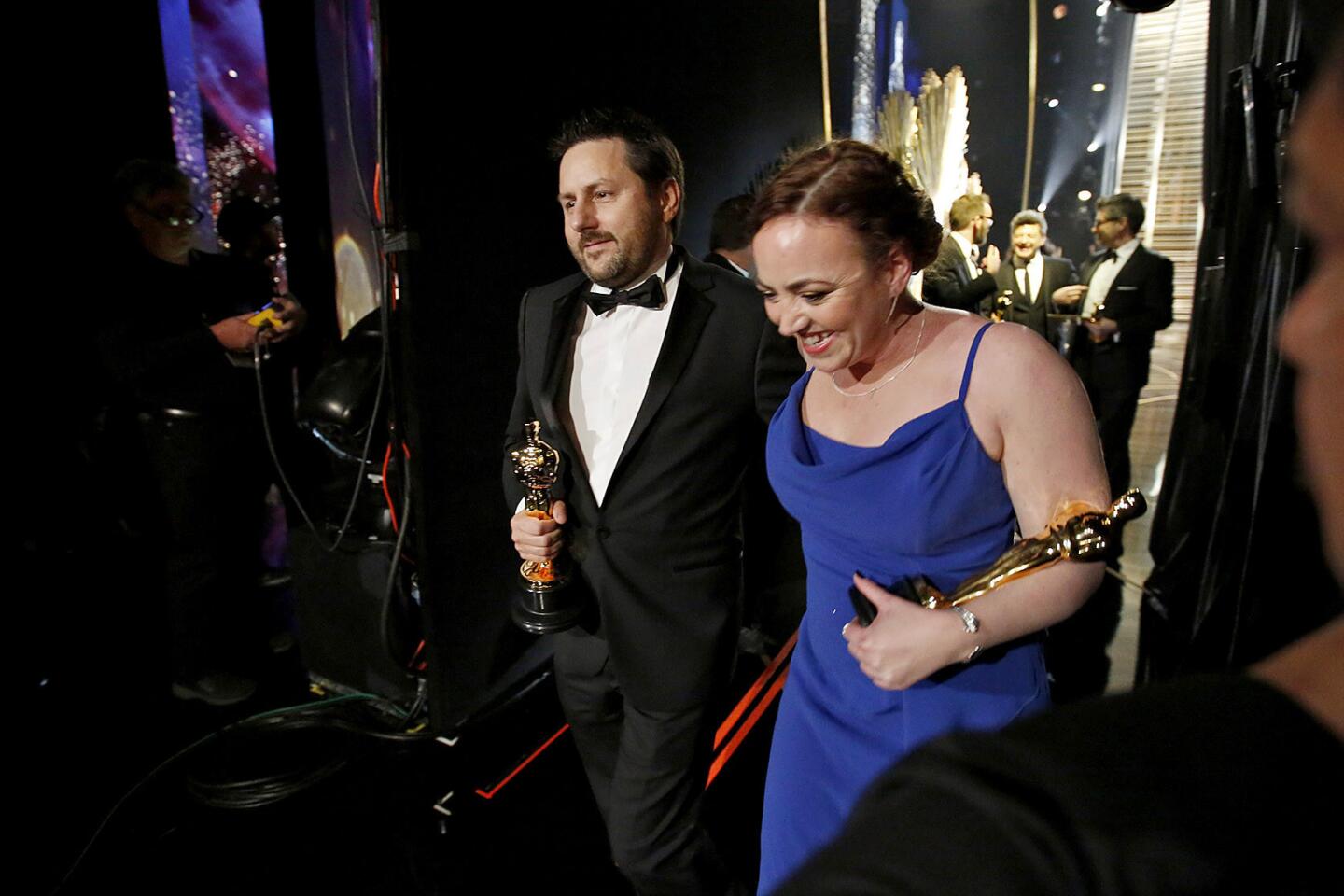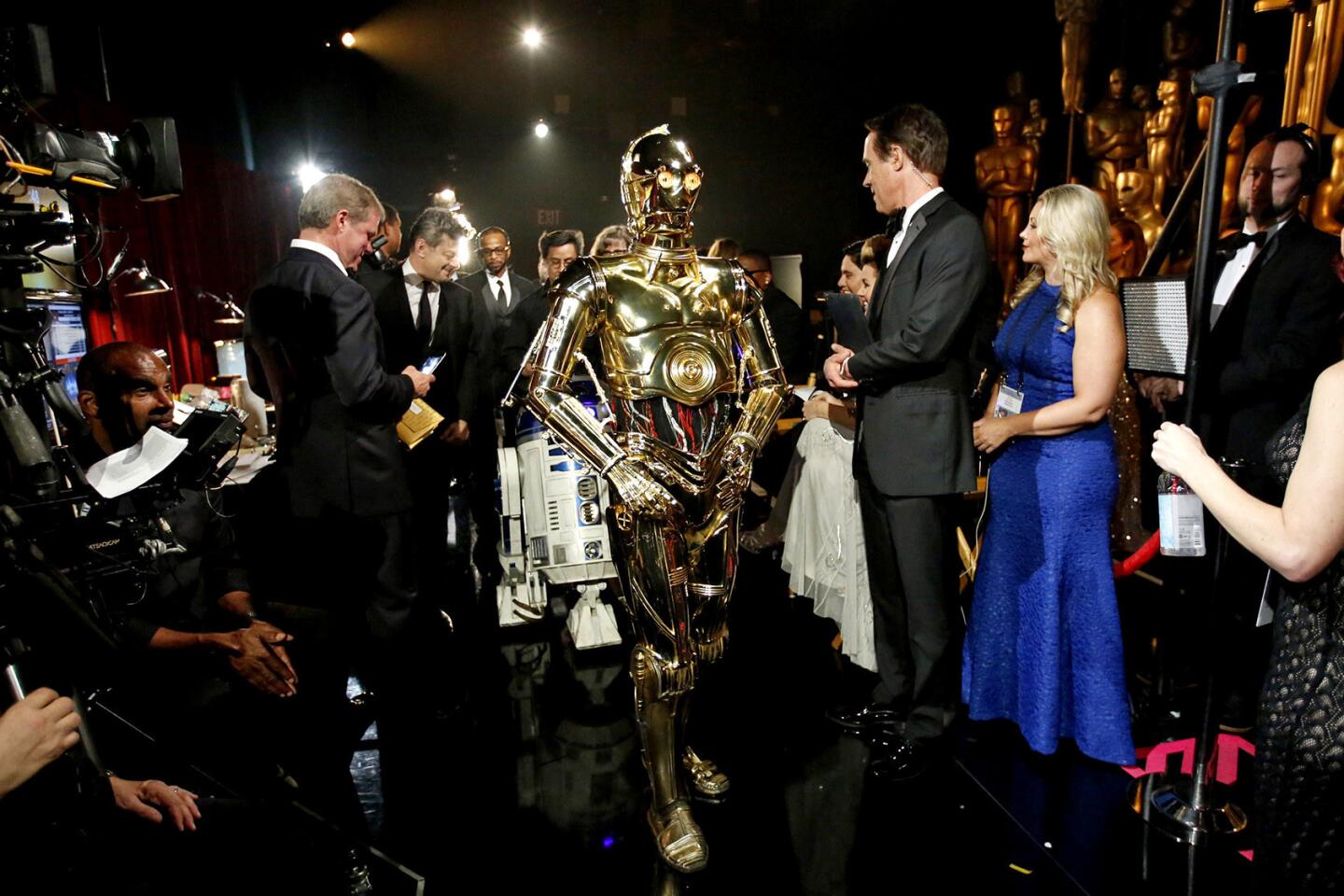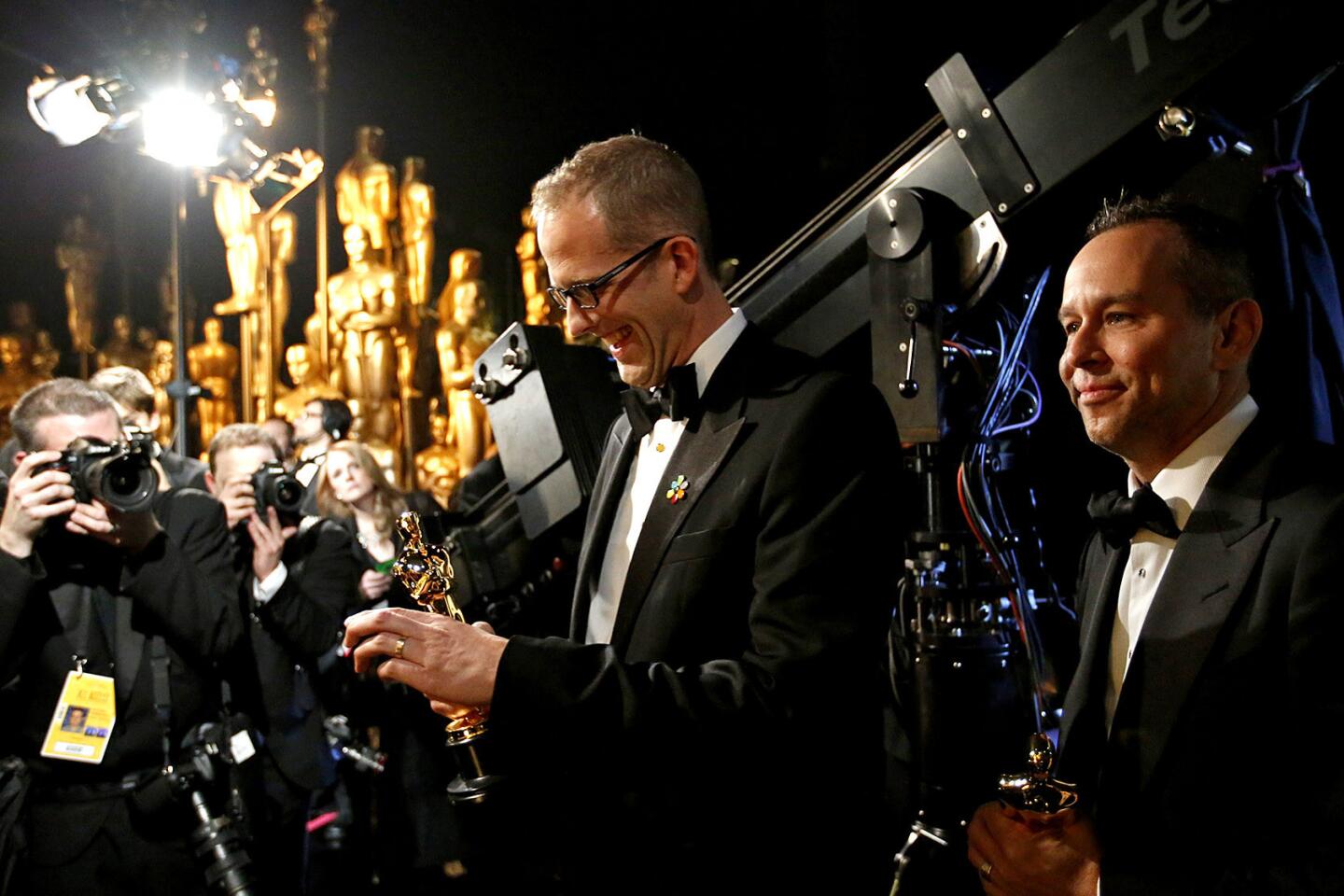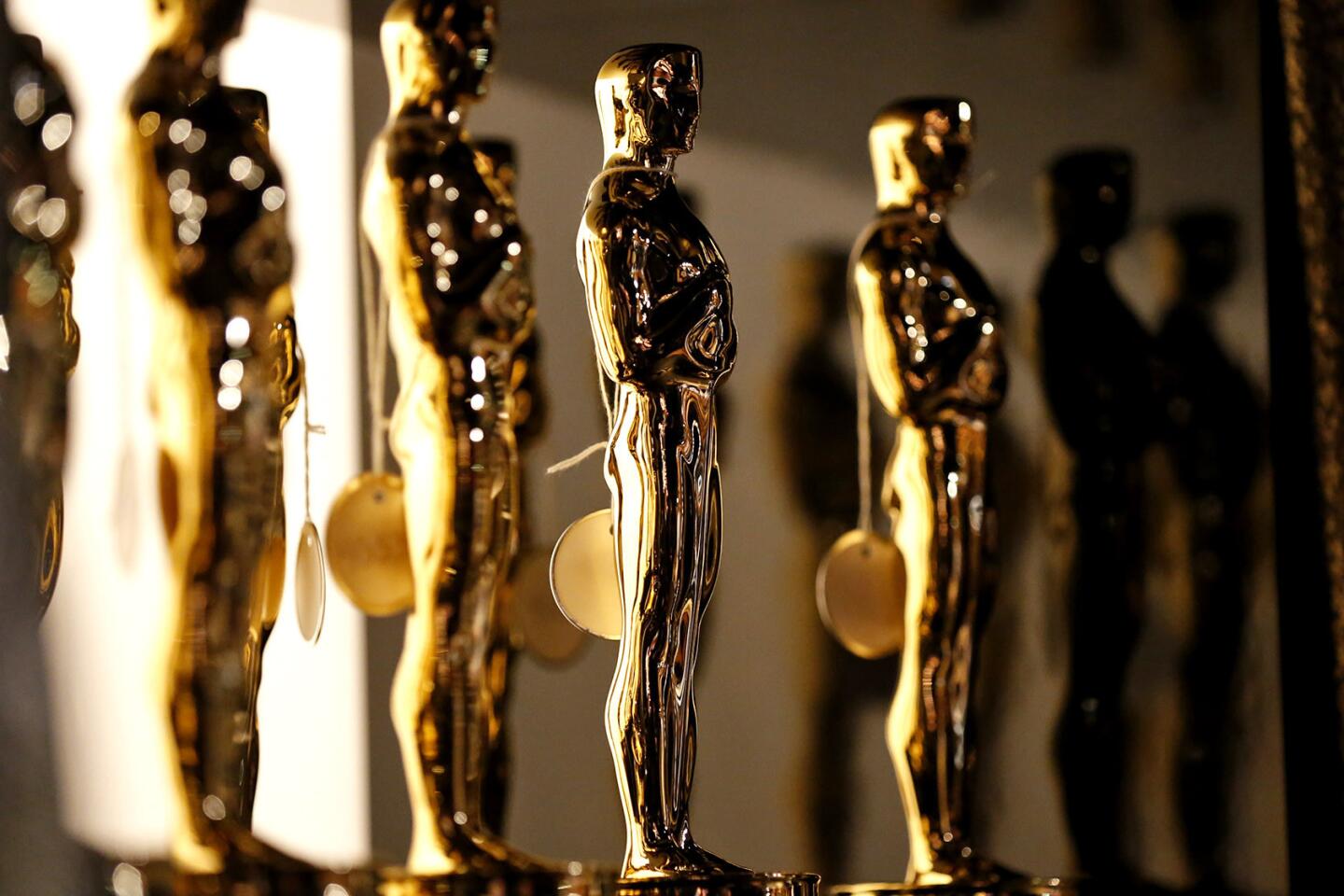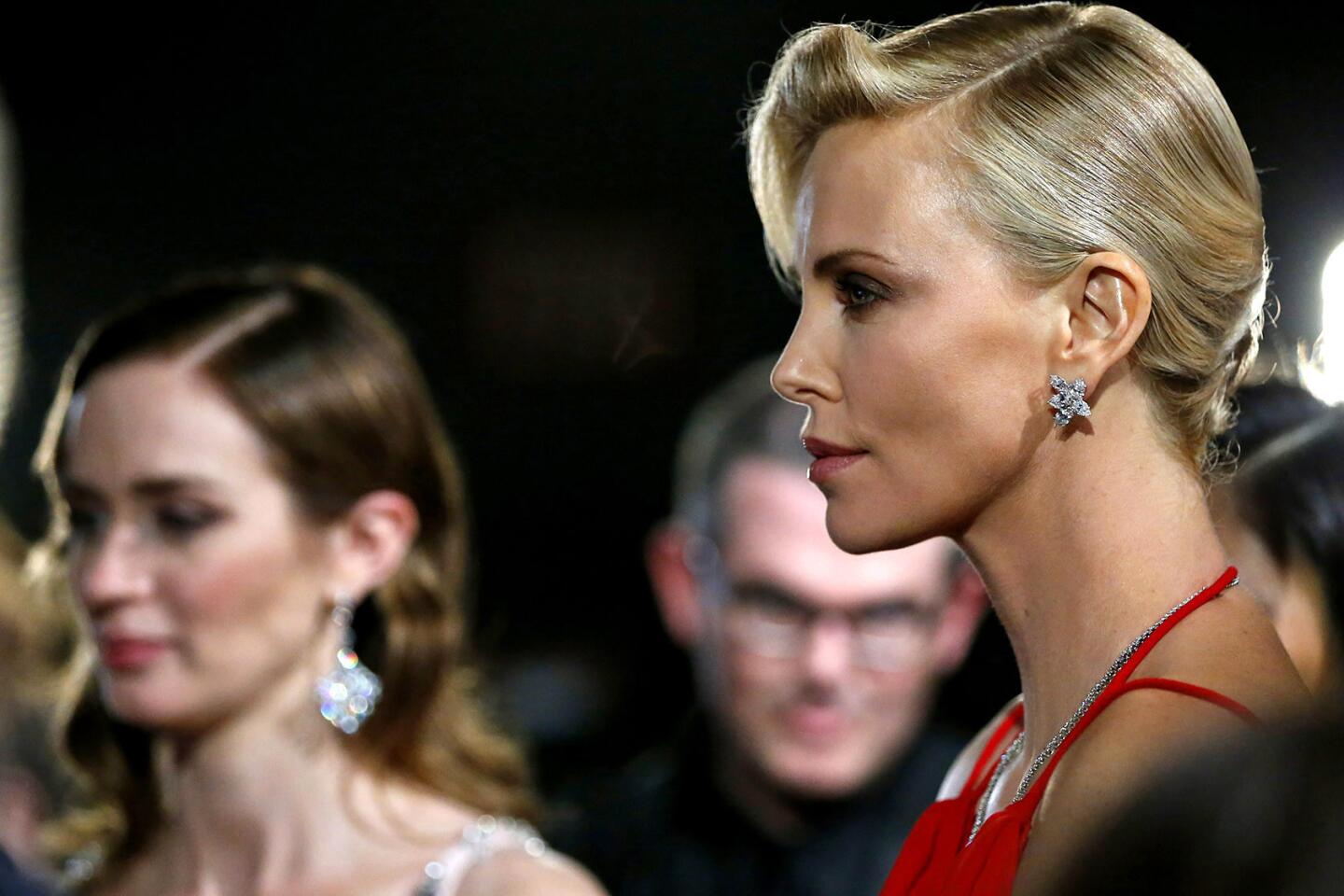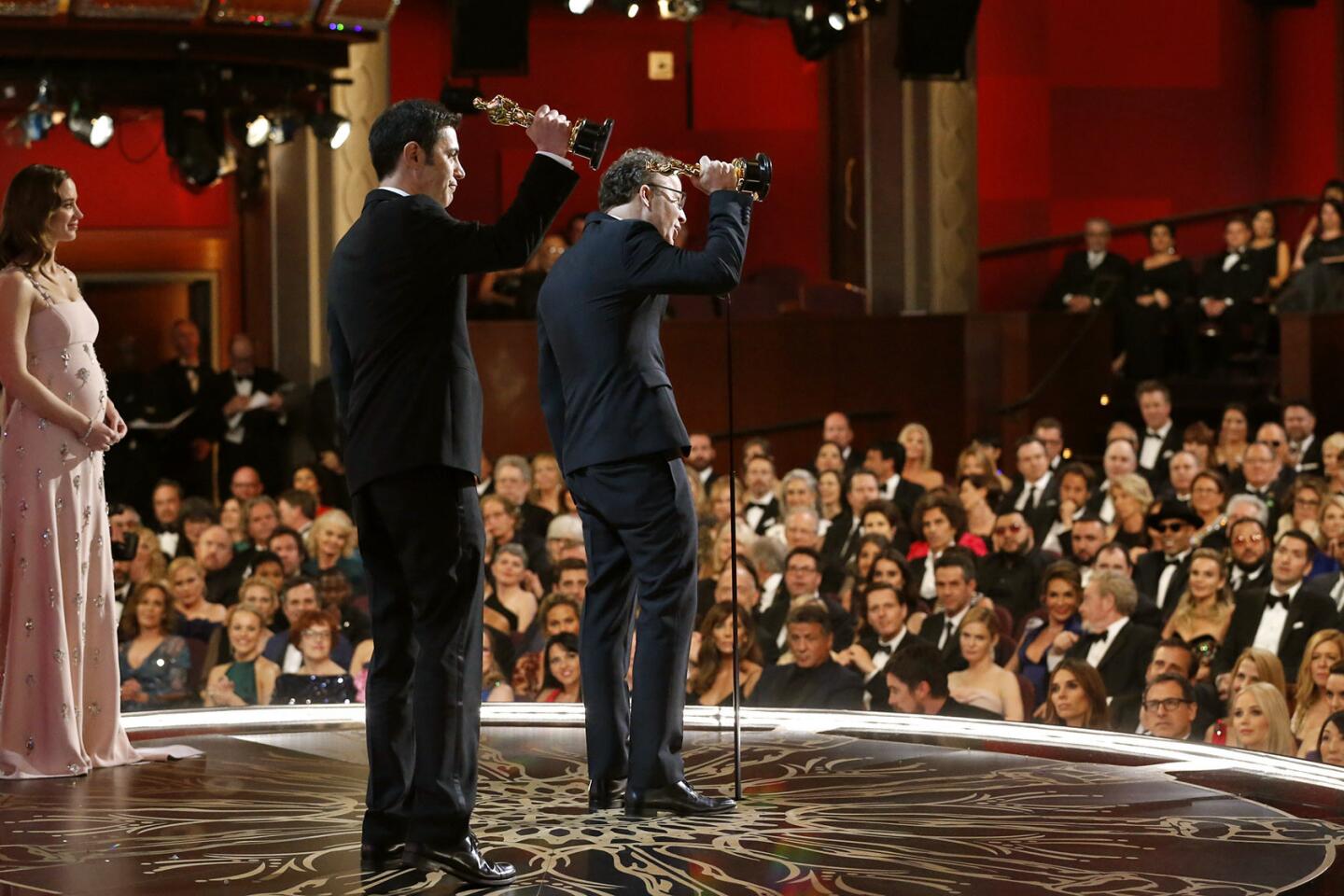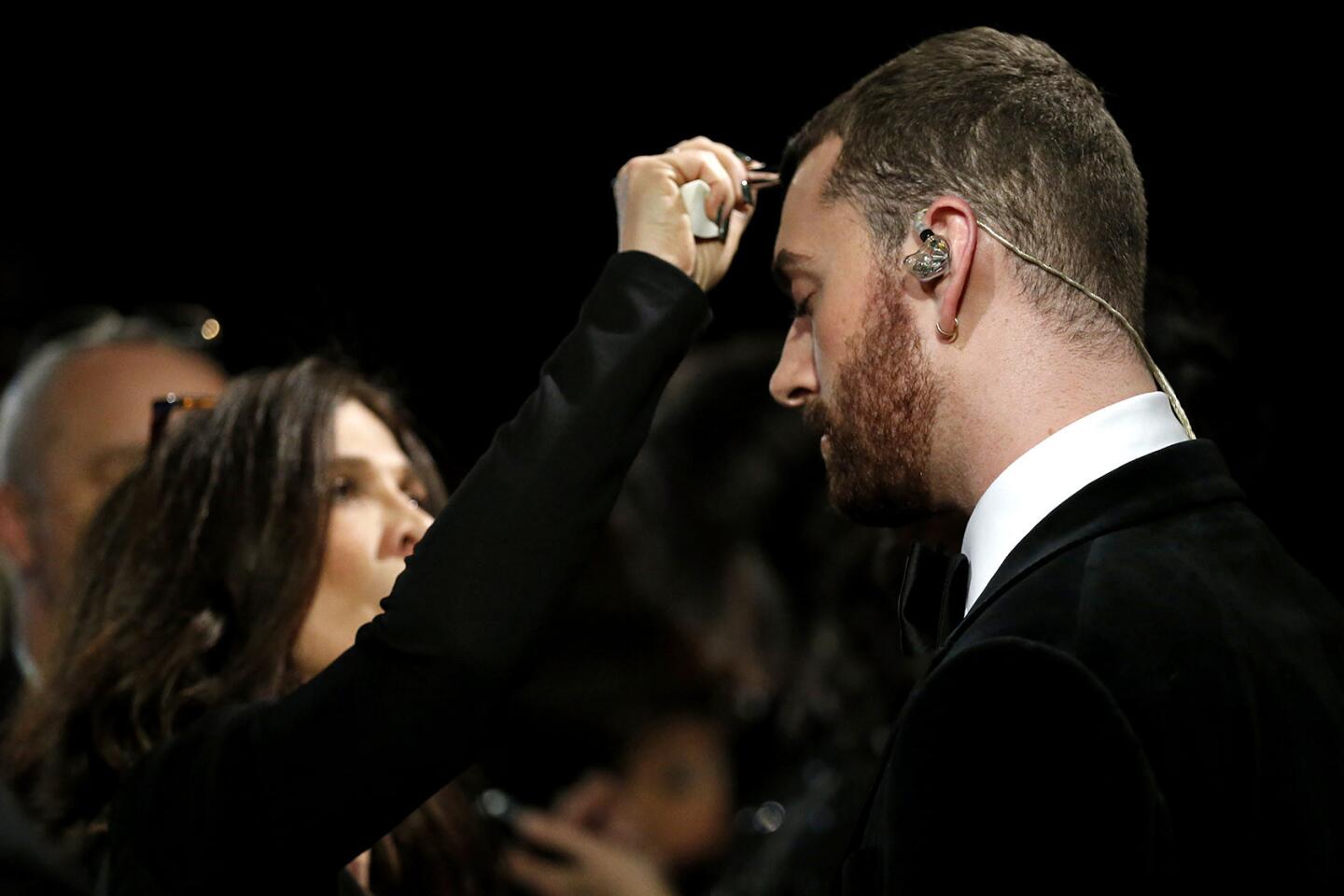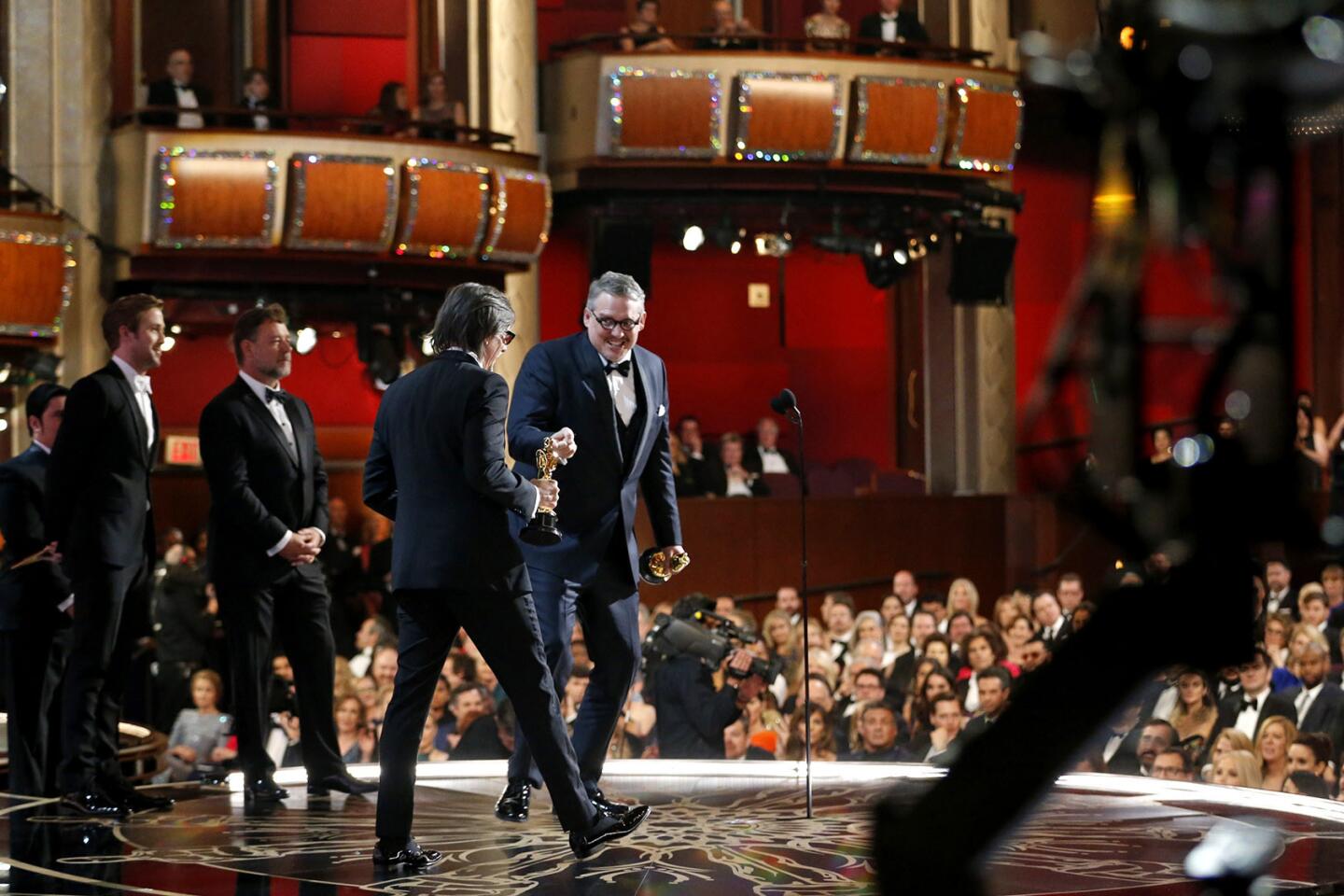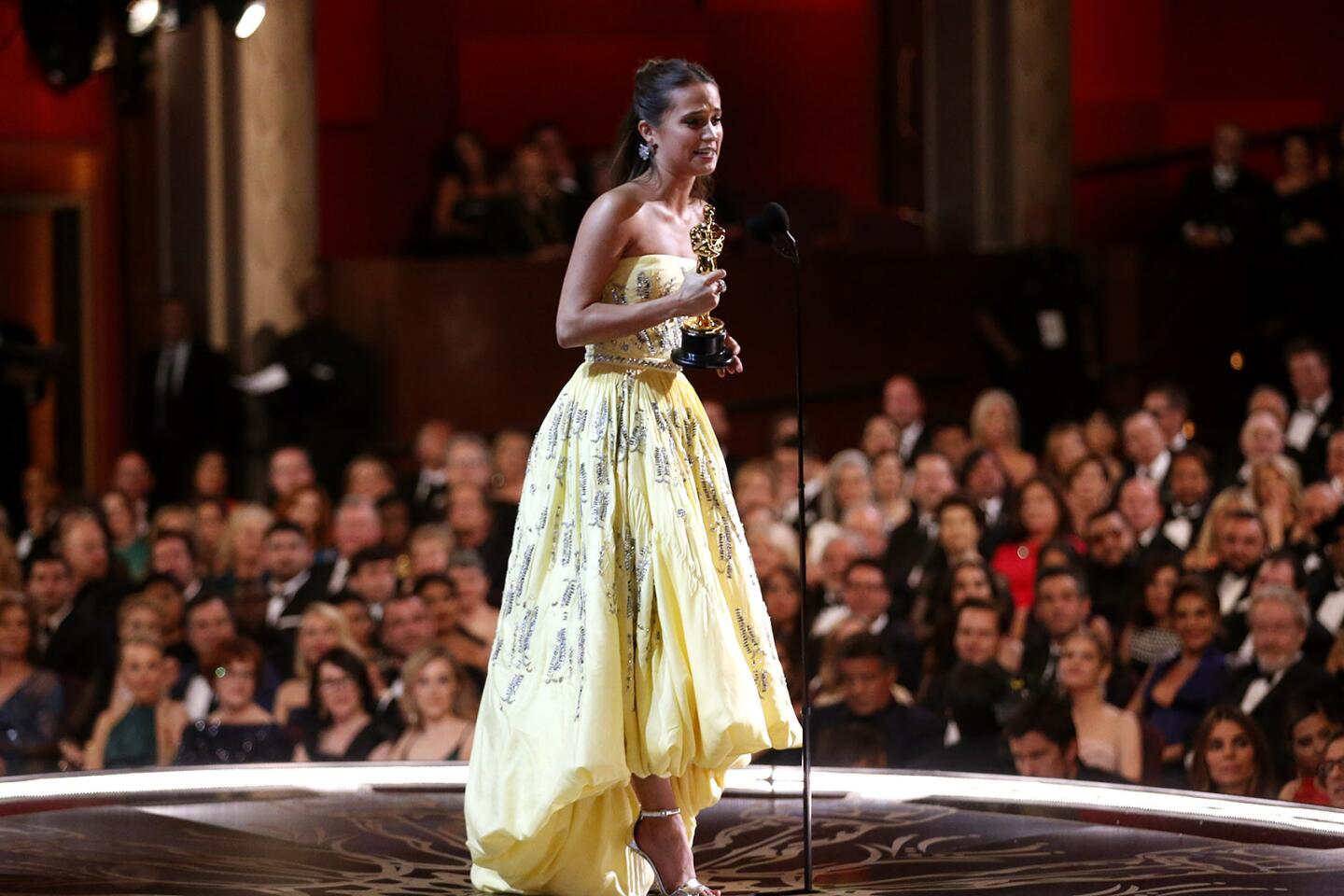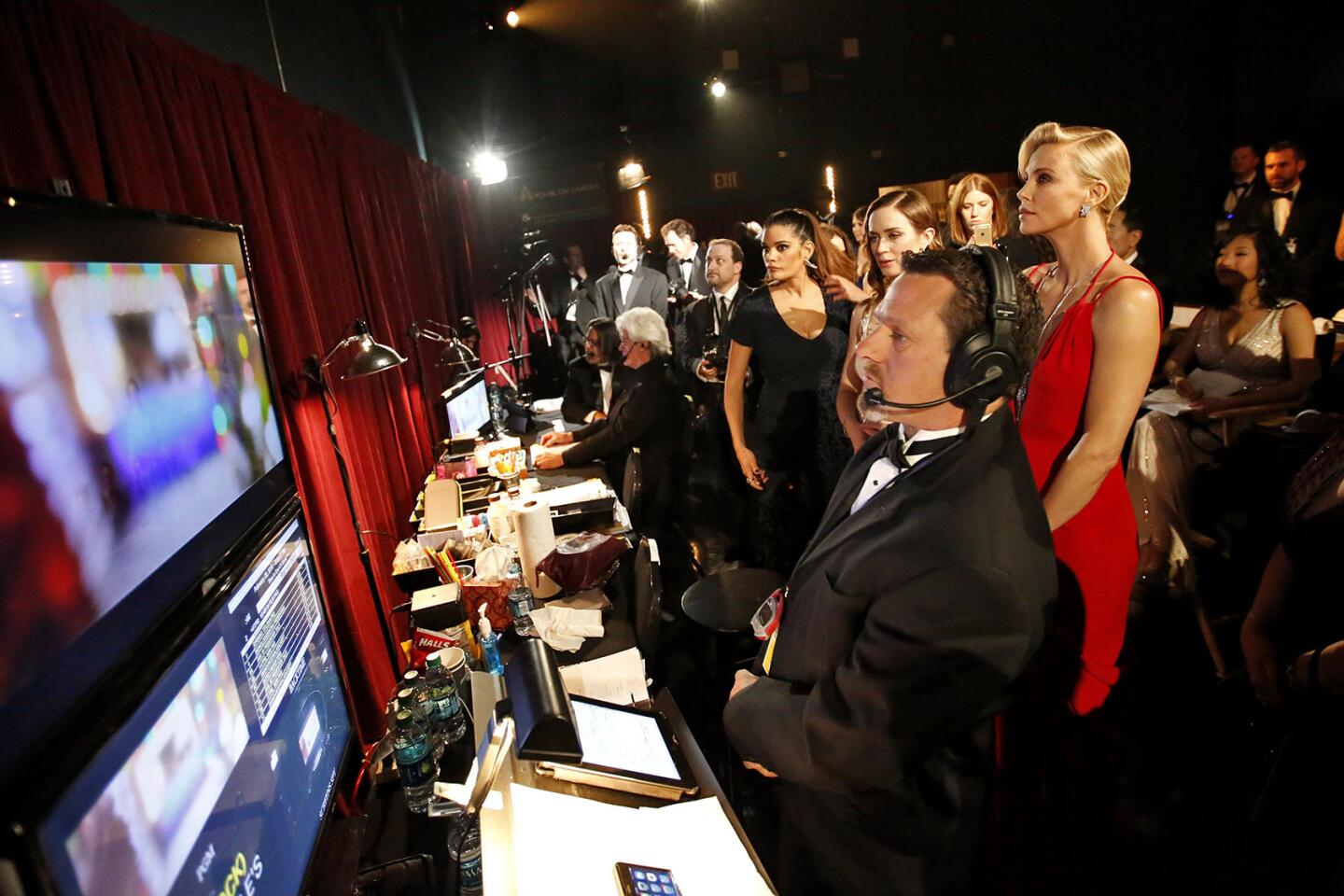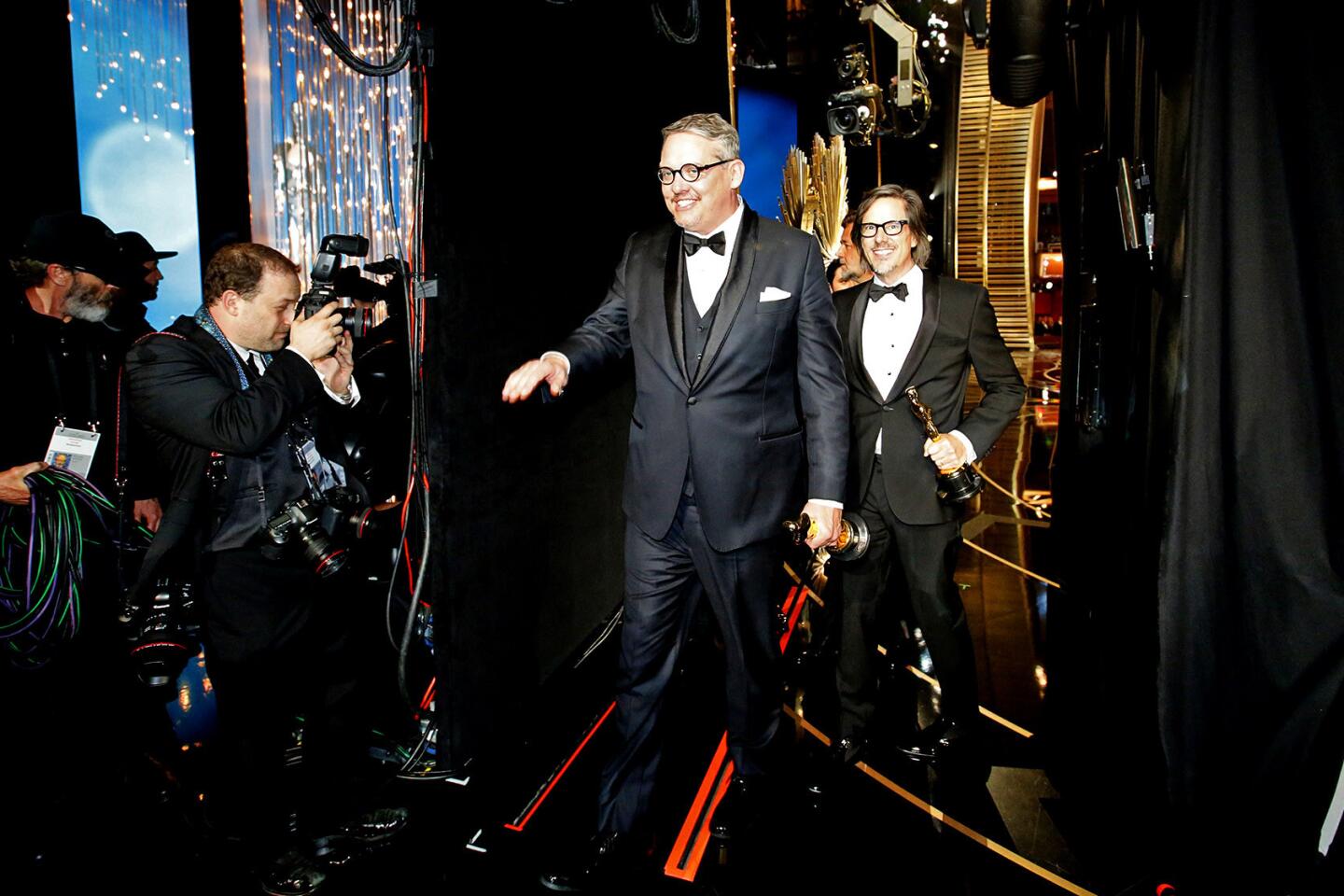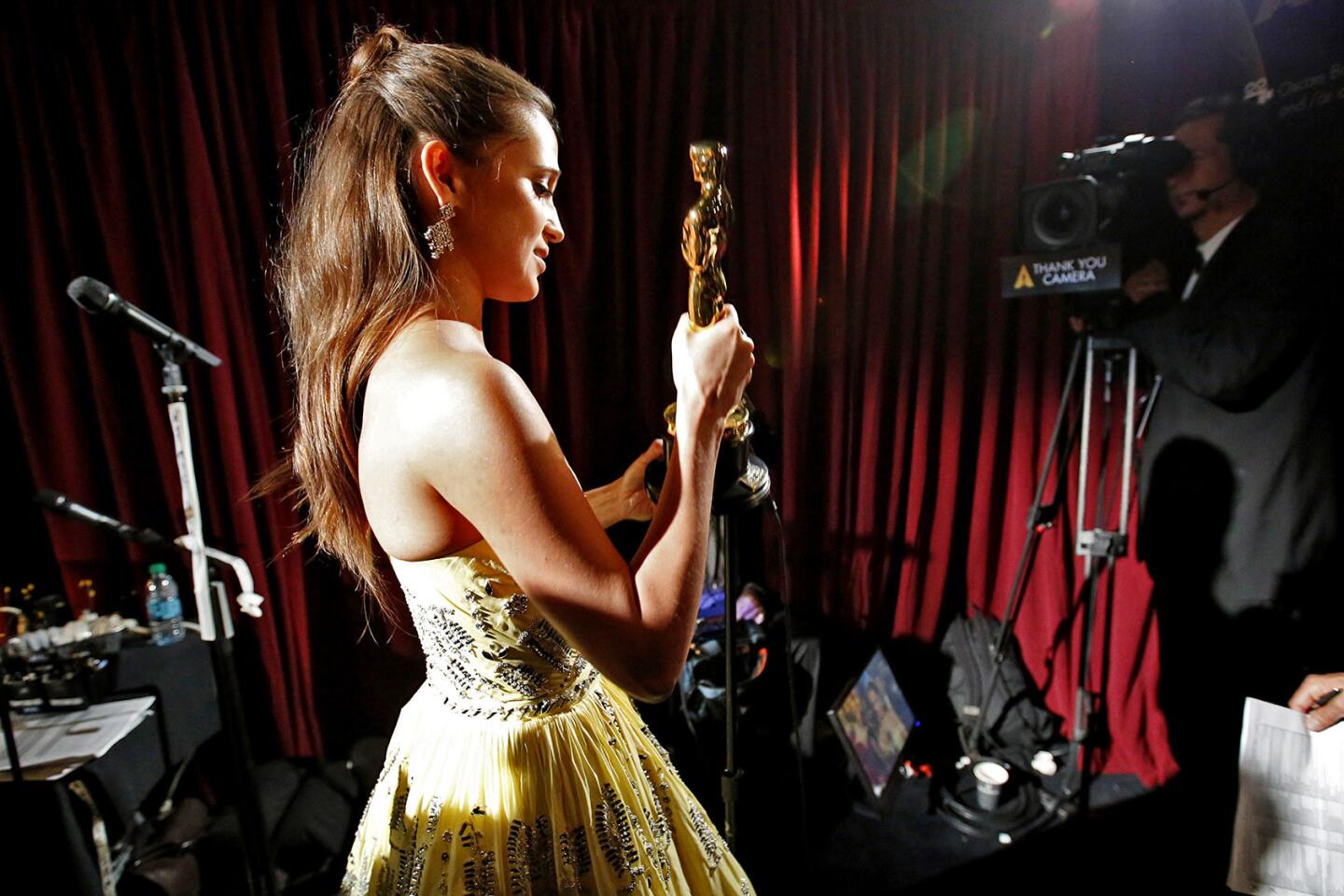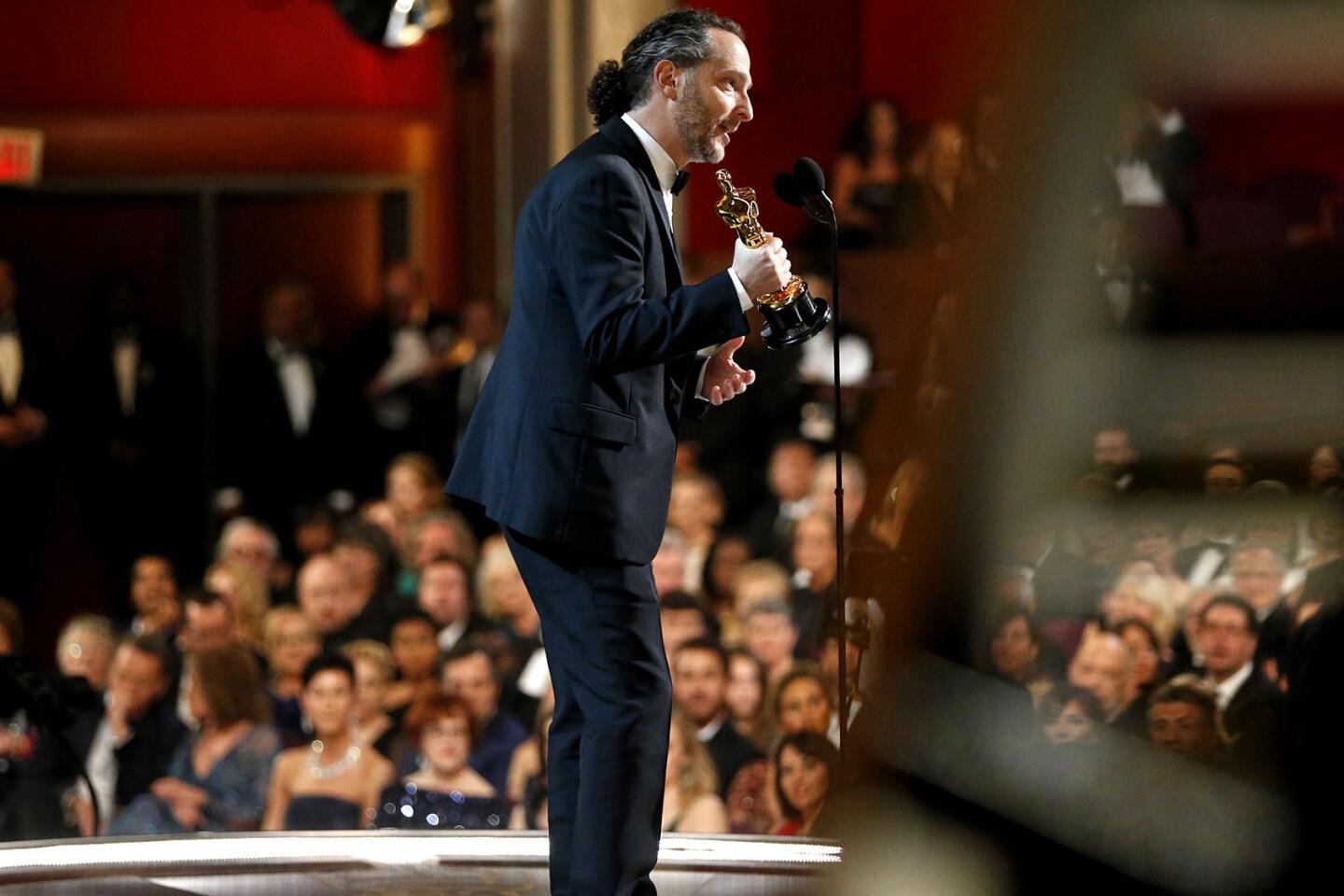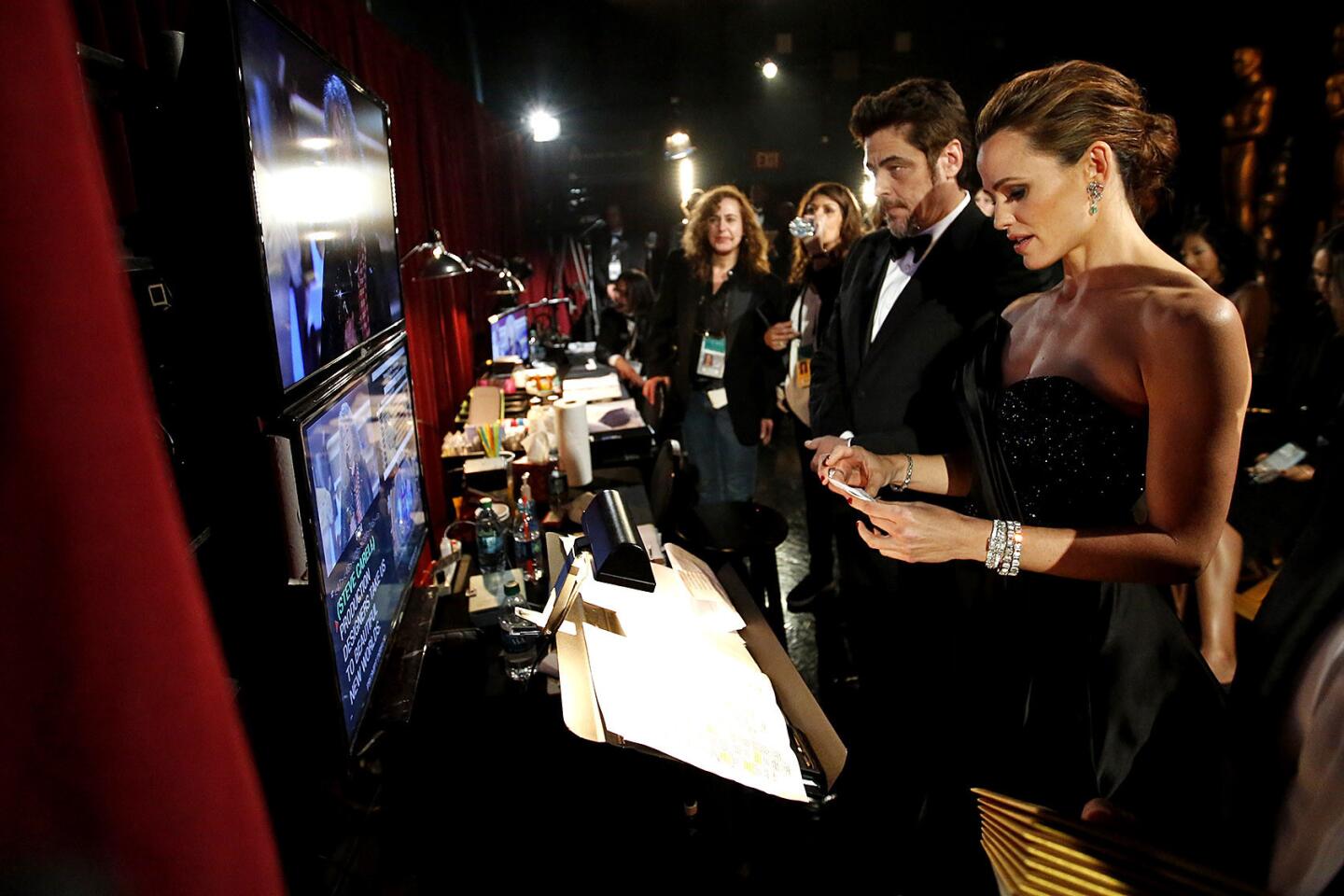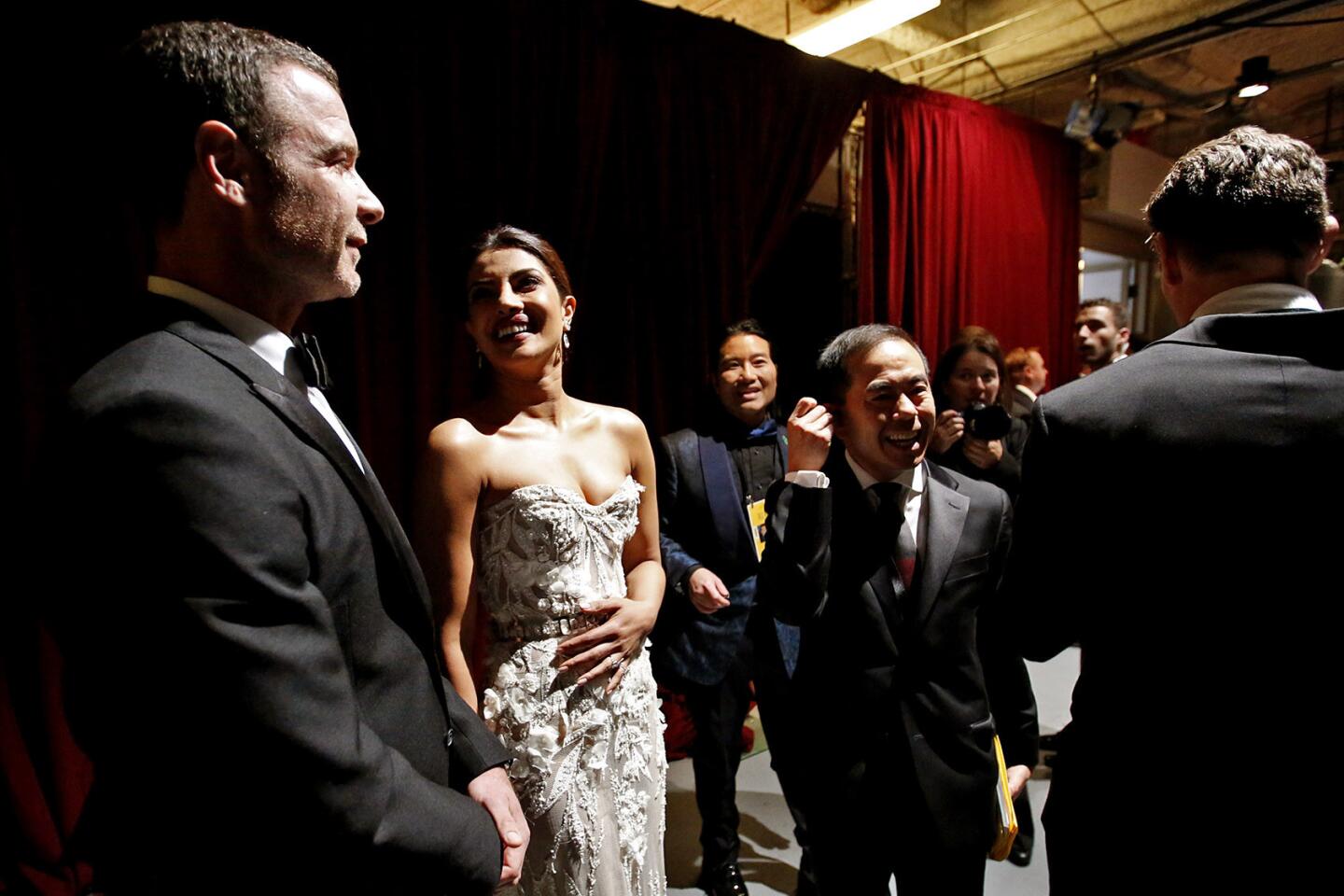One veteran musician finally took home an Oscar at Sunday’s Academy Awards, while a well-decorated newcomer added another trophy to his crowded mantle.
Ennio Morricone, the Italian composer credited with more or less inventing the sound of the spaghetti western, won original score for his music for Quentin Tarantino’s “The Hateful Eight.” The nomination was Morricone’s sixth in a career that’s stretched over more than half a century and previously earned him an honorary Oscar in 2007. Yet this was the 87-year-old composer’s first official win.
OSCARS 2016: List of nominees | Red carpet arrivals | Best and worst dressed
In his acceptance speech, Morricone, through a translator, thanked the other nominated composers as a group but specifically saluted “Star Wars”’ John Williams, a perennial academy favorite — and a musician who, at 84, has been working nearly as long as Morricone.
For original song, Sam Smith, the 23-year-old British singer who scooped up multiple Grammy Awards in 2015, won for “Writing’s on the Wall,” his theme song from the latest James Bond movie, “Spectre.”
1/54
The cast of Best Picture winner “Spotlight” takes a selfie backstage at the 88th Academy Awards at the Dolby Theatre.
(Al Seib / Los Angeles Times) 2/54
Director Tom McCarthy with the Oscar for best picture, “Spotlight.” (Robert Gauthier / Los Angeles Times)
3/54
Actress Stacey Dash speaks onstage during the 88th Annual Academy Awards at the Dolby Theatre on Feb. 28, 2016.
(Kevin Winter / Getty Images) 4/54
Michael Keaton and the cast and producers of “Spotlight” celebrate after winning the Oscar for best picture.
(Robert Gauthier / Los Angeles Times) 5/54
The production team and cast of Spotlight celebrate the award for best picture.
(Mark Ralston / AFP/Getty Images) 6/54
Leonardo DiCaprio (Robert Gauthier / Los Angeles Times)
7/54
Brie Larson (Robert Gauthier / Los Angeles Times)
8/54
Alejandro Gonzalez Iñarritu, winner of Best Director with Tom Hardy
(Robert Gauthier / Los Angeles Times) 9/54
Alejandro Gonzalez Iñarritu (Robert Gauthier / Los Angeles Times)
10/54
Lady Gaga performs (Robert Gauthier / Los Angeles Times)
11/54
Lady Gaga and abuse survivors (Robert Gauthier / Los Angeles Times)
12/54
Daisy Ridley and Dev Patel (Robert Gauthier / Los Angeles Times)
13/54
Vice President Joe Biden (Robert Gauthier / Los Angeles Times)
14/54
Director Laszlo Nemes (Robert Gauthier / Los Angeles Times)
15/54
Chris Rock and Girl Scouts (Robert Gauthier / Los Angeles Times)
16/54
Dave Grohl during the In Memoriam segment (Robert Gauthier / Los Angeles Times)
17/54
Whoopi Goldberg
(Robert Gauthier / Los Angeles Times) 18/54
Kate Winslet and Reese Witherspoon (Robert Gauthier / Los Angeles Times)
19/54
Kate Winslet and Reese Witherspoon (Robert Gauthier / Los Angeles Times)
20/54
Chris Rock (Robert Gauthier / Los Angeles Times)
21/54
Asif Kapadia and James Gay-Rees (Robert Gauthier / Los Angeles Times)
22/54
Sharmeen Obaid-Chinoy (Robert Gauthier / Los Angeles Times)
23/54
Louis C.K. (Robert Gauthier / Los Angeles Times)
24/54
Chris Rock (Robert Gauthier / Los Angeles Times)
25/54
Mark Rylance (Robert Gauthier / Los Angeles Times)
26/54
Mark Rylance thanks Steven Spielberg before accepting his Oscar for Best Actor in a Supporting Role
(Robert Gauthier / Los Angeles Times) 27/54
Patricia Arquette (Robert Gauthier / Los Angeles Times)
28/54
Filmmakers Pato Escala Pierart and Gabriel Osorio Vargas (Robert Gauthier / Los Angeles Times)
29/54
The Weeknd performs (Robert Gauthier / Los Angeles Times)
30/54
The Weeknd performs (Robert Gauthier / Los Angeles Times)
31/54
The Weeknd performs (Robert Gauthier / Los Angeles Times)
32/54
Jonas Rivera and Pete Docter (Robert Gauthier / Los Angeles Times)
33/54
Girl Scouts sell cookies with Chris Rock (Robert Gauthier / Los Angeles Times)
34/54
David White, right, and Mark Mangini (Robert Gauthier / Los Angeles Times)
35/54
Marcos Taylor as Suge Knight
(Robert Gauthier / Los Angeles Times) 36/54
Rachel McAdams and Michael B. Jordan (Robert Gauthier / Los Angeles Times)
37/54
Emmanuel Lubezki (Robert Gauthier / Los Angeles Times)
38/54
Priyanka Chopra, left, and Liev Schreiber (Robert Gauthier / Los Angeles Times)
39/54
Margaret Sixel (Robert Gauthier / Los Angeles Times)
40/54
Chris Evans, right, and Chadwick Boseman (Robert Gauthier / Los Angeles Times)
41/54
Benecio del Toro and Jennifer Garner (Robert Gauthier / Los Angeles Times)
42/54
Elka Warden, Lesley Vanderwalt and Damian Martin (Robert Gauthier / Los Angeles Times)
43/54
Presenters Margot Robbie and Jared Leto (Robert Gauthier / Los Angeles Times)
44/54
Colin Gibson and Lisa Thompson (Robert Gauthier / Los Angeles Times)
45/54
Cate Blanchett (Robert Gauthier / Los Angeles Times)
46/54
Tina Fey and Steve Carell (Robert Gauthier / Los Angeles Times)
47/54
CaJenny Beavan (Robert Gauthier / Los Angeles Times)
48/54
Alicia Vikander (Robert Gauthier / Los Angeles Times)
49/54
Adam McKay, front, and Charles Randolph with their Oscar for Best Adapted Screenplay.
(Robert Gauthier / Los Angeles Times) 50/54
Sam Smith (Robert Gauthier / Los Angeles Times)
51/54
Sarah Silverman (Robert Gauthier / Los Angeles Times)
52/54
“The Big Short,” the anarchic, bracing broadside against Wall Street malfeasance, won the adapted screenplay Oscar at tonight’s 88th Academy Awards. The script was written by Charles Randolph and Adam McKay, who also directed. (Robert Gauthier / Los Angeles Times)
53/54
Emily Blunt and Charlize Theron (Robert Gauthier / Los Angeles Times)
54/54
Chris Rock (Robert Gauthier / Los Angeles Times)
Accepting the prize with the song’s co-writer, Jimmy Napes, Smith said he’d read a news article that led him to believe he might be the first openly gay man to win an Oscar. (The assertion was instantly mocked — and refuted — online). Then he dedicated the prize to “the LGBT community” and said, “I hope we can all stand together as equals one day.”
VIDEO: The five best lines from Chris Rock’s Oscars monologue >>
Though another Bond theme, Adele’s “Skyfall,” won original song in 2013, “Writing’s on the Wall” was widely expected to lose this year to “Til It Happens to You,” Lady Gaga and Diane Warren’s song about college sexual assault from “The Hunting Ground.”
1/22
Mark Rylance, left, Brie Larson, Leonardo DiCaprio and Alicia Vikander in the winners room.
(Marcus Yam / Los Angeles Times) 2/22
Songwriter Jimmy Napes, left, and singer Sam Smith won the original song Oscar for “Writing’s on the Wall” for the film “Spectre.”
(Marcus Yam / Los Angeles Times) 3/22
Brie Larson with her Oscar for lead actress for the film “Room.”
(Marcus Yam / Los Angeles Times) 4/22
Alejandro G. Inarritu with his Oscar for directing for the film “The Revenant.”
(Marcus Yam / Los Angeles Times) 5/22
Alicia Vikander won the supporting actress Oscar for her role in “The Danish Girl.”
(Marcus Yam / Los Angeles Times) 6/22
Leonardo DiCaprio with his lead actor Oscar for “The Revenant.”
(Marcus Yam / Los Angeles Times) 7/22
Production designers Colin Gibson and Lisa Thompson celebrate winning the production design Oscar for their work on “Mad Max: Fury Road.”
(Marcus Yam / Los Angeles Times) 8/22
Ennio Morricone, 87, won the Oscar for original score for “The Hateful Eight.”
(Marcus Yam / Los Angeles Times) 9/22
Hungarian director Laszlo Nemes won the Oscar for foreign language film for “Son of Saul.”
(Marcus Yam / Los Angeles Times) 10/22
Mark Rylance displays his Academy Award for his supporting role in “Bridge of Spies.”
(Marcus Yam / Los Angeles Times) 11/22
Directors James Gay-Rees, left, and Asif Kapadia take home an Academy Award for their documentary feature “Amy” about late singer-songwriter Amy Winehouse.
(Marcus Yam / Los Angeles Times) 12/22
Director Sharmeen Obaid-Chinoy holds her Oscar for documentary short subject. Her winning film, “A Girl in the River: The Price of Forgiveness,” is about honor killings in Pakistan.
(Marcus Yam / Los Angeles Times) 13/22
Gabriel Osorio, left, and Pato Escala win the Academy Award for animated short film for their film “Bear Story.” Their win is the first win for their country, Chile.
(Marcus Yam / Los Angeles Times) 14/22
Emmanuel Lubezki wins the Academy Award for cinematography for this work in “The Revenant.” He is photographed with the presenter of the award, actress Rachel McAdams.
(Marcus Yam / Los Angeles Times) 15/22
“Inside Out” producer Jonas Rivera, left, and director Pete Docter take home the Oscar for animated feature.
(Marcus Yam / Los Angeles Times) 16/22
Margaret Sixel holds her Oscar for film editing for her work in “Mad Max: Fury Road.”
(Marcus Yam / Los Angeles Times) 17/22
The winning visual effects team for “Ex Machina,” from left, Mark Ardington, Paul Norris, Sara Bennett and Andrew Whitehurst.
(Marcus Yam / Los Angeles Times) 18/22
Winning “Mad Max: Fury Road” sound editors Mark Mangini, left, and David White, right, pose with actor Chris Evans, who presented the award.
(Marcus Yam / Los Angeles Times) 19/22
“Mad Max: Fury Road” makeup and hairstyling winners Damian Martin, second from left, Lesley Vanderwalt and Elka Wardega stand with the awards presenters, actors Margot Robbie and Jared Leto.
(Marcus Yam / Los Angeles Times) 20/22
“Mad Max: Fury Road” costume designer Jenny Beavan holds her Academy Award. She is photographed with Cate Blanchett, who presented the award.
(Marcus Yam / Los Angeles Times) 21/22
“The Big Short’s” writers Adam McKay, left, and writer Charles Randolph win the adapted screenplay category. McKay also directed the film.
(Marcus Yam / Los Angeles Times) 22/22
“Spotlight” writers Josh Singer, left, and Tom McCarthy win for original screenplay. McCarthy also directed.
(Marcus Yam / Los Angeles Times) Gaga delivered a starkly dramatic performance of the song on Sunday’s telecast, staring directly into the camera as she banged away at a white grand piano. Near the end she was surrounded by a large group of young people with phrases like “Survivor” and “Not your fault” scrawled on their arms.
Smith also performed on the show, as did the Weeknd, whose “Earned It” from “Fifty Shades of Grey” was nominated for original song. In contrast with Gaga, though, both men opted for a lower-key approach, crooning carefully over polished accompaniment.
OSCARS 2016: Show highlights | Backstage | Winners room
The other two nominated songs — “Simple Song #3” from “Youth” and “Manta Ray” from “Racing Extinction” — weren’t performed Sunday, with the omission of the latter inspiring a searing open letter from the song’s vocalist and co-writer, Anohni, who would’ve been the first transgender artist to perform at the Academy Awards.
If academy officials didn’t make room for such a first, though, they did extend an invitation to Dave Grohl, the Foo Fighters frontman (and awards-show staple) who sang the Beatles’ “Blackbird” during the annual “In Memoriam” sequence.
1/40
Brie Larson and Alicia Vikander backstage (Al Seib / Los Angeles Times)
2/40
Leonardo DiCaprio and Kate Winslet backstage (Al Seib / Los Angeles Times)
3/40
Leonardo DiCaprio backstage (Al Seib / Los Angeles Times)
4/40
Leonardo DiCaprio with his Oscar for best actor (Al Seib / Los Angeles Times)
5/40
Brie Larson celebrates (Al Seib / Los Angeles Times)
6/40
Alejandro Gonzalez Iñarritu backstage (Al Seib / Los Angeles Times)
7/40
Brie Larson (Al Seib / Los Angeles Times)
8/40
The cast of Best Picture “Spotlight” take a selfie backstage. (Al Seib / Los Angeles Times)
9/40
Lady Gaga (Al Seib / Los Angeles Times)
10/40
Sharmeen Obaid Chinoy (Al Seib / Los Angeles Times)
11/40
Brie Larson (Al Seib / Los Angeles Times)
12/40
Alejandro Gonzalez Iñarritu (Al Seib / Los Angeles Times)
13/40
Alejandro Gonzalez Iñarritu (Al Seib / Los Angeles Times)
14/40
Sacha Baron Cohen (Al Seib / Los Angeles Times)
15/40
A Secret Service watches Vice President Joe Biden backstage (Al Seib / Los Angeles Times)
16/40
C3PO (Al Seib / Los Angeles Times)
17/40
Kevin Hart (Al Seib / Los Angeles Times)
18/40
R2D2 and C3PO (Al Seib / Los Angeles Times)
19/40
Kate Winslet (Al Seib / Los Angeles Times)
20/40
Mark Rylance (Al Seib / Los Angeles Times)
21/40
Cheryl Boone Issacs (Al Seib / Los Angeles Times)
22/40
Backstage at the 88th Academy Awards (Al Seib / Los Angeles Times)
23/40
Vice President Joe Biden (Al Seib / Los Angeles Times)
24/40
Andrew Whitehurst and Mark Ardington (Al Seib / Los Angeles Times)
25/40
Josh Singer and Tom McCarthy accept the award for Original Screenplay for “Spotlight.” (Al Seib / Los Angeles Times)
26/40
Paul Norris and Sara Bennett (Al Seib / Los Angeles Times)
27/40
R2D2 and C3PO (Al Seib / Los Angeles Times)
28/40
Pete Docter and Jonas Rivera (Al Seib / Los Angeles Times)
29/40
Oscar statuettes (Al Seib / Los Angeles Times)
30/40
Charlize Theron (Al Seib / Los Angeles Times)
31/40
Josh Singer and Tom McCarthy (Al Seib / Los Angeles Times)
32/40
Sam Smith (Al Seib / Los Angeles Times)
33/40
Adam McKay (Al Seib / Los Angeles Times)
34/40
Alicia Vikander (Al Seib / Los Angeles Times)
35/40
Charlize Theron (Al Seib / Los Angeles Times)
36/40
Adam McKay and Charles Randolph (Al Seib / Los Angeles Times)
37/40
Alicia Vikander (Al Seib / Los Angeles Times)
38/40
Emmanuel Lubezki (Al Seib / Los Angeles Times)
39/40
Benicio Del Toro and Jennifer Garner (Al Seib / Los Angeles Times)
40/40
Liev Schreiber and Priyanka Chopra (Al Seib / Los Angeles Times)
Another music-related moment came in the documentary feature category, which was won by “Amy,” director Asif Kapadia’s film about the late British soul singer Amy Winehouse. (Music documentaries previously won in 2013, with “Searching for Sugar Man,” and 2014, with “20 Feet from Stardom.”)
In his speech, Kapadia said he wanted to make a movie that went beyond Winehouse’s reputation as a hard-partying “tabloid persona” and showed “what she really was.”
And then there was the bit of music that opened and closed Sunday’s show in what felt like host Chris Rock’s acknowledgment of the #OscarsSoWhite controversy: “Fight the Power,” Public Enemy’s late-’80s classic of hip-hop rebellion.
ALSO:
Leonardo DiCaprio doesn’t take his lead actor Oscar (at last!) -- or this planet -- for granted
